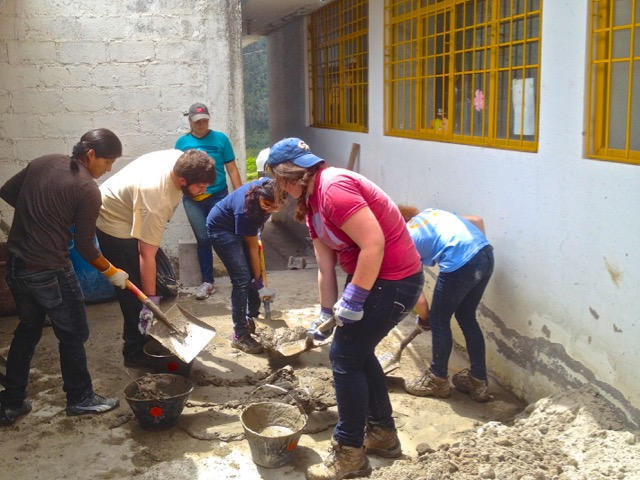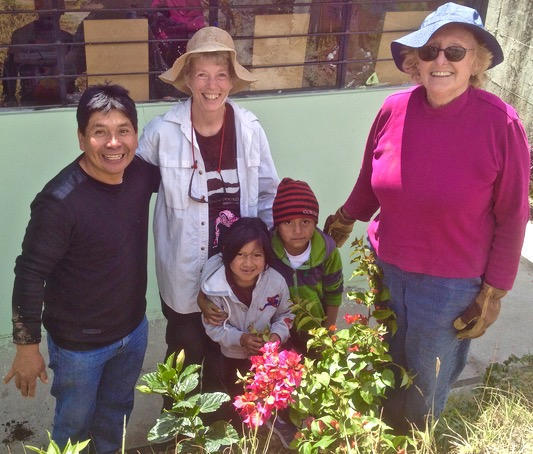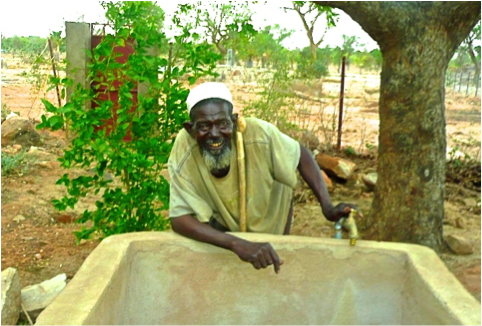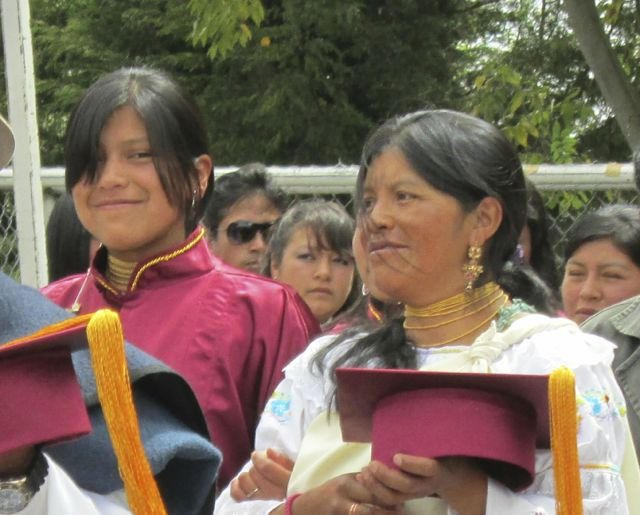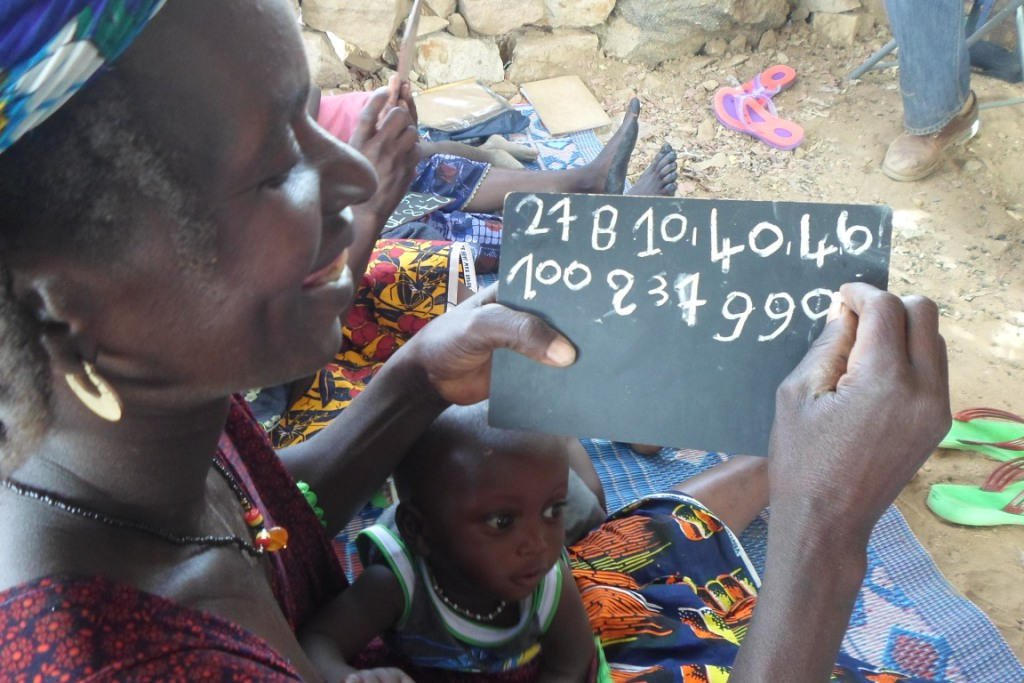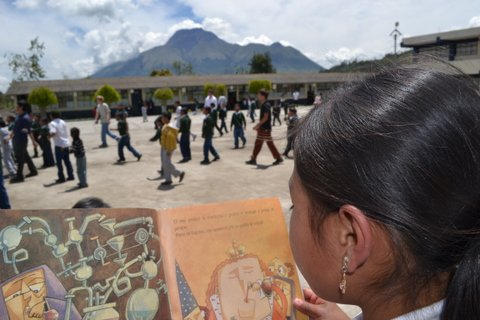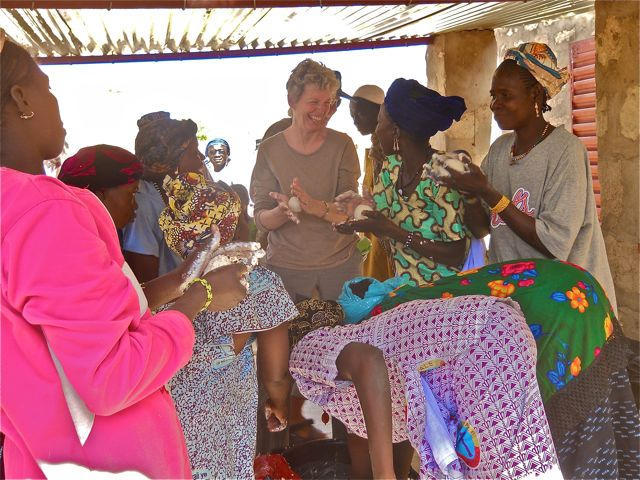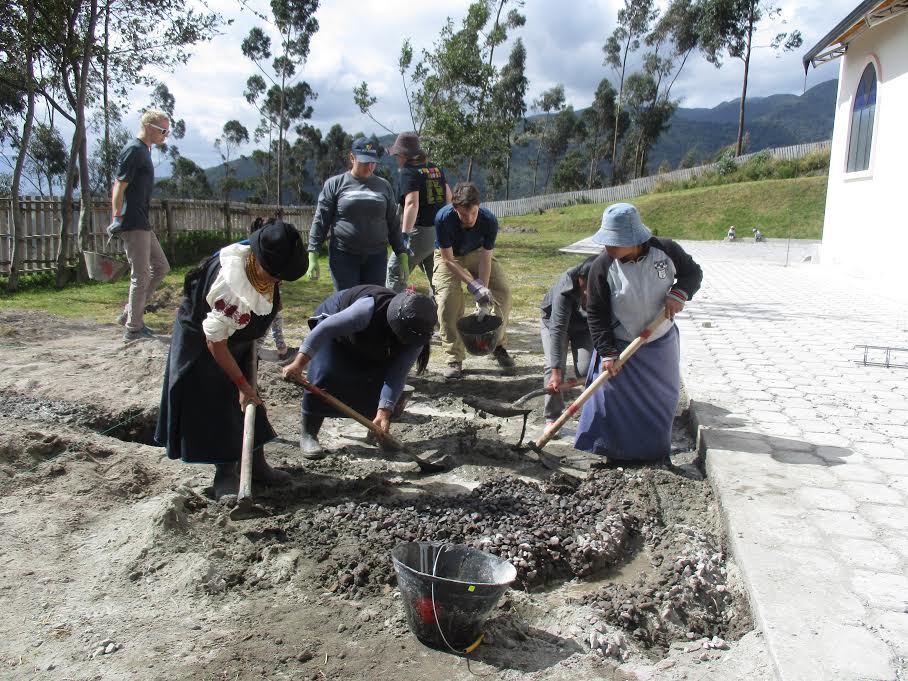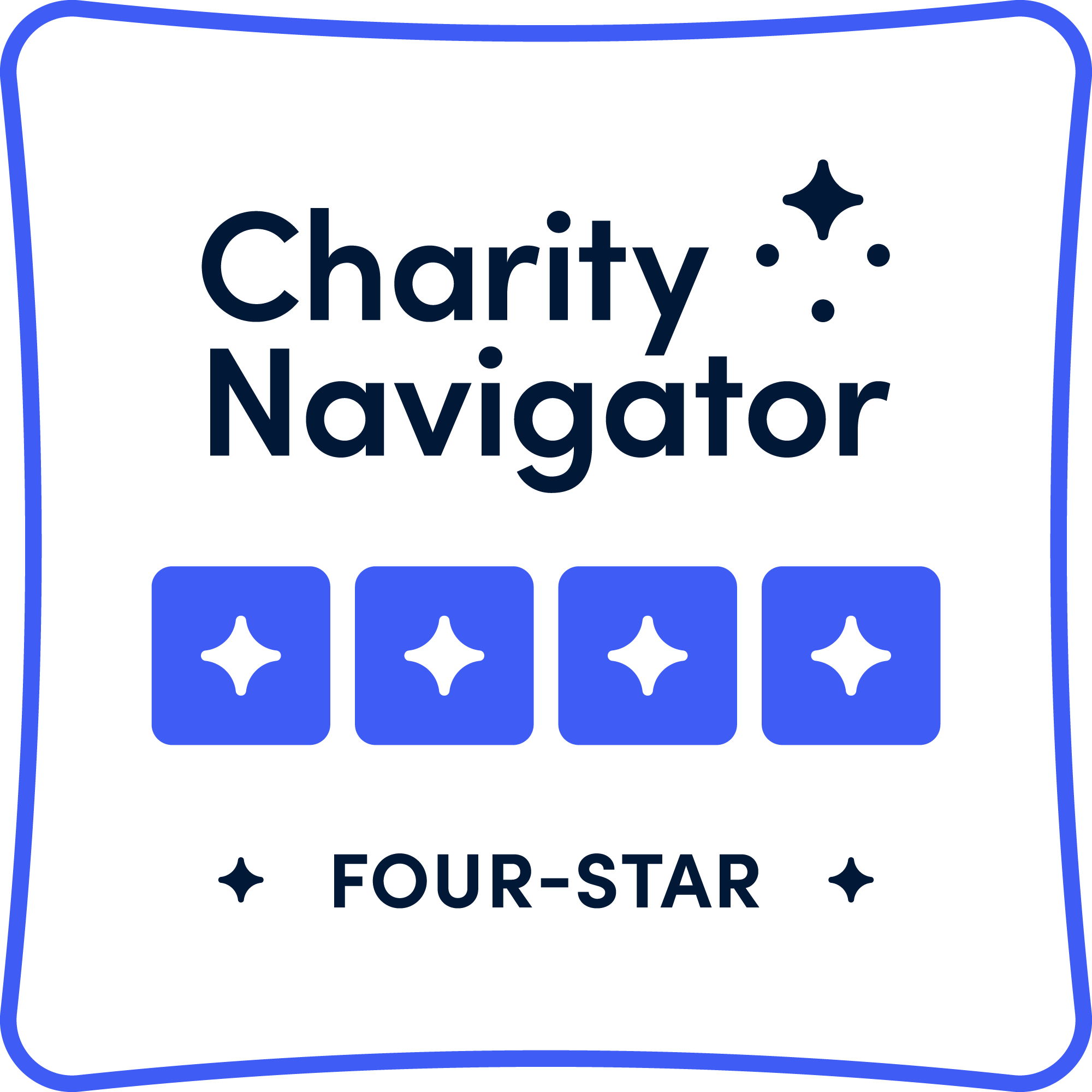Ce que nous faisons
La Fondation Tandana soutient une grande variété d'initiatives communautaires, ainsi que des programmes de bénévolat interculturels dans les Highlands de l'Équateur et le pays Dogon du Mali. Les onglets ci-dessous donnent des résumés d'année en année de nos activités.
2022
Equateur
Des progrès sont en cours sur le projet d'eau d'Inguincho. Vicente, Rockey et Nicole sont allés voir si l'eau coulait dans tout le système et ont rencontré la communauté pour s'assurer que toutes leurs questions avaient été répondues. Malgré quelques retards dus au COVID, les panneaux solaires ont été installés et la station de pompage devrait fonctionner sous peu. Les conduites d'amenée ont été placées et l'installation de réception d'eau attend le remplissage des réservoirs. La dernière étape est un lavage final des filtres à gravier, qui peut prendre un certain temps car il nécessite beaucoup d'eau. Le projet avec le Rotary International sera bientôt terminé !
Les étudiants de Sharon High School à MA travaillent avec les étudiants de Quichinche pour collecter des fonds pour peindre l'école. Ils se sont également rencontrés plusieurs fois sur zoom pour en savoir plus l'un sur l'autre et partager des passe-temps. Pour amasser plus de fonds, les élèves de Sharon ont organisé une vente de pâtisseries et ont dégusté des friandises traditionnelles de l'Équateur. Les bébés de pain qu'ils ont faits ont été un succès!
Veronica, notre coordinatrice des bourses, a organisé une réunion en personne des parents boursiers du secondaire pour répondre à toutes les questions au début de la nouvelle année civile. Les parents avaient de nombreuses questions et s'inquiétaient de savoir si et quand leurs enfants retourneraient à temps plein à l'école en personne. Nous avons également rencontré virtuellement les étudiants boursiers de l'Université pour partager des opportunités de bénévolat, savoir comment se déroulent les cours dans la pandémie en constante évolution et nous enregistrer.
En janvier, huit patientes ont reçu des soins médicaux pour divers problèmes médicaux, notamment une inflammation/infection du col de l'utérus, une fracture du bras, une scoliose, une arthrose, une perte auditive et une épilepsie. Malheureusement, en raison de l'augmentation des cas de COVID à cause de la variante omicron, les hôpitaux d'Otavalo et d'Ibarra ont temporairement fermé des cliniques externes. Les rendez-vous sont censés rouvrir mi-février. Cela étant dit, un jeune homme de Cutambi a été opéré à Quito pour extraire une déformation veineuse de sa jambe gauche. Cette opération a été reportée depuis 2019 à cause de la pandémie alors nous sommes très heureux qu'il ait enfin reçu des soins !
Grâce à notre programme de connexion à distance, l'école secondaire Sharon a collecté des fonds pour l'école communautaire d'Urkusiki qui sont allés vers des instruments de musique. Ils ont fait don d'un autre violon (en plus de celui qui avait été donné lors d'une visite précédente) et de 10 flûtes traditionnelles. Les élèves ont hâte de pouvoir les utiliser !
Cherchant des moyens d'améliorer leur école, le gouvernement des élèves du lycée de Quichinche a demandé à Tandana de l'aider à peindre l'extérieur de leur école. Les élèves de Quichinche en 10e année ont contacté les élèves du lycée Sharon pour aider à collecter des fonds et les parents, les enseignants, les élèves et les membres de Tandana ont peint ensemble!
En février, un total de 17 patients ont reçu des soins médicaux pour une extraction thyroïdienne, des douleurs musculaires, une dystrophie musculaire progressive, une possible microcéphalie causée par des sutures temporo-pariétales, des problèmes de prostate, des problèmes dus à une stéatose hépatique, des sutures oculaires mal faites qui nécessitent une chirurgie reconstructive, et la perte auditive. 4 patients ont été vus à la clinique d'ophtalmologie d'Otavalo.
Mali
Les 5 mères étudiantes de notre programme cette année ont reçu leurs fournitures et leur nourriture afin qu'elles puissent s'occuper de leurs bébés et rester à l'école.
Quatre nouveaux jardins scolaires sont en place et fonctionnent. Ils sont à Andjine, Tegou, Sal Ogol et Nalou. Les élèves, les enseignants et les représentants des parents ont tous participé à des sessions de formation sur le jardinage et ont commencé à planter. Nous avons hâte de voir ce qu'ils récoltent. Ces jardins ont été généreusement financés par la Fondation AllPeopleBeHappy et les Nick and Edna Weller Charities.
Le bâtiment de la Banque céréalière de Nounou est terminé, le comité de gestion a reçu sa formation, et le premier stock de mil est arrivé ! La banque céréalière sera extrêmement importante cette année, car le prix du mil sur le marché grimpe déjà haut. Heureusement, le comité a pu passer sa commande rapidement et obtenir suffisamment de mil avant qu'il ne devienne trop exorbitant. Cette banque de céréales aidera la communauté vers la sécurité alimentaire cette année et pour de nombreuses années à venir. Merci au First Community Church Mission Council d'avoir contribué à faire de cela une réalité !
La construction avance de l'atelier de fabrication de kits menstruels à Bandiagara, au Mali.
10 nouvelles classes d'alphabétisation pour 300 femmes au Mali ont commencé pour 2022 ! Les cours commencent par un pré-test afin que nous puissions voir à quel point les élèves progressent.
Le centre de santé de Sal est officiellement ouvert ! Une cérémonie officielle a eu lieu pour l'ouverture du centre avec tout le personnel, les responsables, les représentants du village, le comité du centre de santé, etc. Le Préfet du District de Bandiagara a prononcé un discours remerciant la Fondation d'avoir rendu possible la réalisation de ce projet malgré les crises du Covid -19 et insécurité dans la région. Il a souligné à quel point il est rare de voir un centre de santé complet construit, équipé et approvisionné en une seule fois, impliquant notamment l'inspection du service du génie rural. Ils ont maintenant un centre de santé près de chez eux où ils peuvent accéder à des soins médicaux, ainsi qu'une ambulance pour les emmener à l'hôpital au cas où ils auraient besoin de soins plus intensifs.
Nos ateliers sur le leadership féminin au Mali ont démarré pour cette année, avec le premier à Mory. Les femmes leaders qui ont participé aux cours d'alphabétisation l'année dernière apprennent maintenant à former et à diriger des associations de femmes et à partager leurs expériences en s'impliquant dans les élections municipales et en s'exprimant dans leurs villages. Le troisième atelier sur le leadership des femmes s'est achevé avec succès à Kansongo. Les femmes dirigeantes ont appris à former et à diriger des associations de femmes, tout en partageant leurs expériences avec la prise de décision locale et en mettant en pratique leurs compétences de prise de parole en public.
Nous avons organisé une session de formation pour les nouveaux moniteurs en littératie avec 11 participants parmi les meilleurs élèves en littératie des années passées. Ils seront désormais prêts à prendre le relais si l'un des instructeurs actuels devient indisponible.
L'Association environnementale d'Olouguelemo a tenu son assemblée annuelle et partagé les résultats des efforts de chaque village tout au long de 2021. Ils ont construit plus de 18 600 mètres de courbes de niveau en pierre pour prévenir l'érosion et retenir l'eau dans le sol. Ils ont pratiqué la régénération naturelle assistée sur 7 479 arbres. Ils ont fabriqué 95 foyers améliorés et construit 203 maisons. Ils ont mesuré 2 725 acres de forêts qu'ils ont protégées (et ils doivent encore mesurer quelques zones protégées supplémentaires). Félicitations à tous les membres de l'association pour leur travail acharné!
Grâce à un généreux don de Kailua United Methodist Church, un jardin scolaire a été créé à l'école Amayowo à Bandiagara, au Mali. Les élèves, les enseignants et les représentants des parents ont participé à une session de formation pour apprendre à jardiner et à planter des légumes et des arbres fruitiers. Ils ont pu construire une clôture et recevoir des outils de jardinage.
Les écoles d'Andjine et de Tegou ont reçu des fournitures scolaires de premiers soins et de pharmacie, grâce à une subvention de Nick and Edna Weller Charities. Ils disposent désormais des fournitures nécessaires pour traiter les maladies et les blessures mineures, ce qui est très important car ils sont situés loin des centres de santé les plus proches.
Le magasin de la nouvelle banque de coton et d'indigo à Dassi a été achevé. Le comité de direction de cette nouvelle banque a été formé, a participé à une session de formation et a été approvisionné. Ils géreront un stock de coton et de matières de teinture à l'indigo à l'aide d'un fonds de roulement afin que ces matières soient toujours disponibles pour les femmes locales qui les utilisent pour générer des revenus. Merci à l'Ambassade des États-Unis au Mali pour son soutien à ce projet.
Voici Fatoumata Bamia, l'une des boursières du Dr Ash B. Varma, M.D. au Mali, qui étudie pour devenir tailleuse. Elle apprend déjà à confectionner des modèles de vêtements.
2021
Mali
Les nouveaux cours d'alphabétisation pour 2021 ont commencé ! Les tableaux noirs et les meubles ont été fabriqués et livrés par les menuisiers de Kansongo. Les 10 nouvelles classes d'alphabétisation ont débuté en janvier avec un total de 311 élèves. Chaque groupe se réunit pendant environ quatre heures chaque après-midi, cinq jours par semaine. Ils utilisent tous des précautions covid. Tout le monde est déterminé à réussir et les cours se passent bien. Sur 311 élèves dans les classes, 300 ont passé le test (les 11 autres étaient absents pour diverses raisons). Sur les 300 qui ont passé le test, 240 ont obtenu des notes de passage. C'est 80% ce qui signifie que l'objectif pour l'année entière a déjà été atteint. Après une pause pour la saison agricole, les cours ont repris pour 3 mois de cours supplémentaires afin de renforcer et continuer à monter les compétences des élèves.
Le premier atelier leadership féminin de 2021 s'est achevé au Mali ! 100 femmes leaders, dont 80 étudiantes en alphabétisation en 2020, ont participé à un atelier de 10 jours, apprenant comment créer et diriger des associations de femmes, participer à la prise de décision locale et élaborer des plans d'affaires. Elles ont également partagé leurs expériences personnelles en tant que femmes leaders.
L'association des femmes de Goundoly Djeninke a connu une année très fructueuse avec son entreprise de teinture à l'indigo. Ils ont commencé avec un fonds de démarrage de 750 000 cfa, qu'ils ont reçu en tant que gagnants du concours de plan d'affaires en 2018. Depuis, ils ont élargi leur fonds à 1 400 000 cfa ! Lors d'une assemblée générale, ils ont décidé d'utiliser une partie de l'intérêt qu'ils avaient suscité pour acheter des koro taru, qui sont des instruments de musique et des décorations culturellement importants. Ceux-ci sont utilisés comme shakers pour accompagner les tambours lors des danses et aussi comme parures pour toutes sortes de cérémonies. Mise à jour : Le village de Goundoly Djeninke construit un entrepôt et un lieu de rencontre pour l'entreprise de teinture à l'indigo de l'association des femmes. L'association a remporté un concours de plan d'affaires et a reçu un financement de démarrage. Ils ont travaillé dur pour développer leur entreprise, et maintenant ils auront un endroit sûr pour stocker toutes leurs fournitures de teinture et aussi pour se rencontrer et travailler ensemble tout en partageant des idées les uns avec les autres.
Les cinq associations de femmes qui ont remporté le concours de plan d'affaires en 2020 ont partagé leurs rapports sur leur travail depuis le début de leur entreprise. Les groupes comptaient entre 30 et 45 membres et leurs activités proposées étaient le maraîchage, la teinture à l'indigo et l'élevage de moutons. Chaque groupe a connu une augmentation significative des fonds. Le groupement maraîcher a augmenté ses fonds de 113 500 fcfa ; les teinturiers à l'indigo ont augmenté leurs fonds de 424 000 francs CFA ; et les trois groupements d'éleveurs de moutons ont augmenté leurs fonds de 150 000 fcfa.
En raison de sa formidable croissance et de sa popularité, la banque Ondogou Indigo est divisée en trois sous-banques, une pour chaque village de Kondiougou, Guinekandah et Indell. Le personnel de Tandana vient d'organiser une session de formation pour les dirigeants de chaque sous-banque afin qu'ils soient clairs sur leurs responsabilités de gestion, et ils ont réparti leur fonds entre les trois groupes. Les villages d'Indell et de Guinekandah sont en train de casser des pierres pour la construction d'un nouveau magasin dans chaque village pour leurs banques d'indigo. Les membres sont motivés par leur succès et sont ravis de faire de ces trois nouvelles banques tout aussi prospères que la banque Ondogou.
Les habitants de Wana ont apporté tout le sable, le gravier et les pierres nécessaires à la construction d'un puits. L'entrepreneur a été retardé en raison d'un décès dans sa famille, mais il a maintenant été présenté au village et est prêt à commencer le forage. Mise à jour : Le puits Wana a maintenant 13 m de profondeur. La communauté se réjouit d'avoir un accès fiable à l'eau. Mise à jour : Le projet Wana Well touche à sa fin. Le comité de gestion a été élu et leur formation a eu lieu les 22 et 23 juin. Mise à jour : Le puits Wana est terminé !
Les habitants de Sandiam ont apporté le sable et le gravier nécessaires à la construction d'un puits. L'entrepreneur a été retardé en raison d'un décès dans sa famille, mais maintenant il a été introduit dans le village et va bientôt commencer à forer. Les habitants de Sandiam doivent parcourir un long chemin jusqu'à un autre village pour obtenir de l'eau, ils sont donc très enthousiastes à l'idée d'avoir bientôt le nouveau puits. Mise à jour : Le puits Sandiam a maintenant 18 m de profondeur. Ils ont touché une couche de roche très dure, ce qui signifie qu'ils vont plus lentement, mais toute l'équipe est persistante et continue de progresser. Mise à jour : Le puits de Sandiam est presque terminé ! Ils ont fini le revêtement en ciment et construit l'ouverture surélevée et le bassin d'abreuvement pour le bétail. Mise à jour : Le puits Sandiam est terminé !
Le jardin de Kansongho a récemment connu une récolte réussie. Les fruits rouges sont du palmier doum et les noirs sont des fruits de cajou.
Beaucoup de progrès ont été réalisés au centre de santé de Sal. Ils ont apporté des plates-formes pour forer un trou de forage pour un puits qui sera équipé d'une pompe solaire pour fournir de l'eau au centre, ils ont maintenant commencé à construire un château d'eau, et ils finissent la constructionsur le mur autour de l'ensemble de l'enceinte. L'ambulance et certains meubles arriveront également bientôt. Mise à jour : la zone d'attente est terminée et, plus récemment, ils ont travaillé sur le château d'eau et les panneaux solaires. Mise à jour : Le centre de santé de Sal est terminé ! Après diverses réunions et inspections le mois dernier, les habitants de Sal ont enfin organisé une cérémonie d'inauguration et une grande fête pour le nouveau centre de santé ! Même les jeunes de Sal qui vivent à Bamako et même plus loin sont revenus dans les villages pour cet événement important. Ils ont visité le centre, ont prononcé des discours et ont fait des représentations le matin, puis ont continué avec une danse collective l'après-midi. Maintenant que le comité de gestion et les chauffeurs d'ambulance ont reçu une formation, ils sont ravis que le centre commence à fonctionner.
L'association environnementale d'Olouguelemo dispose désormais d'un appareil GPS, et le secrétaire de l'association, ainsi que le superviseur et le responsable du programme de Tandana ont reçu une formation sur son utilisation. Ils utilisent le GPS pour mesurer les zones forestières protégées et enregistrer les emplacements précis des limites, des sources d'eau et d'autres caractéristiques. Après avoir terminé l'enquête actuelle, ils connaîtront la superficie et les emplacements réels de leurs zones protégées. Ils trouvent aussi des fruits sauvages comestibles, beaucoup plus abondants grâce à leur travail de protection des forêts.
Le maire du canton de Wadouba a organisé une grande réunion pour discuter du plan de développement du canton pour les cinq prochaines années. Dans le passé, les femmes n'avaient pas été incluses dans ce genre de réunions, mais cette année, de nombreuses associations de femmes qui se sont formées grâce à notre programme Alphabétisation, leadership et entreprise des femmes ont exigé que leurs représentantes soient invitées à la réunion. Le maire a accepté et cette année, pour la première fois, de nombreuses femmes représentant les différentes associations ont participé, partageant leurs idées et leurs opinions sur les projets de la Municipalité pour les cinq prochaines années.
Tandana soutient un enseignant communautaire pour l'école d'Andjine. L'école ne comptait que 3 enseignants pour 131 élèves de la 1re à la 6e année. Salimata Karembe a grandi à Andjine, a obtenu un certificat en agriculture, puis est retournée au village pour être avec son mari et élever sa famille. Elle a participé au programme d'alphabétisation de Tandana et à l'atelier sur le leadership des femmes. Elle a commencé à faire du bénévolat à l'école pour aider, et maintenant elle est payée, moitié par la communauté et moitié par Tandana. Elle enseigne aux 43 élèves de 3e et 4e année. Félicitations à Salimata pour son excellent travail avec les élèves.
Les participantes aux ateliers de leadership féminin 2021 sont rentrées dans leurs villages et ont créé 10 nouvelles associations féminines officielles. Ces nouvelles associations ont été invitées à soumettre un plan d'affaires à un concours parrainé par Tandana pour rechercher un financement de démarrage pour leur entreprise. Les cinq meilleures propositions ont été sélectionnées et ont reçu leur financement initial. Les associations déjà créées ont été invitées à soumettre des propositions pour un deuxième concours, et cinq de ces propositions ont également été sélectionnées pour recevoir un financement. L'association de Komberou a trouvé le meilleur marché pour vendre son poisson séché, et quatre autres associations - une d'Andjine, deux de Kilegou et une de Nalou - ont acheté leurs moutons et les ont fait vacciner.
Le comité de direction de la banque d'indigo Sol Djeninke a participé à un atelier pour apprendre à gérer leur banque et aussi comment teindre en toute sécurité en utilisant des colorants naturels et chimiques. Ils ont également reçu leur équipement et leurs fournitures, de sorte que la nouvelle banque d'indigo est opérationnelle. Ils ont récemment tenu leur première réunion pour rembourser les matériaux qu'ils ont utilisés pour leur teinture à l'indigo. La réunion s'est bien déroulée et la première campagne a été un succès. Ils ont tous remboursé les sommes qu'ils devaient, et maintenant ils ont commandé leur matériel pour la prochaine campagne.
Les jardins scolaires de Saredina et d'Ondogou se portent bien ! Ils cultivent des tomates, de la laitue, des oignons, des aubergines, des tomates, des poivrons et des carottes et prennent soin de leurs papayes, grenades, mangues, citrons et goyaviers. Les étudiants mangent des produits dans leurs déjeuners et comme collations fraîches, et ils ont également vendu des produits supplémentaires pour gagner de l'argent. Le comité du jardin de Saredina a gagné environ 30 dollars et le comité du jardin d'Ondogou a gagné environ 17 dollars grâce aux ventes de produits. Ils utiliseront ces fonds pour acheter des fournitures scolaires en octobre lors de la rentrée scolaire.
Les habitants de Kansongo sont occupés à construire une salle de classe pour leur jardin d'enfants. Mise à jour : la construction de la salle de classe est terminée et est maintenant prête à être utilisée par les enfants !
Notre équipe au Mali a récemment pris des photos qui montrent vraiment la valeur du travail de lutte contre l'érosion effectué par l'association environnementale d'Olouguelemo. C'est près de l'étang de bétail à Goundoly. Vous pouvez voir que la zone est entièrement stérile, à l'exception des plantes vertes qui poussent juste à côté de la ligne de contour de pierre que les membres de l'association construisentt.
Dramane Pamateck, de Sal Ogol, a été sélectionnée comme responsable de la pharmacie du nouveau centre de santé de Sal, au Mali. Il s'entraîne actuellement pour son nouveau rôle à Bandiagara.
La pépinière de Gongo fournit 500 plants pour le projet de reboisement 2021 à Kansongo. Vous pouvez voir une photo (à gauche) des plantes qui ont été cultivées et où elles ont été plantées.
Nous sommes heureux d'annoncer que les 8 étudiantes de notre programme d'étudiantes-mères au Mali ont réussi l'année ! Cinq d'entre eux ont réussi leur examen DEF pour recevoir le diplôme de l'enseignement fondamental. Les trois autres sont passés de la 7e à la 8e année.
Le magasin d'une nouvelle banque de céréales à Nounou, au Mali, est en construction. Merci au First Community Church Mission Council pour son soutien à ce projet !
L'association des femmes de Banakane, au Mali, a tenu son assemblée annuelle pour collecter les remboursements du coton qu'elles ont toutes transformé en tissu et discuter du succès de leur entreprise. Ils prévoient de commander leur prochain stock de coton dès que possible pour continuer à travailler.
Equateur
Les boursiers McNair de l'Université de Cincinnati ont participé à une série d'activités culturelles à distance. Dans une activité, ils ont rejoint Kawsaymi Cocina pour un cours de cuisine pour apprendre à préparer des plats traditionnels kichwa.
Les membres de la communauté de La Banda ont terminé la phase la plus récente d'installation des tuyaux que nous leur avions précédemment donnés pour leur système d'eau potable. Ils ont reçu un don généreux pour la phase finale du projet et travaillent sur la phase finale d'installation de conduites d'eau pour atteindre toutes les maisons de la communauté. Une fois cette phase terminée, toutes les maisons auront de l'eau. Mise à jour : Le projet La Banda Water est terminé ! Les dernières conduites nécessaires pour compléter le système ont été installées et fonctionnent.
Tandana a fait don de 4 ordinateurs portables et réparé 6 ordinateurs portables et 1 imprimante pour le laboratoire informatique de l'école d'Urkusiki, en Équateur. Nous sommes très reconnaissants à Tech Service Corps qui a fait don de fonds pour que cela se produise.
Dans le cadre de nos efforts continus pour assurer la sécurité et l'absence de germes dans nos communautés, nous avons fait don de distributeurs de savon et de serviettes en papier au centre de santé de Quichinche. Nous avons également fait don d'un évier et de distributeurs de serviettes en papier au centre de santé de Gualsaqui.
Kevin a reçu sa nouvelle prothèse de jambe ! Il pourra désormais poursuivre son style de vie très actif. Kevin aime jouer au basket, faire du vélo et patiner et, heureusement, il travaille toujours à Ibarra malgré les nombreux licenciements dus à la pandémie.
Le jardin médicinal et nutritionnel du centre de santé de Quichinche se porte bien. Le personnel du centre de santé et le comité de santé ont planté des fèves, des haricots verts et des plantes médicinales, et ils ont tous participé à la récolte.
Le projet d'eau de Gualapuro est officiellement terminé ! Toutes les maisons ont désormais accès à l'eau potable. Une machine de chloration a été installée, un système de comptabilité mis en place, un petit bureau sécurisé pour la comptabilité, le paiement des factures et le stockage des outils et fournitures liés au système d'eau a été construit, et toute la communauté est très excitée pour ce qui va arriver l'avenir. Il a été question d'un parc d'attractions familial qui comprendra une tyrolienne.
La communauté de Motilón Chupa travaille sur la phase finale de construction de son système d'irrigation. Plus récemment, ils ont travaillé sur le réservoir de collecte d'eau. Mise à jour : Le réservoir d'eau pour le système d'irrigation de Motilón Chupa est terminé ! Ils viennent tout juste de terminer le principal réservoir de collecte et l'eau s'écoule vers les cultures qui en ont besoin dans le système d'irrigation.
La communauté de Muenala, avec des matériaux fournis par Tandana, construit un deuxième étage pour son centre communautaire. Ce deuxième étage offrira un espace pour des événements, des cours de catéchisme et des activités communautaires. Ils ont récemment eu une minga pour couler le ciment du toit du deuxième étage.
Nous travaillons avec la communauté d'Inguincho et le Rotary International pour planifier un nouveau système d'eau propre pour la communauté. Jusqu'à présent, quelques-uns des réservoirs de 10 000 litres ont été livrés à la communauté et ils ont organisé de nombreuses journées de travail communautaires pour construire la zone de sécurité du réservoir.
2020
Equateur
Les maîtres jardiniers de l'Ohio ont profité d'une semaine remplie d'activités agricoles, de jardinage et culturelles au cours du voyage de cette année. Ils ont passé 4 jours de travail au Lycée Saminay, une école technique d'agriculture à environ 40 minutes d'Otavalo. Ils ont passé leurs matinées à travailler avec les élèves et les professeurs pour planter le long de l'entrée de l'école. Ils ont également eu la chance de participer à une minga avec toutes les familles de l'école, qui a été suivie d'une pampamesa (repas-partage traditionnel). En plus de leur travail acharné, ils ont appris la robe traditionnelle Kichwa chez Margarita, le cochon d'Inde rôti et les plantes médicinales à l'école de cuisine de Kawsaymi, ont préparé un dîner sur des roches volcaniques à Pakarinka et ont visité la ville voisine de Cotacachi. Ils ont également eu l'expérience unique de voyager dans la forêt de Polylepis, où ils ont pu comparer les plantes des hautes terres de l'Équateur aux plantes qu'ils voient dans l'Ohio. De nombreux participants attendent avec impatience d'apporter les nouvelles perspectives qu'ils ont acquises en Équateur dans leurs propres jardins.
Pendant de nombreuses années, l'école itinérante est venue en Équateur pendant leur semestre pour travailler aux côtés des communautés et de Tandana. Cette année n'a pas fait exception puisque les filles sont arrivées dans la communauté d'Agualongo où tout a commencé. Les étudiants ont visité pendant les vacances du Carnaval et ont pu participer aux festivités en jetant de l'eau et en pulvérisant de la mousse sur tout le monde. Vivre dans des familles d'accueil et faire partie d'une famille loin de chez eux était exactement ce dont les étudiants avaient besoin. Les étudiants ont travaillé aux côtés de la communauté, nettoyant la route de quelques glissements de terrain dus à toute la pluie. Ils ont emmené leur famille en excursion au lac et, un autre jour, ont marché jusqu'à une vue fantastique pour préparer le déjeuner et profiter de la compagnie de tout le monde dans un autre "Dia de campo" réussi. Il était difficile de dire au revoir, et lors de la fête de départ, les étudiants ont montré leur gratitude à la communauté et aux familles avec des chansons, des raps et des mots sincères. Voyagez en toute sécurité dans vos aventures continues !
Cette année, le programme ACES de Northeastern est arrivé pendant les vacances de printemps pour aider la communauté de Gualapuro à peindre son centre communautaire. Les élèves ont passé toute la semaine à peindre et à plâtrer le matin et à nouer des relations et à apprendre des membres de la communauté l'après-midi. Les participants ont visité le grand projet d'eau sur lequel Gualapuro travaille, ont fabriqué des bracelets (photo) et ont dégusté du pain fraîchement cuit. Ils ont pu partager la recette de la pizza avec les enfants et les membres de la communauté et ont passé un bel après-midi à jouer dehors. Chaque déjeuner, les étudiants ont partagé des plats traditionnels avec les personnes avec lesquelles ils ont travaillé ce jour-là et le matin et le soir, ils ont cuisiné à tour de rôle pour le groupe. Ils ont eu un temps magnifique et ont pu marcher jusqu'au musée Living Kichwa pour en apprendre davantage sur les traditions et les jeux kichwa. Une fois le projet terminé, les étudiants ont visité le lac de cratère voisin, Cuicocha. Enfin, la semaine s'est terminée par une despedida (fête d'adieu) en larmes, avec danse et pamba mesa (partage-partage).
Le groupe de Saline High School à Ann Arbor, Michigan, a commencé son voyage en Équateur avec un accueil chaleureux de La Banda, la communauté qu'ils ont soutenue dans la mise en place d'un nouveau système d'eau. L'accueil comprenait des discours, de la danse, un orchestre et un déjeuner traditionnel pambamesa (style repas-partage). Pendant les cinq jours suivants, le groupe a travaillé côte à côte avec les membres de la communauté pour creuser des tranchées de 1 m de profondeur, s'étendant sur près de 800 m de longueur totale ! Le groupe n'a pas seulement travaillé dur, il a aussi joué dur. Avec des activités telles que la visite de la cascade de Peguche, la préparation d'un dîner à l'école de cuisine de Kawsaymi, la visite du marché de la Plaza de Ponchos et le football avec des membres de la communauté, ce groupe a passé une semaine chargée à essayer de nouvelles choses. Ils ont également eu la chance d'en savoir plus sur l'un des principaux métiers de La Banda : travailler dans des ateliers de tissage ! Ils ont eu la chance de pouvoir voir non seulement un atelier de tissage moderne, mais aussi une démonstration au musée d'Otavalango sur le tissage traditionnel et l'évolution des techniques au fil des ans.
Nous avons soutenu le personnel des centres de santé de Quichinche et Gualsaqui avec des EPI, des fournitures et des médicaments, ainsi que le transport pour visiter les communautés dont ils sont responsables. Avec le confinement, les patients d'autres communautés n'ont pas pu se rendre dans les centres de santé, alors le personnel est allé s'occuper de ceux qui avaient besoin d'aide dans les communautés et aussi pour livrer des médicaments mensuels à ceux qui les récupéraient habituellement au centre.
Tandana a récemment fait don de 1 000 tubes coniques diplômés pour la collecte d'échantillons COVID-19. Ces fournitures vitales aideront à garantir qu'il n'y a pas de retard dans les tests dans la région d'Otavalo afin que les professionnels de la santé puissent rester au courant des tests. Merci à tous les travailleurs de la santé de première ligne qui font du bon travail avec ces kits de test !
Tandana a couvert les frais de transport pour les travailleurs du sous-centre des centres de santé Gualsaqui et Quichinche pour se rendre à la communauténités de fournir les soins médicaux nécessaires directement aux communautés pour les patients qui sont vulnérables en raison de leurs conditions préexistantes et qui ne peuvent pas se rendre au sous-centre pour des examens et des médicaments en raison de l'ordre de séjour à domicile imposé par le gouvernement national. Au total, 217 patients de 13 communautés différentes de la paroisse de Quichinche ont reçu des soins.
Nos étudiants boursiers sont engagés dans l'apprentissage en ligne et trouvent de manière ingénieuse des moyens d'accéder à Internet à partir de leurs communautés de montagne afin qu'ils puissent suivre leurs affectations. Nous les soutenons avec des dépenses Internet supplémentaires pendant la pandémie. Nous avons pu soutenir 20 étudiants avec les frais d'internet afin qu'ils puissent poursuivre leurs études entièrement en ligne.
L'école d'été a été offerte virtuellement via zoom cette année. Veronica, notre coordonnatrice des bourses, a pré-zoomé avec les 22 étudiants boursiers potentiels qui attendaient avec impatience de rencontrer leurs professeurs. Ils ont eu des cours en ligne les lundi, mercredi et vendredi pendant 5 semaines du 6 juillet au 7 août. Les stagiaires Mallory, Hannah et Hank ont enseigné à distance depuis les États-Unis avec 4 étudiants boursiers universitaires équatoriens, Amauta, Nicole, Dayana et Lady. Ils ont enseigné l'anglais, le théâtre, l'art, le leadership, les mathématiques et l'entrepreneuriat. Pour un bonus supplémentaire, les mercredis consistaient en un cours de psychologie à l'échelle de l'école d'été pour que les étudiants apprennent à se connaître et à connaître les autres dans le programme. 20 étudiants ont terminé le programme complet de 5 semaines d'école d'été et les 20 étudiants qui ont terminé le cours ont été acceptés dans le programme de bourses d'études secondaires. Toutes nos félicitations!
La collecte de fonds organisée par l'Alliance of Civically Engaged Students (NU-ACES) de la Northeastern University a été un énorme succès. 1280 masques ont été livrés dans 21 communautés de la paroisse de Quichinche dont Padre Chupa, Motilón Chupa, Minas Chupa, Inguincho, Cambugán, Tangalí, Cutambi, Guachingero, Achupallas, Urcusiqui, Muenala, Guayrapungo, Moraspungo, Gualsaquí, Panecillo, Agualongo, La Banda, Yambiro, Larcacunga, San Juan Alto et Gualapuro. Aussi, 200 masques jetables et 100 masques KN95 ont été donnés au centre de santé de Gualsaqui et Quichinche. En outre, d'autres fournitures médicales, notamment des bandages et de l'alcool, ont été livrées au directeur de l'hôpital d'Otavalo et au directeur du centre de santé de Gualsaqui.
La nouvelle année scolaire a débuté en septembre et, comme les cours sont virtuels, nous avons décidé d'ouvrir le bureau de Panecillo afin que les étudiants boursiers et les membres de la communauté puissent utiliser Internet et les ordinateurs pour assister aux cours et faire leurs devoirs. Notre formidable équipe aide les étudiants à faire leur travail.
Un ordinateur a été donné au conseil communautaire de Panecillo. Cela aidera le conseil lors des réunions, des présentations et d'autres événements et rassemblements communautaires.
Notre programme de suivi des patients a fait des progrès pendant la pandémie. Une patiente a reçu ses aides auditives et est très reconnaissante de pouvoir entendre clairement. Elle attend des prothèses auditives depuis 2018. Il a été important de continuer à voir des patients pendant la pandémie, même si nous n'avons pas été en mesure de gérer nos activités normales de bénévolat en soins de santé.
Le centre de santé de Gualsaqui a été récemment peint. Voici un aperçu du produit final. C'est plus hygiénique et donne aux patients plus de confiance pour entrer dans un centre de santé propre et soigné.
Mali
Nous avons démarré l'année avec 10 nouvelles classes d'alphabétisation, chacune avec 30 étudiantes. Les 300 nouveaux participants sont étudiés d'arrache-pied ! Voici un aperçu de la salle de classe à Kilegou. Ils ont appris l'alphabet, les chiffres, la lecture, l'écriture et l'arithmétique, des compétences qui leur donnent confiance et indépendance sur le marché, dans les communications téléphoniques, dans la tenue de registres pour leurs groupes d'épargne et leurs entreprises, dans la lecture des panneaux et la prise de notes lors des réunions. Sur les 290 femmes qui ont passé l'examen final l'année dernière, plus de 90 % des participantes ont obtenu des notes satisfaisantes ou meilleures aux examens finaux d'alphabétisation et de calcul organisés par la Fondation Tandana. Lisez tout à ce sujet ici sur notre blog.
Une série de trois ateliers de 8 jours pour 80 femmes leaders a été achevée au Mali. Chaque classe d'alphabétisation à partir de 2019 a délégué des membres de classe pour assister aux ateliers. Les participantes ont appris à créer, gérer et diriger des associations féminines officielles, à élaborer des plans d'affaires et à tenir des registres. Elles ont également eu l'occasion de partager leurs expériences en tant que femmes s'exprimant et s'impliquant dans la prise de décision locale et s'encourageant mutuellement. À la fin de l'atelier, les participants ont montré ce qu'ils avaient appris et célébré. Découvrez une vidéo de leur dernier jour ici.
Des bureaux avec des bancs, des chaises et des armoires attachés pour l'école d'Andjine ont été construits par l'atelier de charpentiers de Kansongho et livrés à l'aide de leur moto-tricycle. Remerciements particuliers à l'Église méthodiste unie de Bellbrook pour son aideng financer à la fois le tricycle et le mobilier. Désormais, les élèves peuvent s'asseoir confortablement en classe et écrire plus proprement dans leurs cahiers.
Les habitants de Komberou travaillent dur, cassant et transportant des pierres pour la restauration et l'amélioration de leur puits. Bientôt, un entrepreneur apportera une plate-forme de forage et travaillera avec eux pour approfondir, sécuriser et améliorer leur puits. Ici, ils cassent des morceaux de pierres.
L'association de femmes Otaba à Kani, au Mali, a été l'une des cinq lauréates du concours de plans d'affaires qui s'est tenu récemment dans le cadre du programme Alphabétisation, leadership et entreprise des femmes. Ils ont acheté leurs moutons, ont reçu une formation sur la façon de s'occuper d'eux et les ont fait vacciner.
Découvrez la récolte d'oignons, de tomates, de gombos, de laitue et de poivrons du jardin scolaire du plateau de Yarou. Ils ont vendu une partie des produits et ont utilisé le produit pour acheter des cahiers, des stylos et de la craie. Félicitations et merci à Ele Samakan d'avoir maintenu l'école de Yarou ouverte sans aucun autre enseignant et d'avoir également fait un excellent travail avec les élèves dans le jardin.
Les 19 groupes Savings for Change de Sobody, Sardina et Nalou ont tous tenu leurs cérémonies de partage de fonds, après avoir terminé une année d'activités d'épargne et de crédit. Chaque membre a reçu son épargne plus les intérêts. Maintenant, ils ont créé un nouveau fonds, économisant à nouveau pour l'année à venir.
L'association des femmes d'Indell Koumbaye a été l'une des lauréates du récent concours de plan d'affaires avec une proposition pour une entreprise de teinture à l'indigo. Ils ont participé à une session de formation sur les techniques sûres et naturelles de teinture à l'indigo et ont acheté l'équipement dont ils ont besoin pour faire leur travail.
Les progrès se poursuivent sur le projet d'amélioration du puits à Komberou, au Mali. Ils l'ont foré plus profondément et travaillent maintenant sur le revêtement de ciment sécurisé. Pendant qu'ils travaillaient, ils ont découvert qu'une partie du mur s'était effondrée à l'intérieur du puits et que cela devenait dangereux. Si ce projet n'avait pas été réalisé, il se serait probablement effondré à un moment donné et des gens auraient pu être blessés. Mise à jour : En mai 2020, le projet est terminé !
Notre équipe a organisé 300 sessions de formation sur la prévention de la propagation du COVID-19 et distribué des dizaines de stations de lavage des mains pour faciliter le suivi des recommandations sanitaires, ainsi que la fourniture de fournitures et d'EPI à un hôpital et à des centres de santé locaux. Le premier cas de COVID a été signalé à Bandiagara, le district où nous travaillons au Mali, notre équipe est donc aussi proactive que possible pour diffuser des informations de prévention. En plus des séances en personne, notre équipe diffuse également des informations sur les méthodes de prévention du COVID à la radio.
L'Association environnementale d'Olouguelemo a tenu une réunion à distance sociale du comité de direction et des représentants de chaque village, au lieu de la grande assemblée générale qu'ils auraient eue en l'absence de pandémie. Ils ont ensuite annoncé la 4e campagne annuelle de reboisement d'Olouguelemo qui a été lancée à Kansongho. La campagne de reboisement est soutenue par l'association environnementale d'Olouguelemo, le bureau du maire du canton de Wadouba et la Fondation Tandana. Il a plu la semaine dernière pour arroser les arbres ce qui est un bon signe pour le succès de la campagne. De plus, grâce au travail de protection de l'environnement de l'Association environnementale d'Olouguelemo au Mali, les fruits sauvages poussent en abondance dans les zones forestières protégées. La campagne de reboisement a été achevée avec un total de 1 890 arbres plantés dans 20 villages, dans 3 écoles et dans 5 autres bâtiments publics.
La commission d'intervention d'urgence COVID de Ningari a terminé ses travaux et tenu sa dernière réunion. La commission a remercié la Fondation Tandana pour son soutien. Actuellement, tous les cas positifs identifiés de COVID à Ningari se sont rétablis et aucun nouveau cas n'a été signalé. Les familles utilisent les petits kits de lavage des mains fournis par Tandana et les résidents utilisent les grandes stations de lavage des mains dans les lieux publics.
Le Papa Hubert Cotton Bank à Dana-Guire, au Mali, a été lancée en 2018 et continue de bien fonctionner, offrant aux femmes la possibilité de gagner un revenu en transformant le coton en tissu. Il y a quelques semaines, une autre ONG, sans faire de préparatifs avec le village, a envoyé un enseignant à Dana-Guire pour enseigner aux jeunes qui n'ont plus l'âge scolaire. Ils ont amené l'enseignant avec tous ses bagages et ont dit au chef du village qu'il avait besoin d'une salle de classe pour enseigner. Comme il n'avait eu aucun avertissement, le chef a dit qu'il pouvait enseigner dans le bâtiment de la banque de coton et que cela pourrait être la salle de classe. . Mais Kadidia Yanogue, la présidente de la banque du coton, s'est opposée au chef et a dit : « Non, ce bâtiment a été construit pour notre banque du coton. Nous en avons besoin pour stocker le gros lot de coton que nous allons bientôt acheter, et nous utilisons C'est notre lieu de rencontre pour les femmes. Cela ne peut pas être transformé en salle de classe. Il a fallu beaucoup de courage à une femme pour s'élever contre ce que disait le chef du village, et sa volonté de prendre ce risque montre à quel point la banque de coton est importante pour les femmes du village, ainsi que la confiance que les ateliers de leadership des femmes ont inspiré. Le chef a écouté et a décidé que les hommes construiraient un hangar ombragé pour les cours.
Les travaux commencent pour la construction du nouveau centre de santé de Sal, au Mali, grâce au généreux don de Kitty et Dick Rosenthal. Voici une photo du site du nouveau centre de santé, qui desservira environ 9 000 personnes, qui doivent actuellement parcourir de longues distances sur des pistes accidentées pour accéder aux soins de santé. Les habitants de Sal ont fini de casser les pierres pour les fondations des cinq bâtiments, et l'entrepreneur transporte le sable et le gravier nécessaires à la construction.
Les jardins scolaires de Saredina et d'Ondogou sont prêts à l'action ! Pour les deux jardins, les clôtures ont été installées, les comités de gestion ont été sélectionnés et les élèves, enseignants et parents ont participé à des ateliers de formation sur les techniques et la gestion du jardinage. Les deux formations ont accueilli plus de participants que prévu, et nous attendons maintenant avec impatience que les plantes soient prêtes pour la récolte.
La construction du centre de santé de Sal avance. Au début du mois, l'entrepreneur, les maçons et certains habitants de Sal ont aménagé les coins et construit un réservoir d'eau pour stocker l'eau pour mélanger le ciment et à d'autres fins tout au long de la construction. Maintenant, ils sont presque terminés avec les fondations des bâtiments principaux.
2019
Equateur
Des bénévoles des maîtres jardiniers de l'Ohio ont rejoint Tandana pour une aventure d'une semaine afin de réaliser différents projets de jardinage et d'exploration culturelle. Toute la semaine, le groupe était accompagné de notre ami bien informé de la communauté, Matias Perugachi. Ils ont pu l'aider à travailler sur sa terre et à se salir en aidant à l'entretien. Le groupe a passé trois matinées à travailler à Inguincho à la station météorologique en plantant des plantes médicinales et une variété d'arbres. Ensuite, ils ont pu découvrir l'importance de la station météo pour la région et les travaux qui s'y déroulent. Le groupe a participé à quelques échanges culturels l'après-midi, apprenant les vêtements traditionnels et les méthodes de cuisine, assistant à des cérémonies de guérison et partageant des repas et cuisinant avec des amis locaux. Le groupe a également eu le temps d'explorer la forêt de Polylepis et de découvrir son écosystème unique. Le dernier jour, le groupe a rejoint les élèves et les enseignants de l'école La Joya pour planter et profiter d'un goûter et danser ensemble.
Les étudiants de l'école itinérante ont visité et séjourné chez l'habitant avec la communauté d'Agualongo pendant une semaine. Pendant ce temps, les filles ont poursuivi leurs études secondaires générales tout en découvrant la culture autochtone Otavaleño. Ils ont aidé les membres de la communauté locale à nettoyer les tranchées de drainage sur la route principale, puis dans une minga communautaire, ont commencé le troisième mur du terrain de football et ont déplacé la terre et les pierres pour niveler le terrain. Les filles ont exprimé leurs remerciements en partageant des mots et un souvenir suivis d'une chanson en anglais et en espagnol. L'expérience a été agréable pour tout le monde et les filles sont reparties le lendemain matin pleines de chemin qu'elles avaient grandi et continueraient à naviguer dans leur semestre de voyage.
Les étudiants de l'Arendell Parrott Academy ont commencé leur semaine pleine d'activités par une visite à l'école de cuisine de Kawsaymi où ils ont aidé à préparer un repas traditionnel et ont même goûté à une spécialité locale : le cochon d'Inde. Ils passaient leurs après-midi à l'école Panecillo à donner des cours d'art aux élèves. Les enfants ont adoré fabriquer des kaléidoscopes, des fleurs en papier géantes, des colliers de coquillages et des bracelets aux couleurs changeantes, et le groupe a aimé pratiquer son espagnol pour diriger les projets. De plus, le groupe a contribué à 2 projets de service - repeindre les salles de bains et peindre une murale à l'intérieur de l'école. Lors de leur dernier jour à l'école, les élèves invités et les élèves de Panecillo ont joué à des jeux et dansé ensemble. L'événement s'est terminé par une danse chorégraphiée par les élèves invités que le groupe de danse de l'école a interprété. Le groupe a apprécié toutes les activités auxquelles ils ont participé, mais le point culminant a été de travailler avec les élèves de l'école où ils se sont fait de nouvelles amitiés et espèrent revenir un jour.
La Fondation Tandana a accueilli treize étudiants de la Northeastern University Alliance of Civically Engaged Students (NU ACES) pour un projet de service d'une semaine dans la communauté éloignée de Motilón Chupa. Leur projet pour les quatre jours suivants était de travailler avec les membres de la communauté pour creuser un nouveau système de confinement de l'eau. Heureusement, le premier jour sur place était une minga (une journée de travail communautaire qui comprenait un représentant de chaque ménage de la communauté). Les après-midi étaient pleins d'activités intéressantes avec de nouveaux amis locaux, comme participer à la tradition carnavalesque d'une bataille d'eau à l'échelle de la communauté. Tout le monde était trempé et adorait ça. Mama Maria nous a appris à faire du fromage local et Maria Cortez nous a offert de la fanesca, une soupe traditionnelle servie aux alentours de Pâques. Nous avons travaillé dur et bien mangé.
Le groupe inaugural du Purcell Marian High School a rejoint la Fondation Tandana en Équateur le 6 mars. Les étudiants et les enseignants ont rapidement emménagé dans leur famille d'accueil à Agualongo et ont partagé une semaine avec leurs nouvelles familles. Ils ont participé à trois journées de travail dans la communauté pour nettoyer les routes et mettre en place un système de drainage pour le stade de football. Les étudiants ont pu en apprendre davantage sur la culture autochtone locale d'Otavaleño tout en partageant des repas et des expériences quotidiennes. Les beaux endroits ne manquaient pas lorsque le groupe s'est rendu au lac Cuicocha, au lac Yahuarcocha et a marché jusqu'à un site pour cuisiner et déjeuner. Alors que les étudiants exprimaient leur gratitude et se préparaient à quitter la communauté, une annulation de vol inattendue leur a donné trois jours supplémentaires. Les jours supplémentaires ont été consacrés à la visite de la cascade de Taxopamba, à un cours de cuisine traditionnelle, à la fabrication de bracelets et à une journée complète à explorer Quito. Les souvenirs et les amitiés créés dureront toute une vie.
La 25e entreprise de bénévolat en soins de santé nous a tenus très occupés. Notre rythme habituel de 10 cliniques en 10 jours a été tempéré par de belles aventures l'après-midi comme des visites au musée d'histoire culturelle locale et à la maison de notre chère amie Margarita. Nos matinées cliniques nous ont emmenés de près et de loin alors que nous nous rendions dans des communautés éloignées comme Motilon Chupa et Muenala, des sommets de montagnes avec vue (par temps clair !) sur des volcans et des vallées lointaines en contrebas. Mais nous sommes aussi restés près de la ville avec une visà la communauté voisine La Banda. Avec autant de bénévoles de retour, nous avons pris un bon départ et notre équipe s'est réunie très rapidement. Nous avons essayé une nouvelle activité l'après-midi avec une maroquinerie locale, La Tierra. Les bénévoles ont eu la chance de s'essayer à la maroquinerie et chacun a créé un petit étui de transport en cuir de la taille d'un passeport. C'était une merveilleuse façon de changer de vitesse du rythme effréné de la clinique et de se détendre un instant. Nous apprécions la flexibilité et le dévouement de nos bénévoles!
En mai, la Fondation Tandana a été rejointe par un groupe de 8 étudiants et un dirigeant de l'Université Colgate. Les étudiants ont séjourné dans des familles d'accueil dans la communauté de Motilon Chupa où ils ont pu faire du pain frais, essayer la colada morada, cuisiner pour la communauté et travailler pour aider à construire un réservoir d'eau au sommet de la colline de la communauté. Il s'agissait de la deuxième phase du projet et les étudiants ont déplacé de la boue lourde et mélangé et déplacé du béton pour construire la base et les trois murs du réservoir. Les étudiants ont été poussés à leurs limites avec 7 demi-journées de travail acharné. D'autres activités comprenaient un cours de cuisine, des leçons de kichwa et une conférence sur le réchauffement climatique et ses effets sur la nourriture, le musée d'Otavalango pour en savoir plus sur la culture kichwa, un conférencier sur la politique indigène locale et également une visite d'une journée du lycée technique agricole.
Lorsque le groupe de Bellbrook, Ohio est arrivé, ils sont allés tout de suite cuisiner à l'école de cuisine et au restaurant Kawsaymi où ils ont préparé un délicieux dîner traditionnel. Au cours de la semaine, ils ont également participé à des activités telles que la fabrication d'attrape-rêves et de bracelets, la fabrication de pain, l'apprentissage des traditions et des vêtements kichwa, la visite de l'horloge solaire à Cayambe, la randonnée jusqu'à la cascade de Taxopamba et, bien sûr, des achats de qualité sur la Plaza de Ponchos. à Otavalo. Toutes ces activités s'ajoutaient au projet de service qu'ils ont réalisé à l'école locale de Tangali. Ils ont aidé l'organisation de parents à peindre l'extérieur des nombreux bâtiments qui composent l'école. Ils ont également passé du temps à jouer avec les enfants de l'école et ont participé à quelques matchs de football amicaux lors de notre dernière journée à l'école. Ils ont passé une semaine fantastique à participer au programme et beaucoup d'entre eux aimeraient retourner travailler sur un autre projet et rendre visite aux amis qu'ils se sont fait à l'école.
Maintenant que l'école d'été est terminée, nous sommes épuisés mais tristes que ce soit terminé. L'équipe de cinq enseignants a eu une expérience merveilleuse en enseignant l'anglais, l'art, les sports, les jeux d'intérieur, le théâtre, les mathématiques, les sciences, les documentaires et les cours d'animaux. Nous avons fait des voyages incroyables dans deux lacs de la région et une piscine à proximité. Les élèves ont présenté leurs connaissances en anglais et trois pièces de théâtre lors de la représentation du dernier jour. Ensuite, 200 membres de la famille, le personnel et les étudiants ont dégusté un incroyable hornado (un plat de galettes de pommes de terre, de porc effiloché et de mote) ! Tout le monde s'est amusé !
Tandana a récemment eu le plaisir d'accueillir un groupe de Boston Scientific. Le groupe a eu l'occasion d'effectuer de nombreux types de travaux différents, allant de la peinture et du jardinage à la construction des murs d'un réservoir d'eau, en passant par le creusement d'une tranchée et la réparation d'une route. Le groupe s'est aussi beaucoup amusé. Ils ont passé du temps avec de nombreux amis locaux à préparer des dîners traditionnels, notamment du cochon d'Inde connu localement sous le nom de cuy. Ils ont également pu visiter les salles d'accouchement traditionnelles de l'hôpital primé d'Otavalo et assister à des purifications traditionnelles pour voir comment la médecine naturelle est pratiquée. Ils ont déjeuné dans les communautés et ont pu passer un après-midi à peindre avec les anciens de la communauté. Les relations qui ont été construites dureront toute une vie. Les participants ont eu une semaine difficile, mais ont relevé le défi de sortir de leur zone de confort pour le bien commun. Ils ont appris le mot minga et ont pu s'entraîner à travailler ensemble pour le bien de tous toute la semaine.
Peu de temps après l'arrivée du groupe ARCC à Otavalo, ils ont été emmenés pour leur séjour d'une semaine à Motilon Chupa. Les matinées ont été consacrées à travailler avec les membres de la communauté sur la troisième phase d'un projet de réservoir d'eau, et après quelques longues journées de transport de fournitures et de mélange de ciment, le dernier mur de la structure a été achevé. Au cours de deux des «mingas» (tout le monde se réunissant pour travailler pour un objectif commun), les femmes de Motilon Chupa ont préparé le déjeuner pour tout le monde sur le chantier, et les bénévoles ont pu essayer la cuisine locale comme les pommes de terre, le maïs, les fèves, les fromage et une soupe traditionnelle. Le groupe de voyageurs a également eu l'occasion de dialoguer avec des membres de la communauté dans l'après-midi, de faire des activités telles que la fabrication de pain, la fabrication de pizzas, une randonnée dans un microclimat où ils ont pu fabriquer et essayer du jus de canne à sucre et passer du temps avec des étudiants de l'école locale. Ils ont également pu voir une exposition réalisée par les mères de l'école sur leur projet de tricoter et de vendre des bonnets. L'énergie du groupe a permis des journées complètes de travail, d'activités, de cuisine et de jeux avec les enfants. La semaine s'est terminée par des discours sincères des deuxles membres de la communauté et les volontaires, et avec des cartes faites à la main que les écoliers ont fabriquées pour le groupe. Après une nuit amusante de danse et de repas, le groupe a fait ses adieux et le lendemain matin, il est retourné à Otavalo pour continuer son voyage.
Juste après la fin du semestre, onze étudiants et deux dirigeants d'un groupe de service communautaire du Lindsey Wilson College sont venus en Équateur pour soutenir la communauté de Cutambi en Équateur. Ces participants qui travaillent dur ont eu cinq jours de travail complets et ont réussi à réaliser un projet de peinture et de ciment aux côtés des membres de la communauté. Ils ont peint une pièce du centre communautaire, cimenté un trottoir et quelques escaliers, et lissé le côté de la cuisine communautaire avec du ciment. Dans l'après-midi, les participants au LWC ont pu suivre un cours de cuisine locale, apprendre à fabriquer des bracelets, apprendre à broder et jouer à des jeux avec les élèves de l'école de Cutambi. Après le dîner, chaque soir, on retrouvait le groupe à la table de la cuisine en train de travailler sur leurs projets de broderie. Margarita Fuerez, la comptable de Tandana, et notre experte en broderie étaient si fières de tout le travail qu'elles ont fait avec leurs projets de broderie. Le dernier jour dans la communauté, les étudiants ont pu faire l'expérience d'un pamba mesa (repas de style repas-partage) dans la communauté tout en disant au revoir à tous leurs nouveaux amis. Puis, lors de leur dernier jour en Équateur, ils ont fait un voyage au lac Cuicocha et ont marché pendant environ deux heures, suivi de la despedida de Tandana (fête de départ) puis de leur aéroport. La Fondation Tandana espère accueillir des participants LWC au cours de l'année à venir, quel groupe formidable !
Mali
Les dix alphabétiseurs de Tandana ont commencé de nouvelles classes avec 300 élèves ! Ils sont ravis d'apporter des compétences en calcul et en littératie à plus de femmes dans plus de villages dans des salles de classe couvertes en plein air. À droite se trouve une photo de neuf des instructeurs qui enseigneront les cours cette année. Pour en savoir plus sur le programme d'alphabétisation au Mali, veuillez cliquer sur ce lien, puis sur l'onglet alphabétisation et leadership. Nous sommes ravis d'étendre ce programme pour atteindre plus de femmes !
Des représentants des cinq nouveaux villages membres de l'Association environnementale d'Olouguelemo et des volontaires de neuf villages supplémentaires ont appris à fabriquer des foyers efficaces qui réduisent le besoin de bois de chauffage. Les représentants des nouveaux villages membres ont également reçu des vélos et des bottes pour les aider dans leur travail de conservation dans les forêts protégées. Les dirigeants de l'association ont également rencontré un entrepreneur pour arpenter les sites des nouvelles mares à bétail qui seront créées.
L'association des femmes de Kani-Gogouna, l'un des groupes sélectionnés pour recevoir un financement pour leur nouvelle entreprise, a utilisé ses fonds pour acheter des moutons et suivre une formation sur la façon de les vacciner.
Le programme des mères étudiantes existe parce que souvent au Mali, lorsqu'une étudiante tombe enceinte, elle est incapable de subvenir à ses besoins et finit par devoir abandonner l'école. Le programme a été créé pour les soutenir à travers cette étape critique de leur développement et leur permettre de poursuivre leurs études. Cette année, les dix mères étudiantes ont reçu leur nourriture et leurs fournitures pour cette année scolaire et sont prêtes à étudier. À gauche, une photo de certaines des mères recevant leurs fournitures.
Avec l'aide de Tandana, l'association environnementale d'Olouguelemo a créé deux étangs de stockage. Les étangs conserveront l'eau pour le bétail, ce qui contribuera également à éloigner le bétail de leurs zones forestières protégées. Par ailleurs, le village de Sal Sombogou vient d'adhérer à l'association environnementale d'Olouguelemo, portant à 17 le nombre total de villages membres.
Les élèves qui ont été élus cette année au comité de gestion du jardin scolaire de Kilegou ont participé à une session de formation pour apprendre à prendre soin du jardin et à tenir des registres. Ils sont ravis d'apprendre de nouvelles compétences et de prendre soin de cet important jardin. Le jardin a également reçu de nouveaux réservoirs d'eau pour faciliter l'irrigation.
L'association des femmes de Kédou était l'un des groupes qui ont reçu un financement pour leur entreprise de transformation du coton en tissu. Ils ont tous payé le premier lot de coton et utilisé le fonds pour acheter un deuxième lot. Ils ont réparti ce deuxième lot entre les membres pour le transformer en tissu et faire croître leur entreprise.
L'Association environnementale d'Olouguelemo a récemment organisé une session de formation pour les représentants de 9 de ses 17 villages membres sur la construction de courbes de niveau en pierre pour la prévention de l'érosion. Un rapide coup d'œil sur les photos et on comprend à quel point la prévention de l'érosion est essentielle pour ces agriculteurs. Au cours de la formation, ils ont appris à construire des courbes de niveau en pierre pour protéger et améliorer le nouvel étang à bétail de Goundoly Dogon. Les représentants du village sont ensuite rentrés chez eux et ont enseigné les techniques qu'ils ont apprises aux autres agriculteurs de leurs villages. Ils ont également reçu un outils, afin qu'ils aient tous la capacité de continuer à construire des courbes de niveau en pierre pour empêcher l'érosion dans leurs propres champs. Ces travaux permettront de conserver à la fois le sol et l'eau et d'augmenter les rendements des cultures.
Grâce à la protection des forêts par l'Association Olouguelemo, il y a eu une récolte abondante de fruits de Gogdio, autrefois rares. Il y en a même assez pour que certains résidents puissent en ramasser et vendre sur le marché.
Le jardin scolaire de la communauté de Yarou dirigé par Ele Samakan, un enseignant soutenu par Tandana, se porte bien. C'est tout un exploit car il est actuellement le seul enseignant de l'école et a réussi à tout faire fonctionner tout seul.
2018
Mali

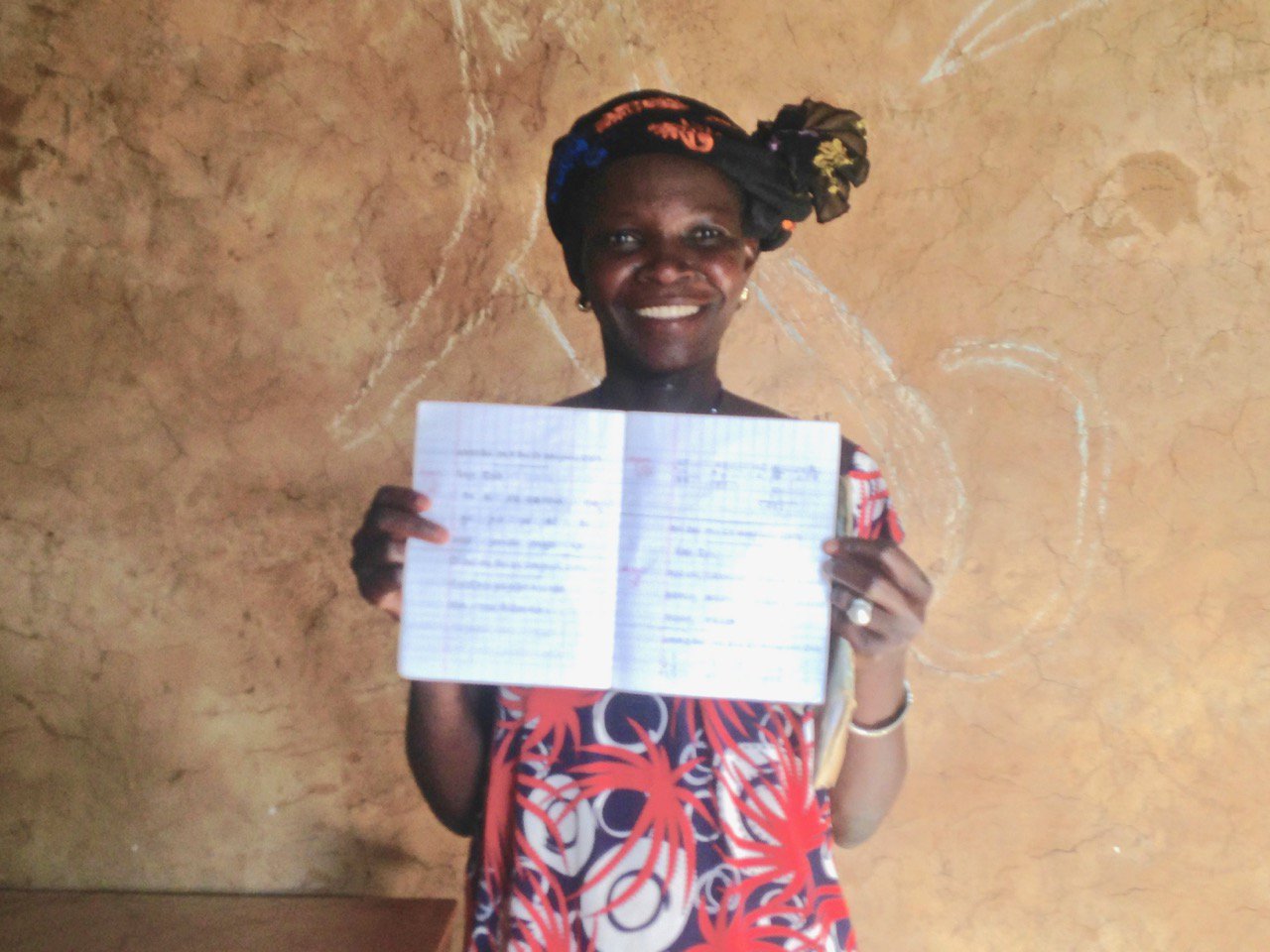 « Je suis étudiante de la classe d'alphabétisation à Kansongho et l'un des cuisiniers formés par la Fondation Tandana à cuisiner pour les groupes de bénévoles Tandana sur leurs visites au Mali. Je suis également membre du Comité exécutif de la Olouguelemo Environmental Association et membre du Comité Kansongho Cotton Bank. Grâce aux cours d'alphabétisation, je peux exercer mes responsabilités dans tous les rôles qui m'ont été confiés et je peux prendre des notes pendant les réunions et les assemblées. Maintenant, je sais comment calculer afin que je puisse estimer les quantités d'ingrédients nécessaires pour les repas que nous cuisinons pour les différents ateliers et activités Tandana, en fonction du nombre de participants. Grâce à mon travail de cuisine pour ces ateliers, je gagne l'argent dont j'ai besoin pour la crème de la peau, du savon, des vêtements pour moi et mes enfants, et des ingrédients pour les repas de notre famille. Après les cours d'alphabétisation, je peux maintenant tenir un cahier enregistrant la présence et les contributions de chaque membre de mon groupe d'épargne pour un changement, et j'aide d'autres économies pour les groupes de changement dans mon village quand ils partagent leur fonds de groupe à la fin de l'année. » – Yagouno Tembine
« Je suis étudiante de la classe d'alphabétisation à Kansongho et l'un des cuisiniers formés par la Fondation Tandana à cuisiner pour les groupes de bénévoles Tandana sur leurs visites au Mali. Je suis également membre du Comité exécutif de la Olouguelemo Environmental Association et membre du Comité Kansongho Cotton Bank. Grâce aux cours d'alphabétisation, je peux exercer mes responsabilités dans tous les rôles qui m'ont été confiés et je peux prendre des notes pendant les réunions et les assemblées. Maintenant, je sais comment calculer afin que je puisse estimer les quantités d'ingrédients nécessaires pour les repas que nous cuisinons pour les différents ateliers et activités Tandana, en fonction du nombre de participants. Grâce à mon travail de cuisine pour ces ateliers, je gagne l'argent dont j'ai besoin pour la crème de la peau, du savon, des vêtements pour moi et mes enfants, et des ingrédients pour les repas de notre famille. Après les cours d'alphabétisation, je peux maintenant tenir un cahier enregistrant la présence et les contributions de chaque membre de mon groupe d'épargne pour un changement, et j'aide d'autres économies pour les groupes de changement dans mon village quand ils partagent leur fonds de groupe à la fin de l'année. » – Yagouno Tembine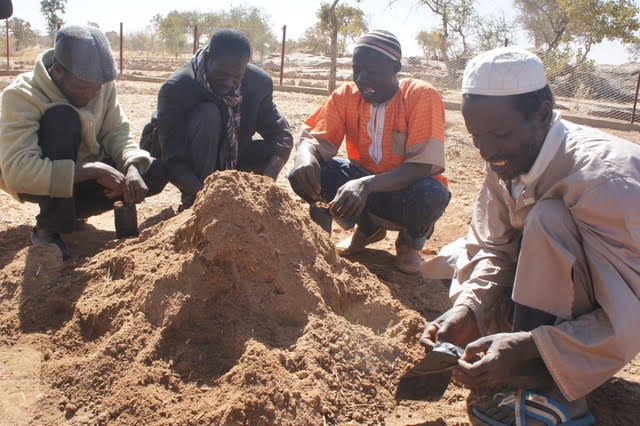
Les deux nouvelles pépinières d'Olouguelemo Environmental Association sont dans les villages de Gongo et de Sander. Récemment, les gestionnaires des pépinières ont reçu une formation sur la façon de produire de jeunes arbres. Les pépinières fourniront des arbres indigènes, médicinaux, fruitiers et riches en sols pour le reboisement dans les zones forestières protégées et pour les agriculteurs à planter dans leurs champs.
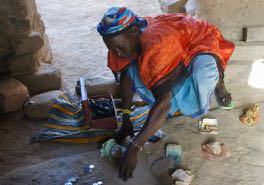
Les groupes d'épargne pour un changement de Kani ont tenu leur cérémonie annuelle de partage de fonds en février. Lors de la cérémonie, chaque membre reçoit ses économies plus les intérêts, qu'elle peut utiliser pour acheter tout ce dont elle a besoin-que ce soit des graines pour un jardin, le coton pour se transformer en tissu, vêtements, nourriture pour un événement spécial à venir, etc. À droite est une image de la cérémonie de partage de fonds.

Le village de Kansongho a élu un nouveau comité chargé de gérer la banque céréalière pour l'année à venir. Les nouveaux membres du comité ont participé à une séance de formation pour apprendre leurs rôles et ont maintenant assumé leurs responsabilités. La banque de céréales est extrêmement importante pour s'assurer que les membres de la communauté peuvent se permettre d'acheter du millet à un prix abordable tout au long de l'année et de ne pas avoir à payer un supplément lorsque le millet n'est pas en saison. Maintenir un approvisionnement suffisant dans la communauté permet à chacun de se rassurer qu'ils n'auront pas à payer un supplément plus tard dans l'année.
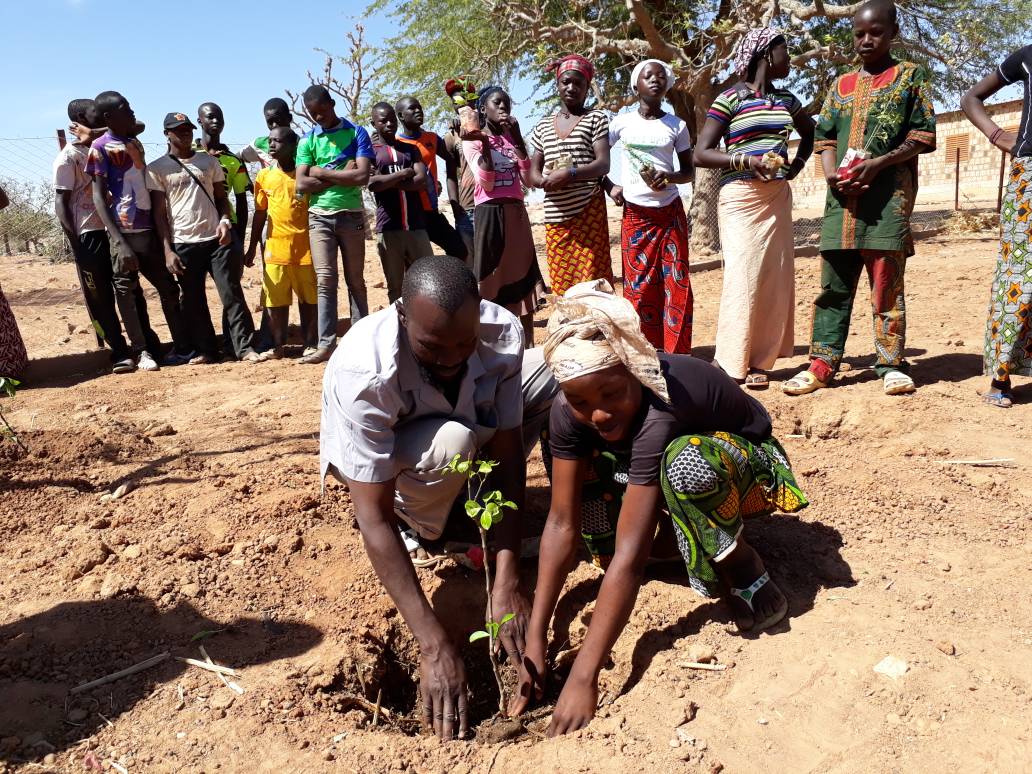
La clôture est en place pour le jardin de l'école à Kilegou. Les enseignants et les étudiants ont également reçu une formation en jardinage afin qu'ils puissent maintenir ce projet par eux-mêmes. Ce jardin aidera à soutenir un régime nutritif et agira en tant que supplément au déjeuner d'école qui est déjà fourni. La tendance du jardinage scolaire est de rattrapage et il semble que chaque fois que les fonctionnaires des écoles visiter un autre et voir une école, ils aimeraient un aussi bien. Non seulement est-ce éducatif, mais c'est un projet nutritif qui profite aux écoliers.
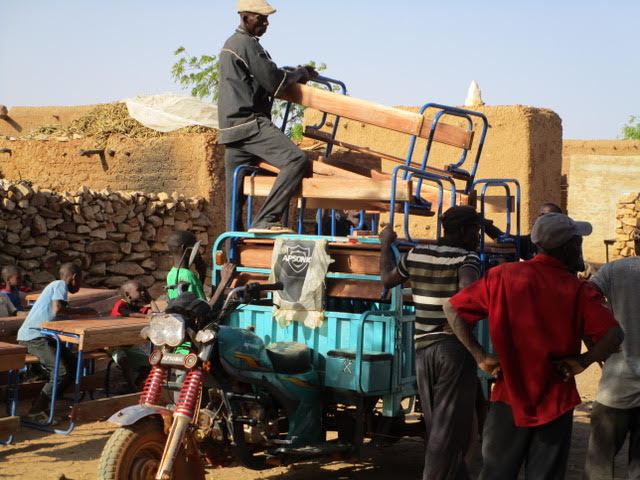
Les nouveaux meubles de l'école de Sal-Dimitri, au Mali, ont été achevés et livrés par des membres de l'atelier de menuiserie de Kansongho. Les meubles ont été livrés à l'aide de la moto-tricycle de l'atelier. À gauche se trouve une image du meuble fini chargé sur le moto-tricycle. Ce meuble s'assurera que les écoliers ont un endroit confortable pour s'asseoir et apprendre.
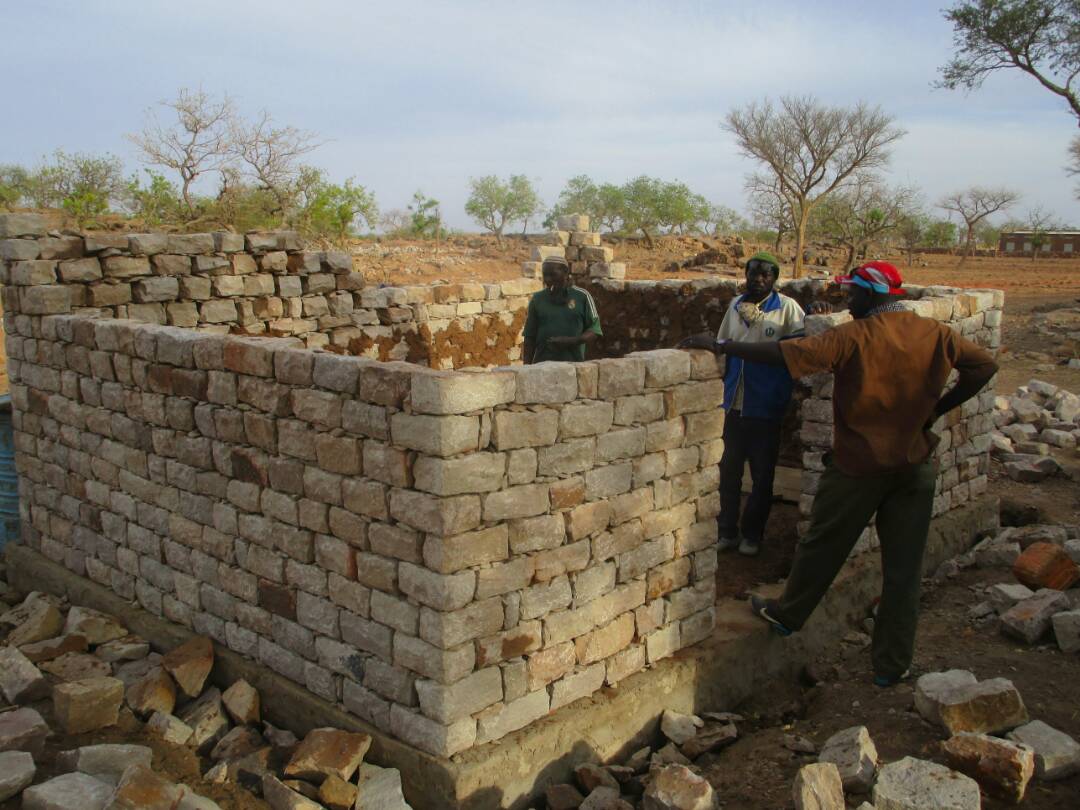
La construction de l'entrepôt pour la banque de céréales dans le village de Dologou, Mali est en train de devenir formidable. À droite est une image qui montre l'entrepôt en cours de construction. Une fois terminé, cet entrepôt contiendra le millet qui peut être acheté une fois par an en vrac lorsque les prix sont les plus bas et économisés afin que les villageois n'auront pas besoin d'acheter du millet plus tard dans l'année où les prix sont les plus élevés. Ce type de projet communautaire est un avantage pour tout le monde dans la communauté.
Équateur
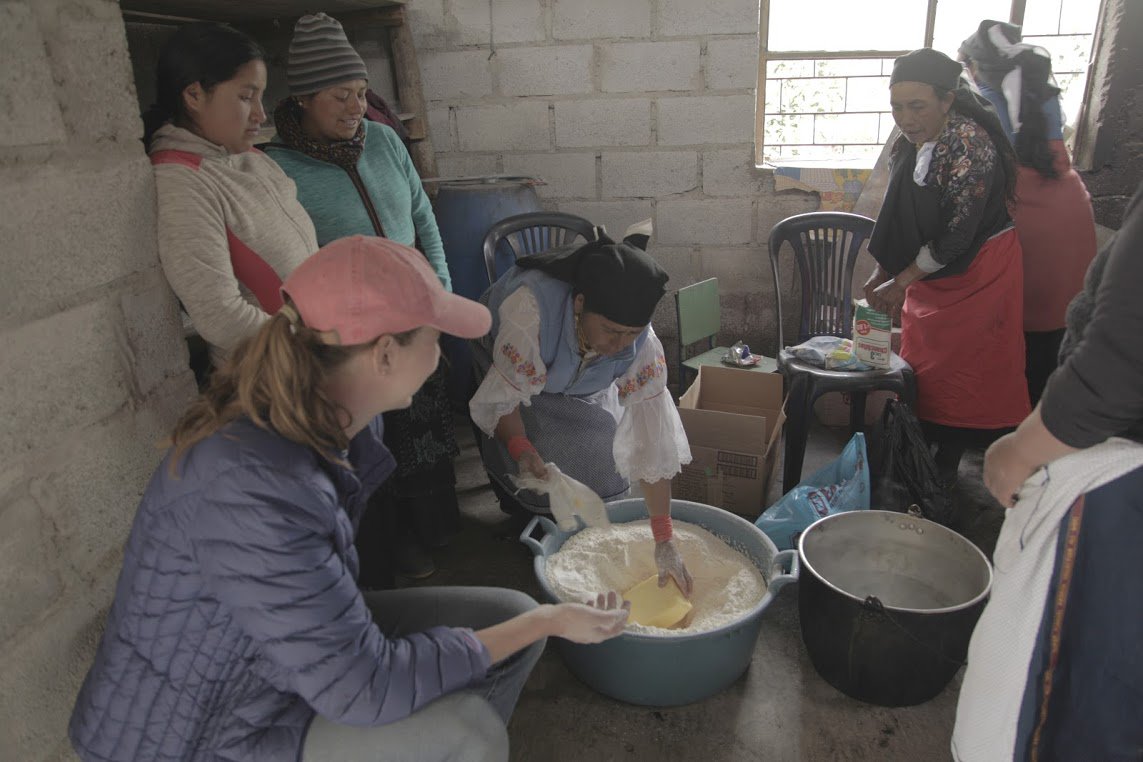
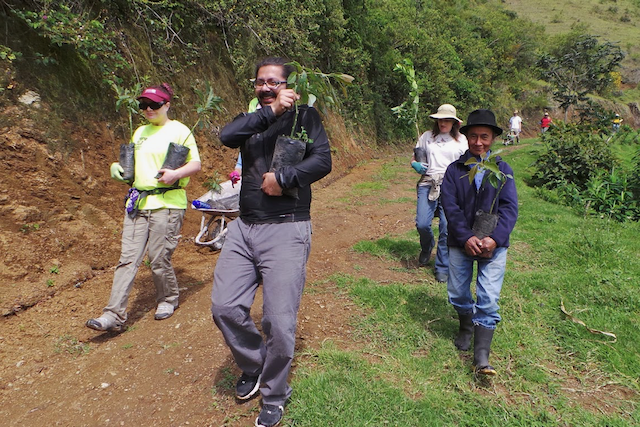
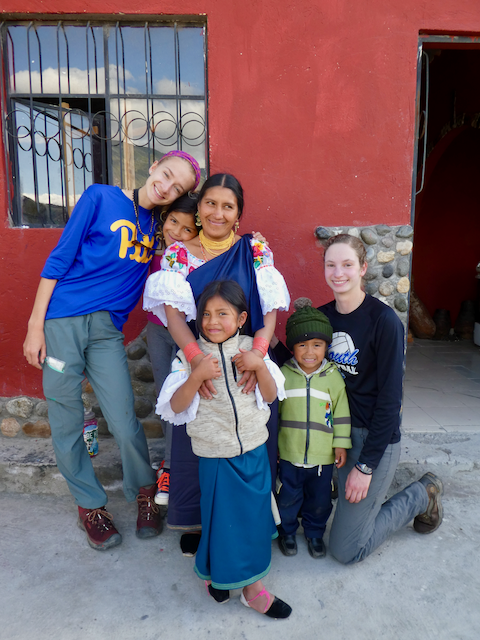
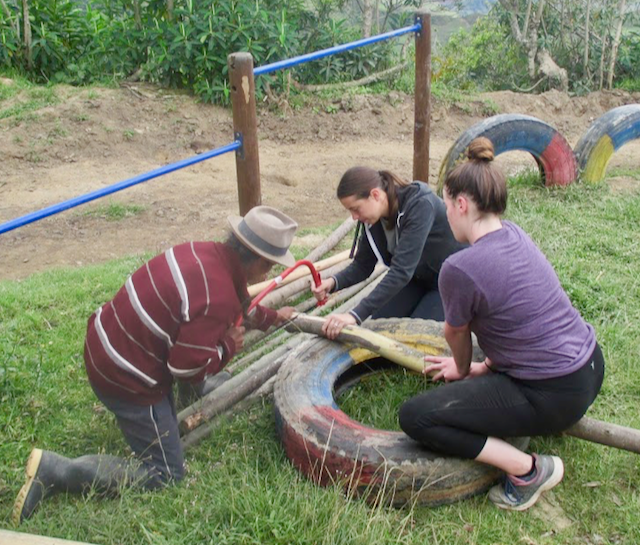
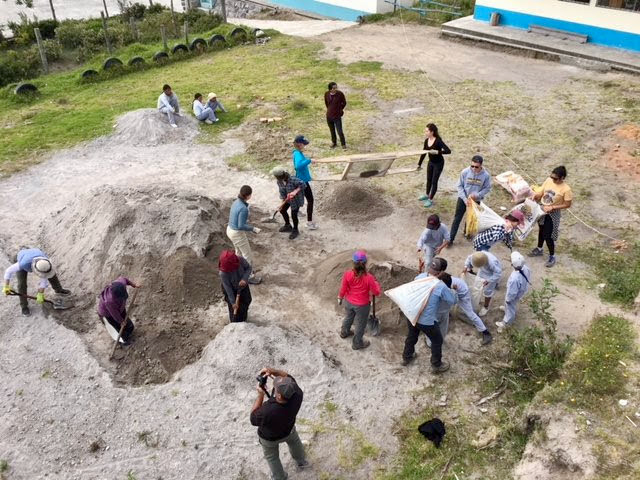
La Fondation Tandana a été ravie d'accueillir un groupe d'étudiants hors concours de l'Université George Washington en Équateur. Ils ont passé la majorité de la matinée à aider une communauté locale, Guachinguero, à améliorer un bâtiment polyvalent situé à côté de leur terrain de foot. Ce bâtiment sert de plaque tournante pour la communauté, en particulier dans le mois de juin, quand ils accueillent une grande compétition de foot multi-communautaire. Pendant les deux premiers jours, le groupe a aidé à collecter et ensuite tamiser le sable afin de mélanger le béton pour le bâtiment. Pendant l'après-midi, ils ont participé à un certain nombre d'activités culturelles, y compris la fabrication du pain. Guachinguero est une communauté connue pour son artisanat de produits artisanaux fabriqués à la main et plusieurs membres de la communauté a enseigné au groupe comment faire une gamme d'artisanat, y compris les bracelets et les petites casquettes. D'autres activités ont inclus la randonnée autour d'un lac de cratère (Cuicocha) et aussi la randonnée à une cascade locale (Taxopamba) pour réfléchir sur notre semaine passée ensemble. Dans l'ensemble, la dynamique et l'énergie merveilleusement positives de ce groupe pour apprendre et grandir en tant que personnes ont aidé à faciliter une semaine très réussie dans les deux reliant avec des humains de différentes parties du monde et appréciant et embrassant des occasions spéciales.
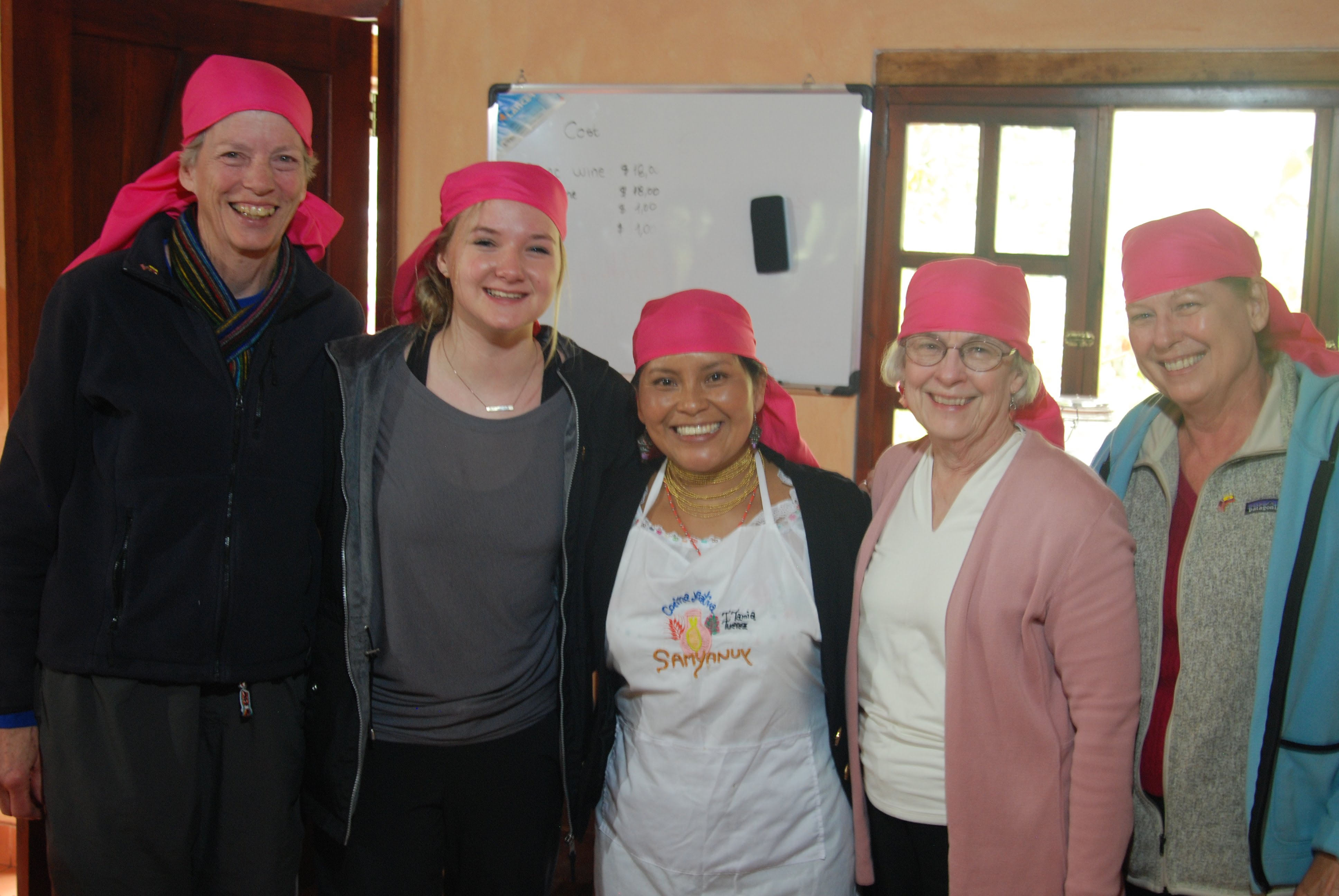
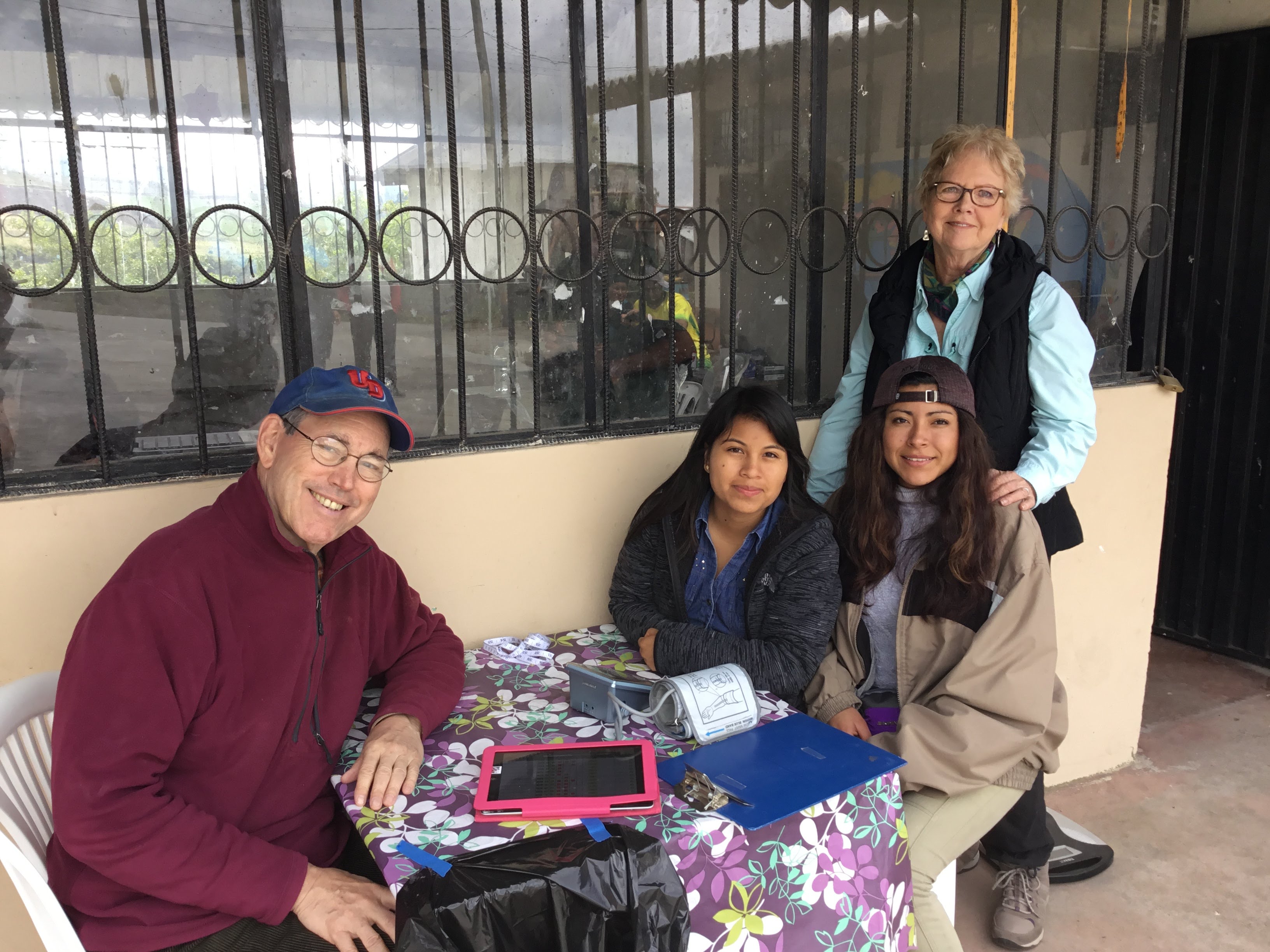
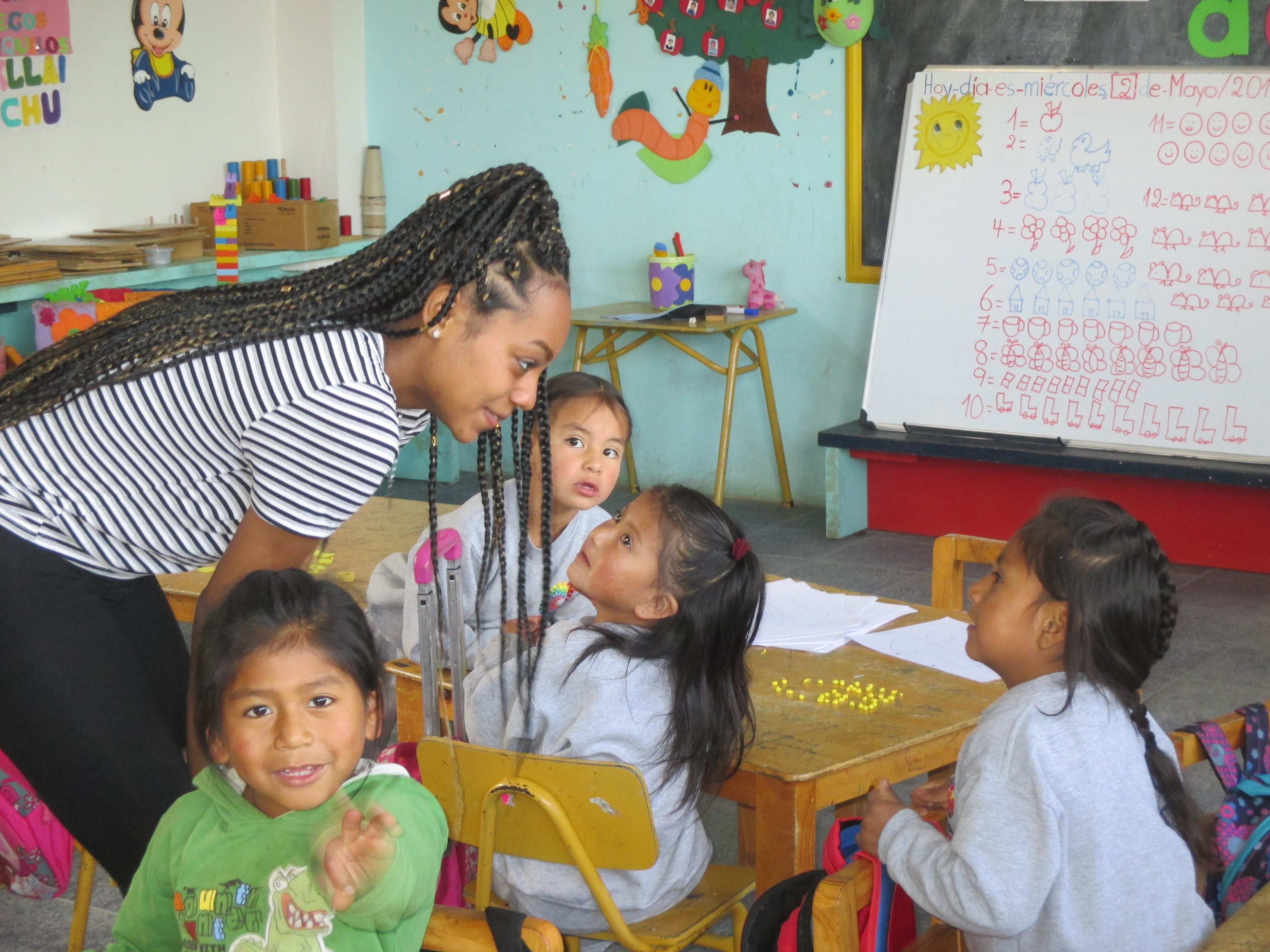
Tandana a été rejoint par un groupe de 13 personnes de l'Université de Cincinnati. Thématiquement, ce groupe était axé sur l'éducation, et nous avons donc participé à un certain nombre d'activités et de projets axés sur l'éducation. Les étudiants de l'UC ont été séparés en trois groupes distincts qui avaient déjà préparé le curriculum sur un certain nombre de sujets à présenter à plusieurs écoles locales différentes. En arrivant dans les écoles avec lesquelles nous collaborions, les élèves de l'UC ont observé la classe pour comprendre la dynamique des salles de classe dans ce domaine. Après avoir observé, chaque groupe a présenté ses leçons sur la météo, les sports, et la méthode scientifique, respectivement. Les étudiants de l'Équateur et de Cincinnati ont apprécié le défi des barrières linguistiques et les points communs agréables de communication non verbale qui doivent être trouvées afin de transmettre avec succès l'information. Les étudiants de l'UC ont également participé à un certain nombre d'activités culturelles, y compris des leçons Kichwa d'un éducateur de langue Kichwa local et une cérémonie de dîner « pachamanka » dans laquelle un aliment est cuit au sommet des roches volcaniques chaudes placées dans un grand trou dans le sol. Des défis ont été rencontrés, des leçons ont été apprises et des esprits ouverts ont été remplis d'information aidant à élargir les perspectives et les perceptions du monde et de ceux qui l'habitent.
2017
Ecuador
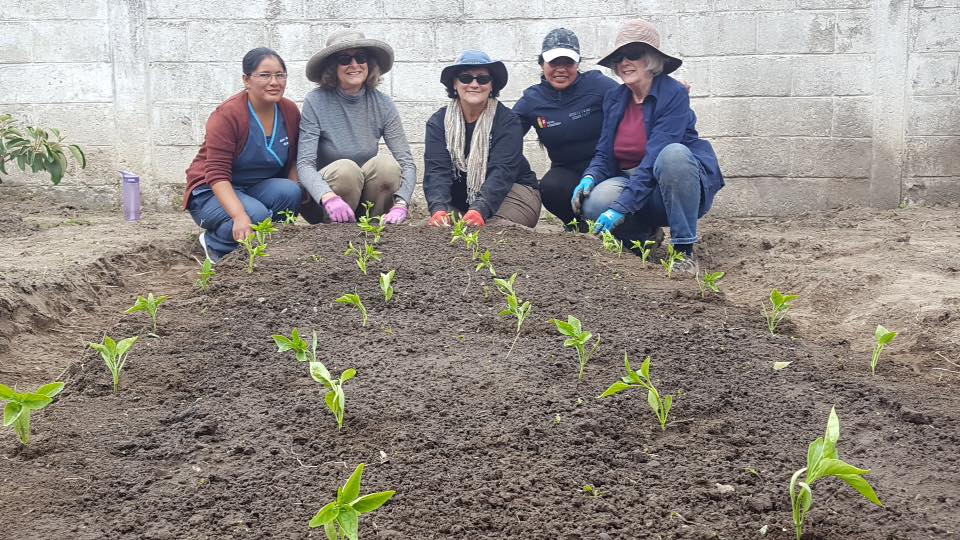
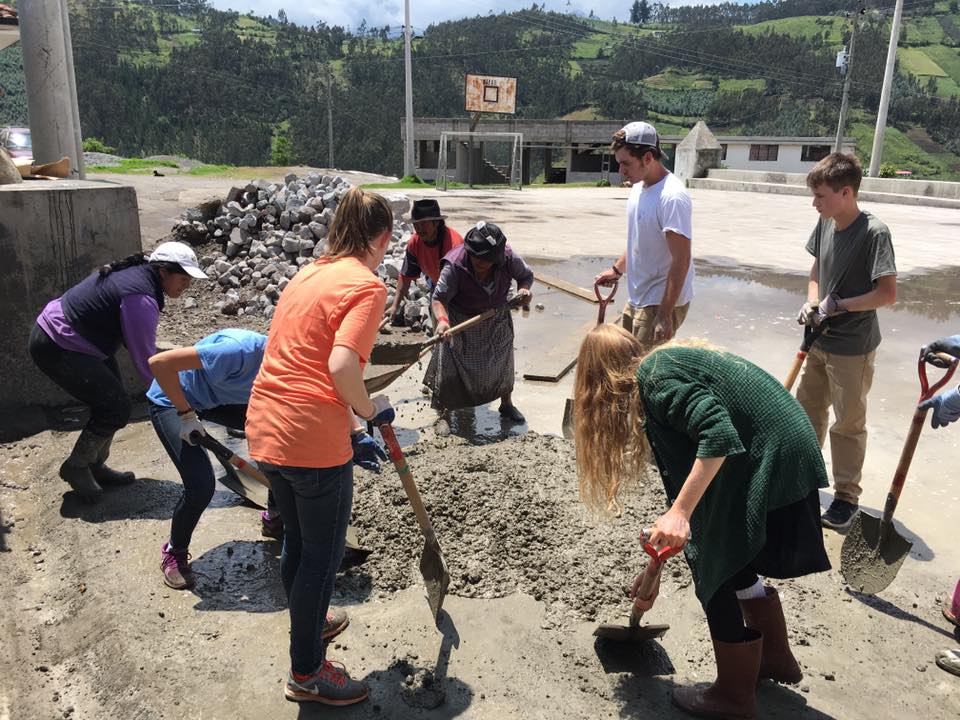
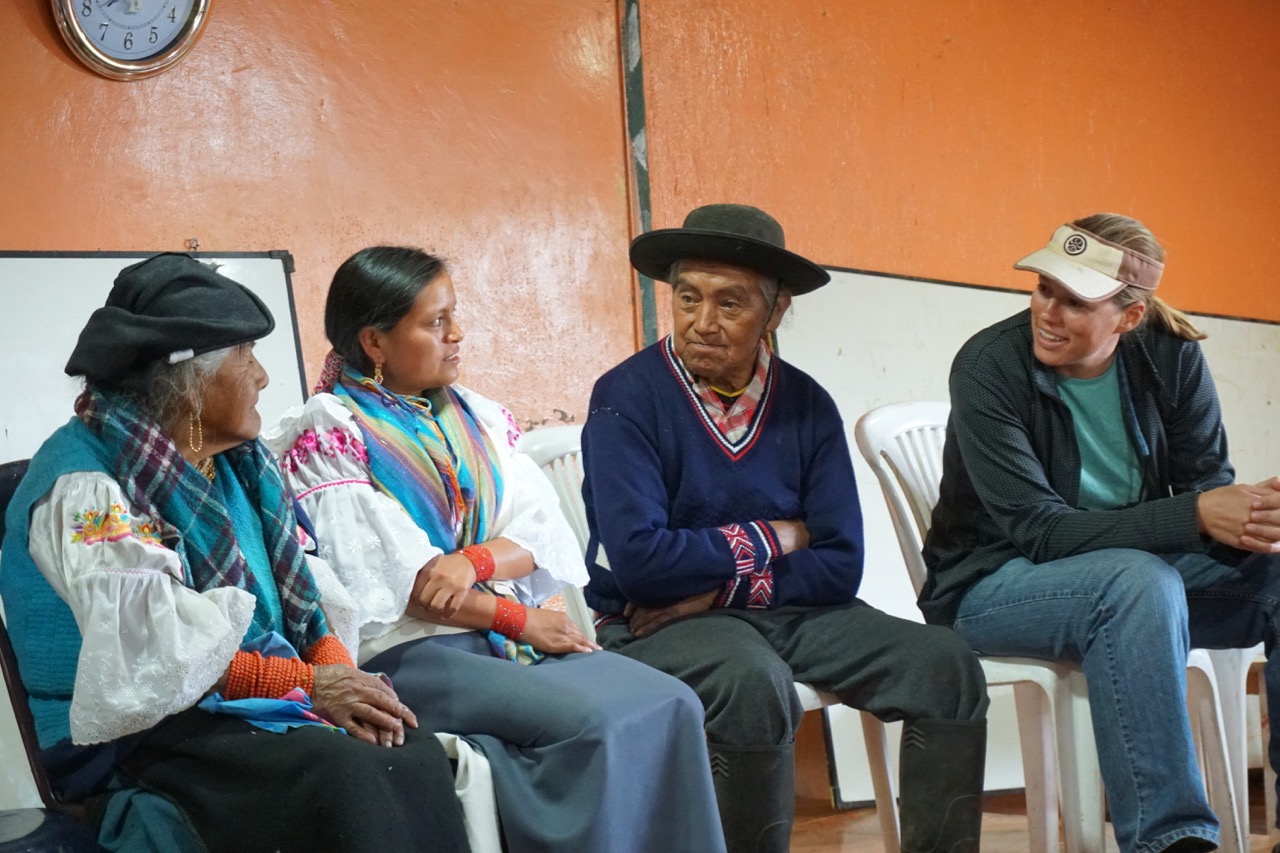
For one week of their semester-long trek through the Andes Mountains, 14 students and 4 teachers from The Traveling School stayed in the rural Ecuadorian community of Agualongo for a cultural immersion experience organized for them by Tandana. The students stayed with host families in Agualongo in early March. The immersion experience gave them opportunities to work in the community, learn about the community's history and spend time with their host families.
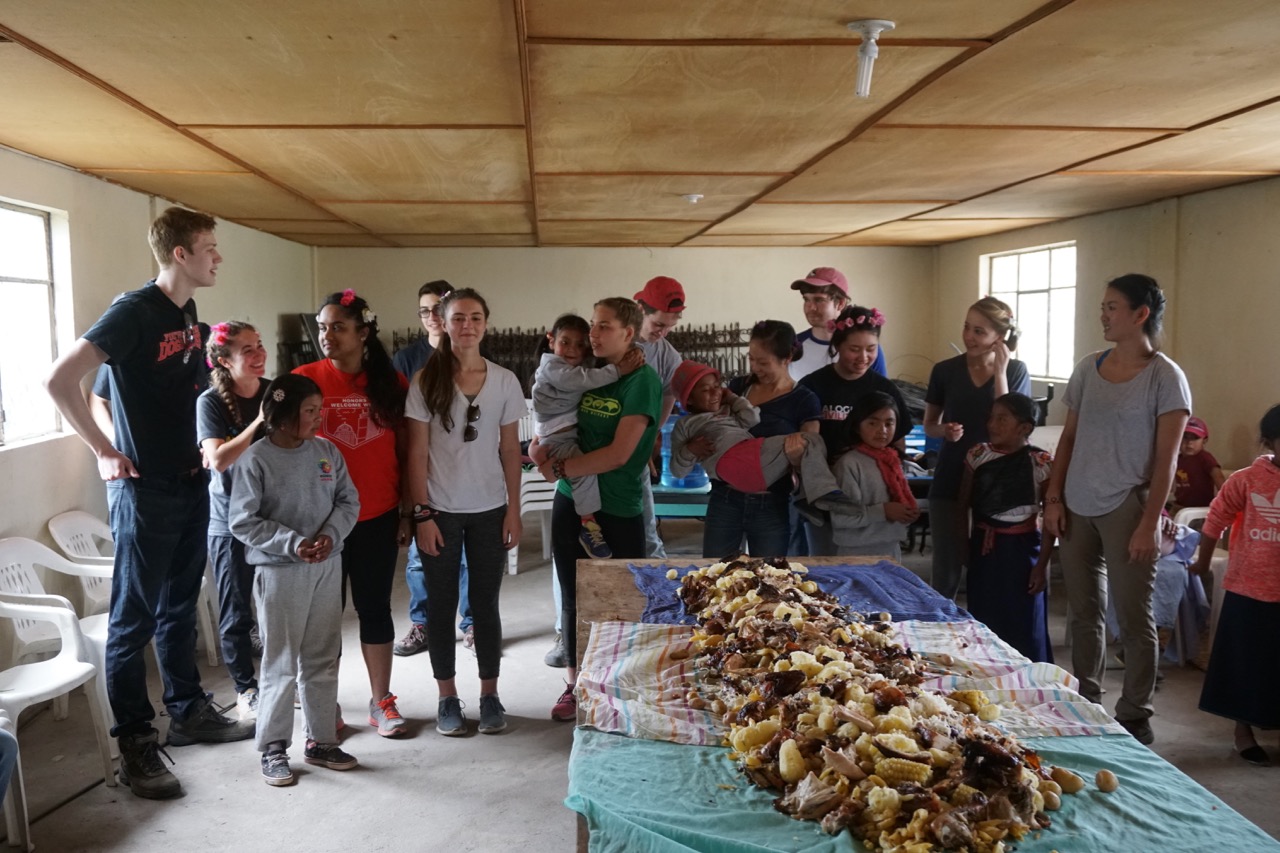
As part of an Alternative Spring Break Program, 13 students and 1 university rep from Northeastern University spent 6 days participating in a group service project organized for them by Tandana. From March 4th-10th, the students worked with community members in Guachinguero to help build the walls of a new multi-purpose community center. Most of the building's exterior walls are up as well as a few interior walls. Building the walls involved sifting sand, mixing cement, placing blocks and filling in the empty spaces between the blocks with cement.
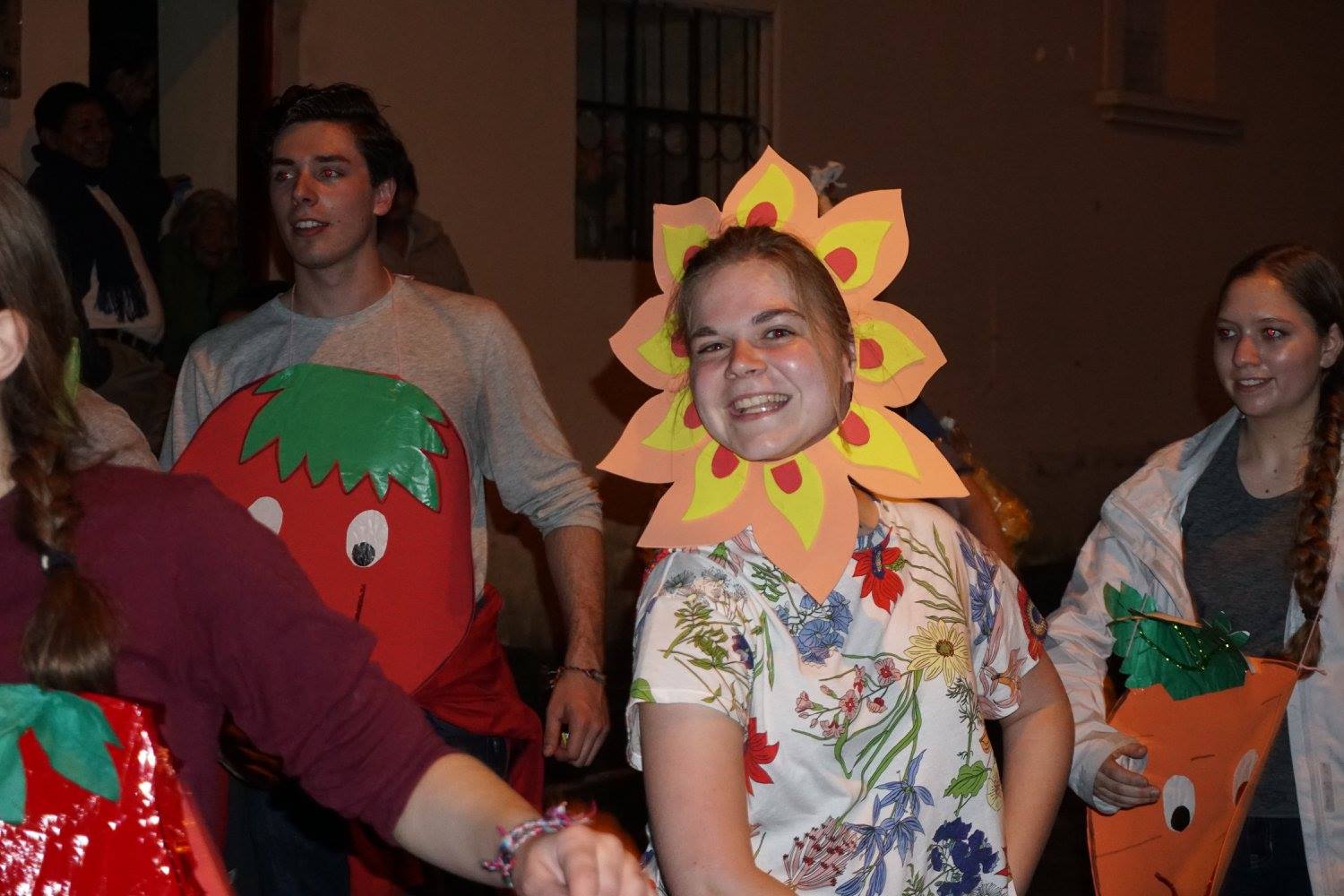
14 students and university reps from George Washington University joined the community of Guachinguero building a multipurpose center. They spent the week sifting sand, mixing cement, and helping finish off the first floor. They also were able to spend time in the classrooms doing activities in both English and Spanish. They learned about local culture at the Otavalango museum, made dreamcatchers in a community home, learned to dance salsa and took part in a cooking class. They topped of their week celebrating the day of San Jose, dressing up as vegetables and fruits and dancing in the pregón.
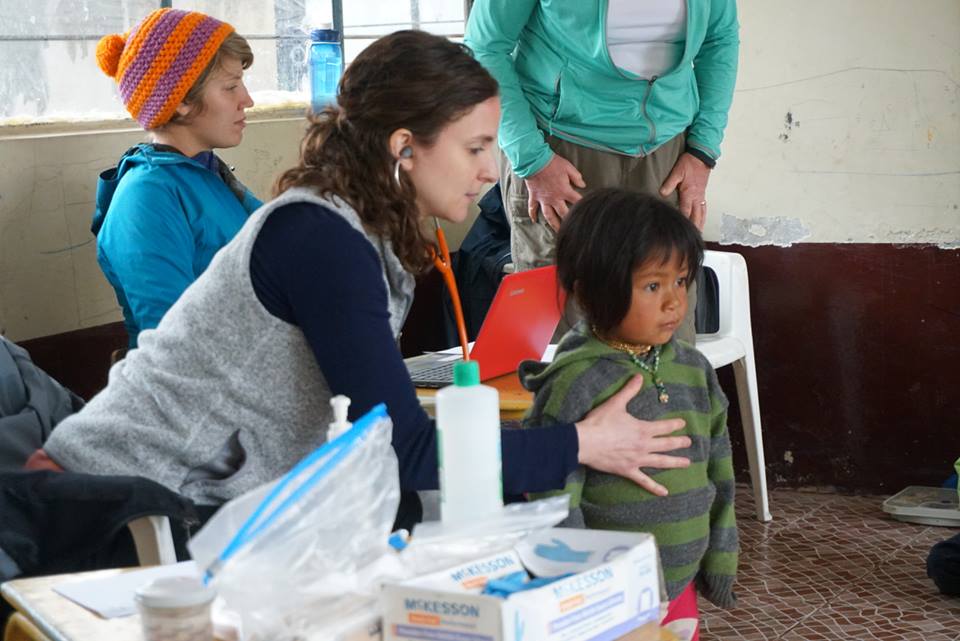
From March 25th to April 8th, a team of 25 volunteers worked alongside Ecuadorian medical professionals providing medical care to 875 children and adult community members in 10 different rural communities surrounding the city of Otavalo. It was a busy two weeks for the team. Every morning, they visited a different community to set up a health clinic. The volunteers treated 405 medical patients and 432 dental patients. They conducted 196 vision screenings, and 279 children received a pediatric checkup.
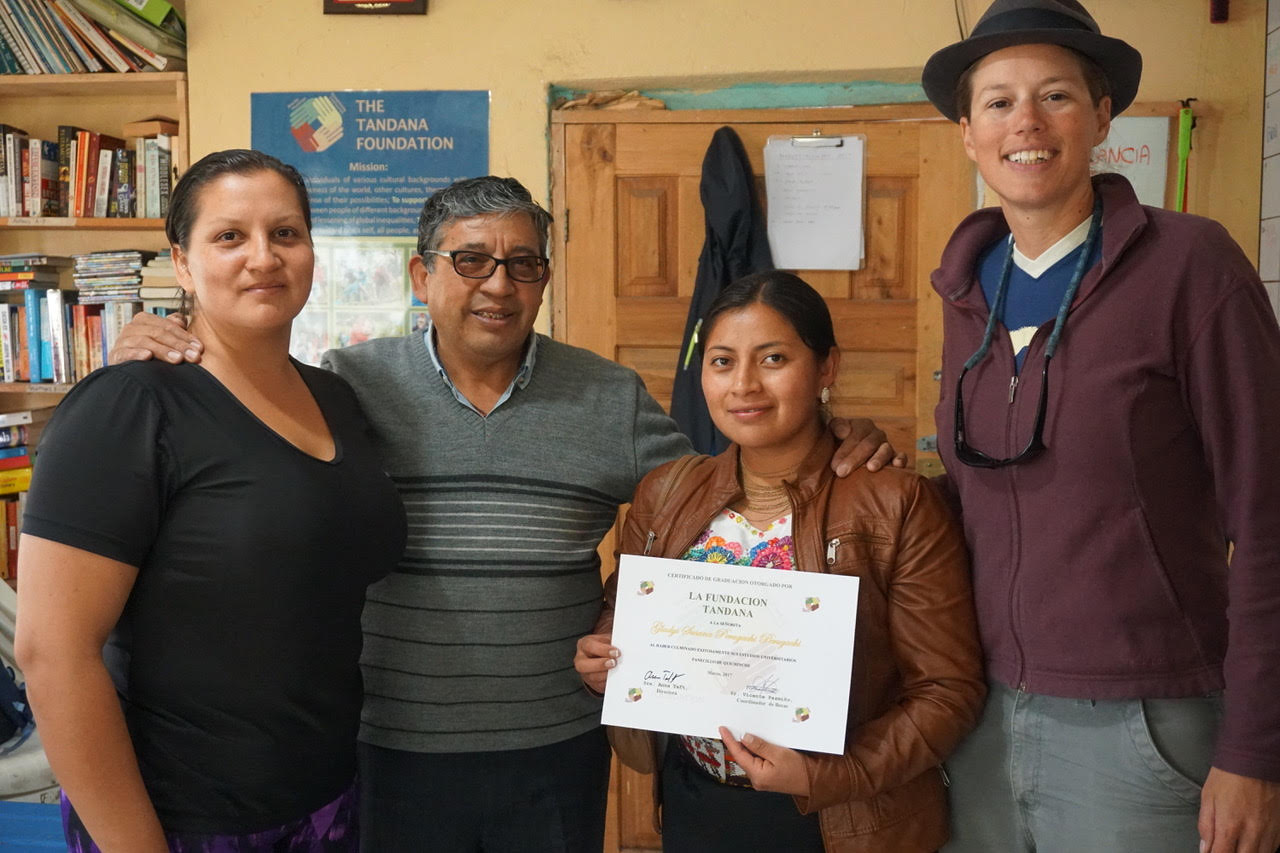
Tandana's Scholarship Program in Ecuador –Tandana scholarship student Gladys Perugachi graduated from University and has officially become a lawyer. She is currently practicing law in Otavalo. Gladys specializes in land title cases. From left to right: Vero Pazmiño, Tandana's Scholarship coordinator; Don Vicente Pazmiño, Tandana's Logistics Manager; Gladys Perugachi, holding the certificate; and Anna Taft, Tandana's Founding Director.
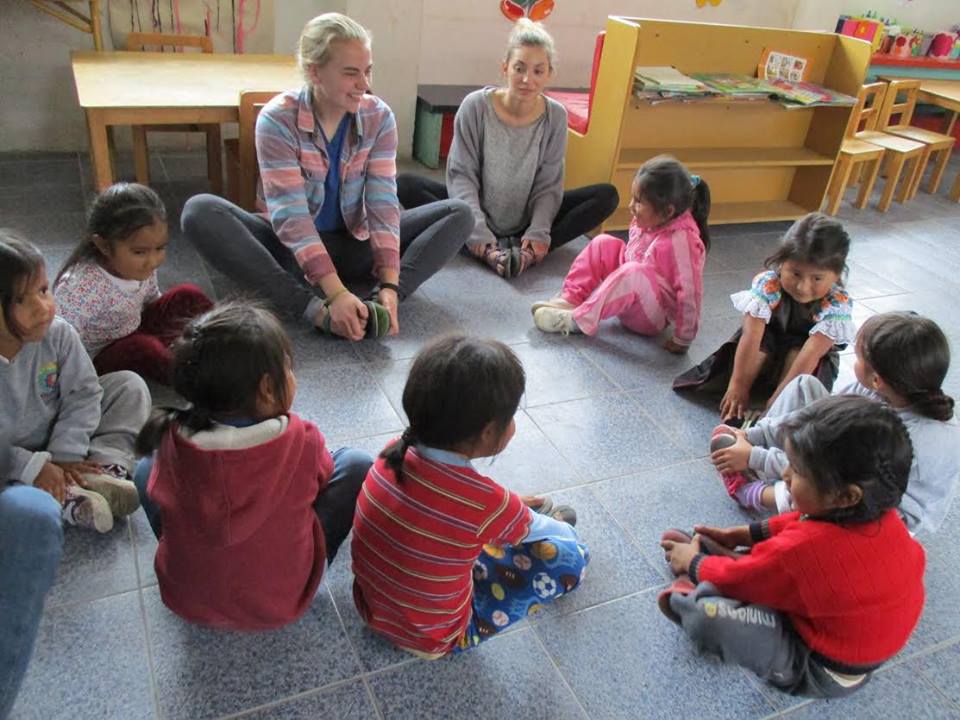
11 students and 2 faculty members from University of Cincinnati spent a week in different schools practicing lessons and observing the Ecuadorian education system. They taught all ages, from kindergarten to high school, about, physical & mental health, hygiene, and dreams & future planning. They also spent some time in La Joya, a school for children with disabilities, playing with the kids and lending a hand to the teachers. In the afternoons, they participated in cultural activities such as the Kichwa museum, cooking school, learning about traditional dress, making bracelets, and hiking to an ancient Incan Grotto.
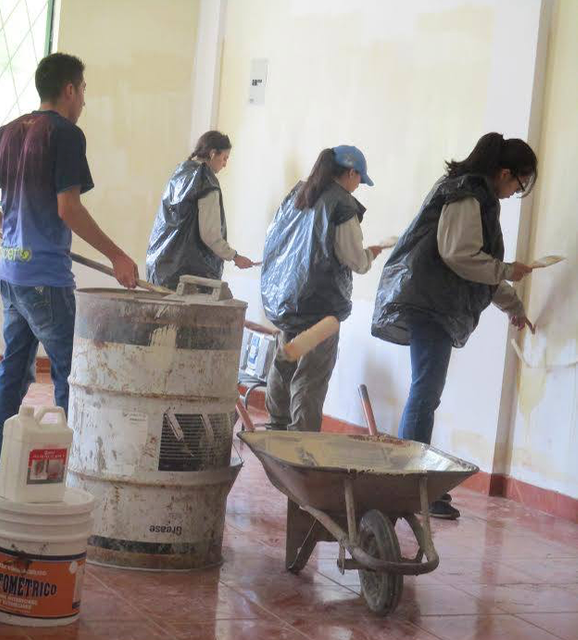
15 REACH students joined us in Ecuador for 19 days. Students stayed with families in the community of Agualongo and worked together to build a retention wall for a water tank, repair the community’s water tubing, paint and construct a floor in the new community center, and carve out a new and safer footpath to the nearest bus stop. REACH also provided a generous donation for the community’s dream of improving the communal sports field. In addition, they also enjoyed the adventures of waterfall and volcano crater hikes, cooking classes of traditional kichwa cuisine, traditional weaving and salsa dancing classes, and a bonfire party on July 4th, where the students were able to exchange their own culture with the entire community of Agualongo.
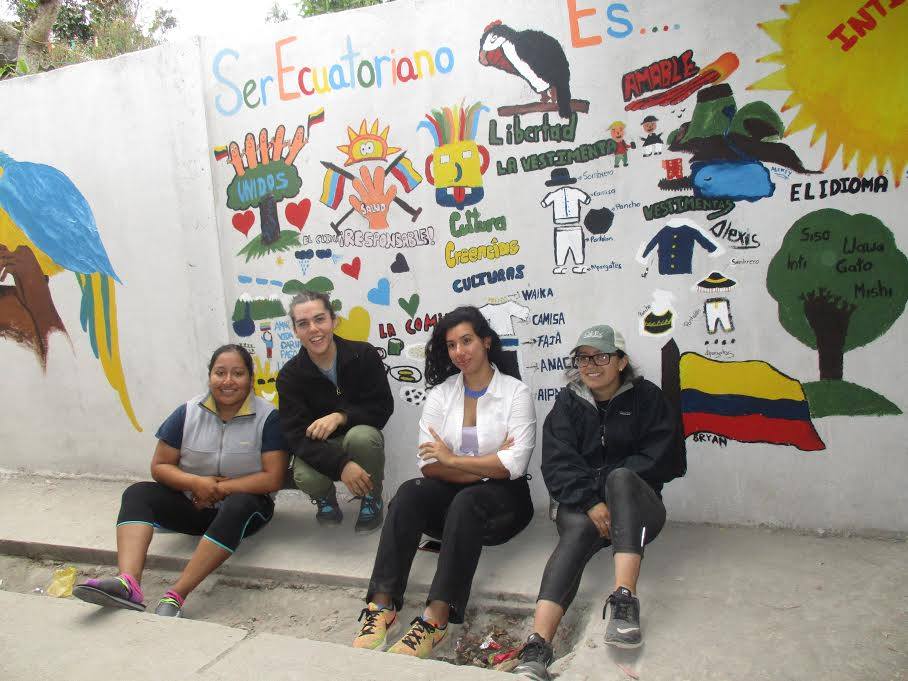
16 students from the REACH program spent two weeks in the community of Agualongo, in the second installment of this REACH cohort’s cumulative experience in Ecuador with Tandana. The group spent a week teaching a variety of interactive classes in Tandana’s summer school, including food science, music, painting, and P.E. The following week, they focused on projects in Agualongo, including finishing a drainage ditch to secure the side of the road in the rainy season. The students learned about Agualongo’s history and continued close ties with Hacienda Perugachi, and participated in a variety of immersive activities with the community.
Eight Lakeside School students and two program leaders spent three weeks working and experiencing daily life in the rural community of Tangali. The students worked side-by-side with the community members to start building a community kitchen. They moved materials, mixed cement and sifted sand. The students also placed bricks to build the kitchen's walls, and they helped put up the support for the ceiling. The students also organized a five-day summer camp for about 35 children, ranging in age from 4 to 17 years old. They students prepared science, English, art and sports lessons, as well as other games and activities.
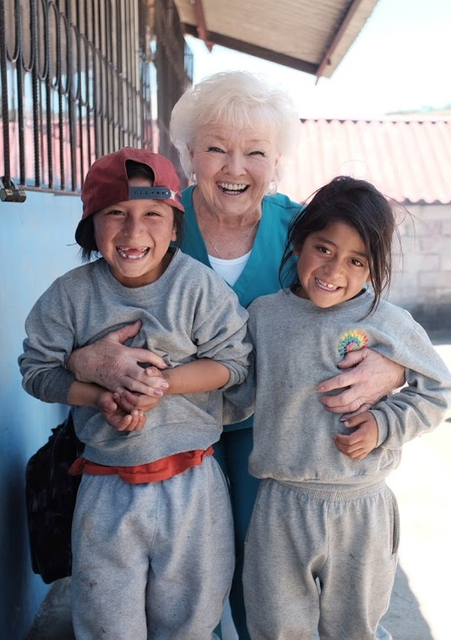
Tandana teamed up with local and international medical volunteers from all backgrounds to provide a week's worth of mobile health clinics. They visited 5 different communities over the course of the week, and were able to support nearly 350 individuals with free medical and dental care. What further marks Tandana, however, is the foundation's commitment to follow up with patients who cannot receive all that they need in the short time of a clinic; our professional medical providers referred many patients to continue in our Patient Follow-Up Program, through which Tandana staff will help them navigate the public health system and obtain their necessary treatment. Participants enjoyed learning from all the richness that the local culture and people have to offer. They took part in activities such as local museums, visiting master weavers, hearing local legends at a volcano crater lake, and cooking a meal at a family-operated cooking school.
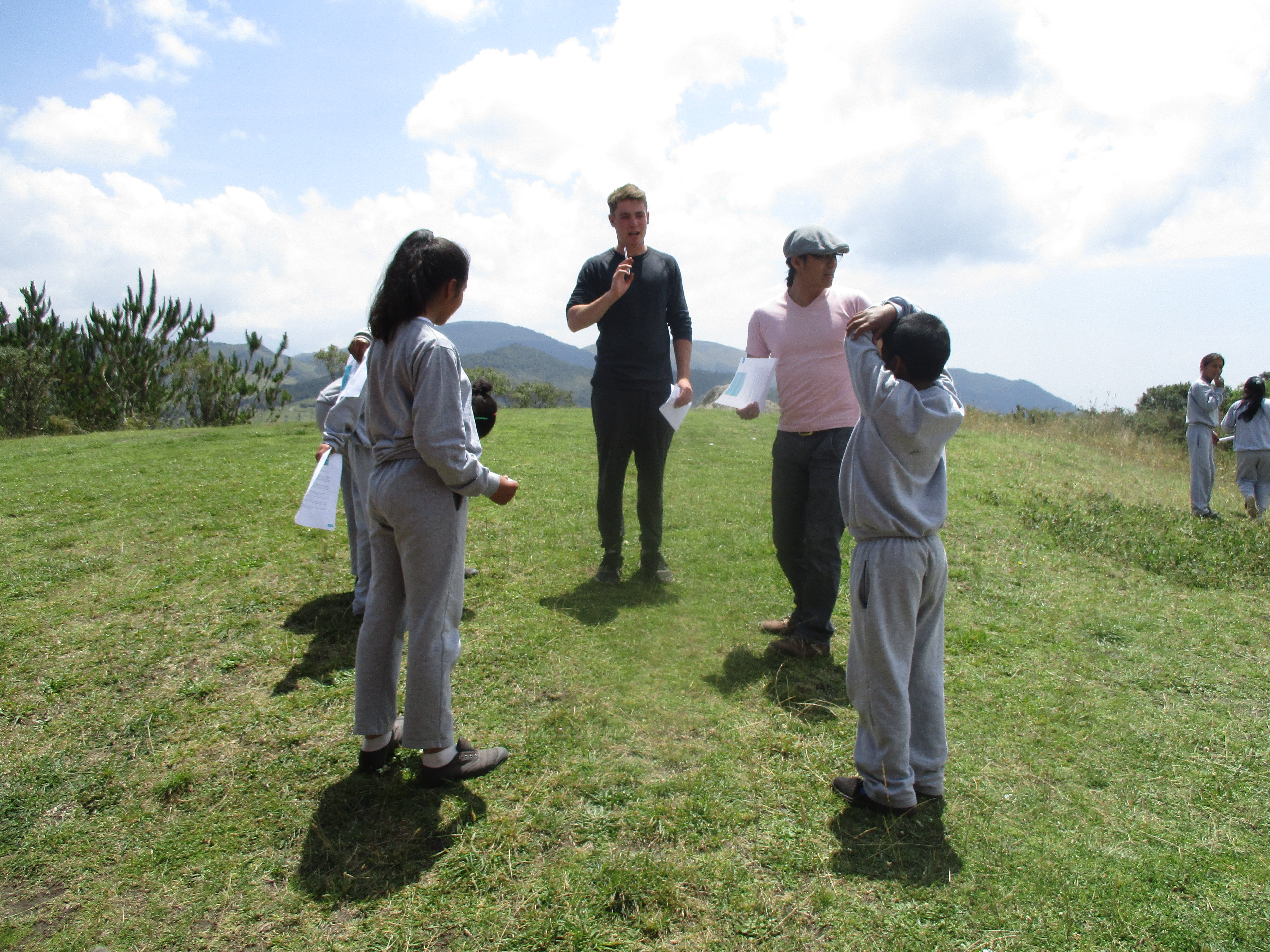
Mali
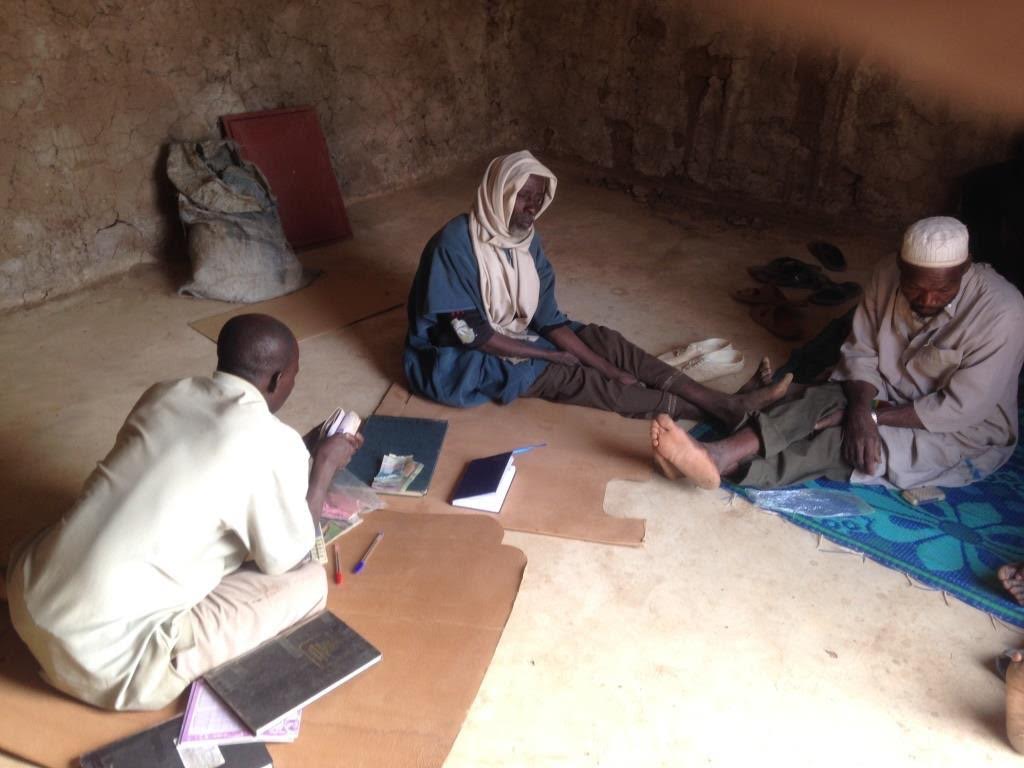
Grain Bank in Sal-Dimi – During the annual meeting to evaluate grain bank operation, the village assembly congratulated the committee on their great management of the bank. The villagers asked the committee to continue selling the remaining 6 sacks of rice that they have in stock and to purchase 2 tons of millet to sell throughout the coming year. To the left is a picture taken at the evaluation meeting.
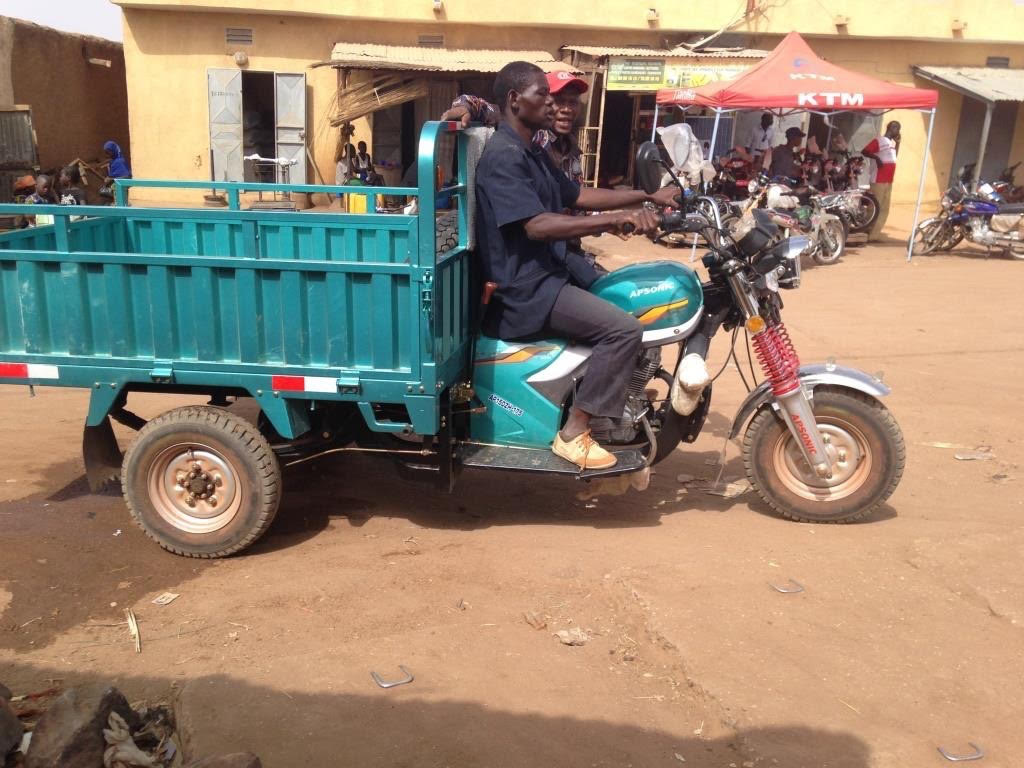
Carpentry Workshop in Kansongho - The moto-tricycle purchased for the carpentry workshop is now being used. Two drivers received training on how to operate the moto-tricycle and are now using it to transport purchased materials to the workshop. To the right is a picture of the moto-tricycle.
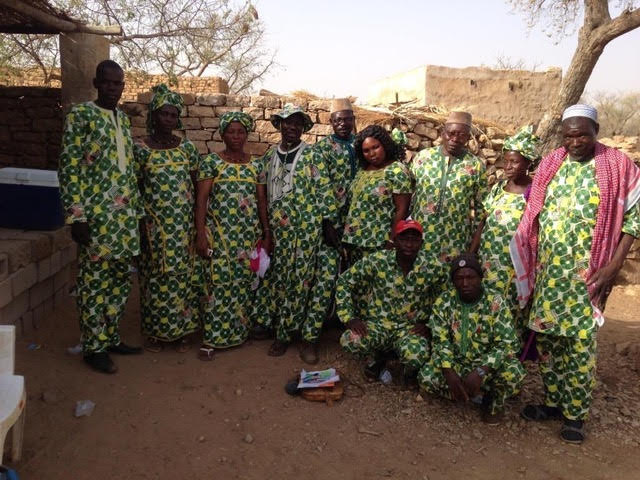
Community Meeting Room in Kansongho, Mali - A great inaugural ceremony was held for the building on April 8th. The members of the Ologuelemo Environmental Association, the villagers, and the local authorities are thrilled to have the building in use. To the left is a picture from the inaugural ceremony.
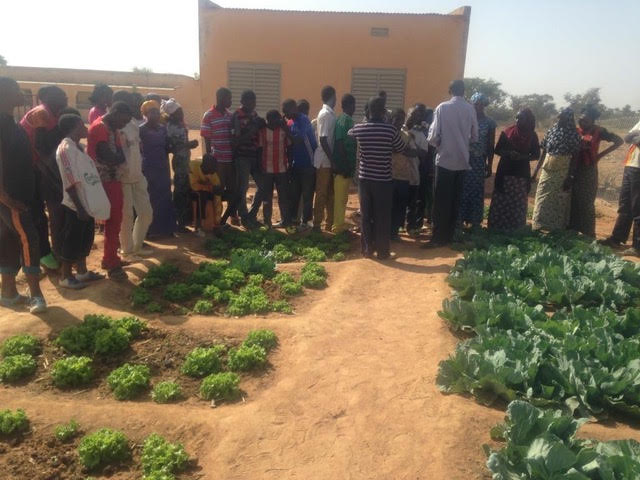
School Garden in De, Mali -There was another bountiful harvest from the garden. The students shared some of the vegetables they harvested with the school and sold cucumbers, lettuce, and cabbage for around $36. They used $27 of this money to buy chalk and notebooks.
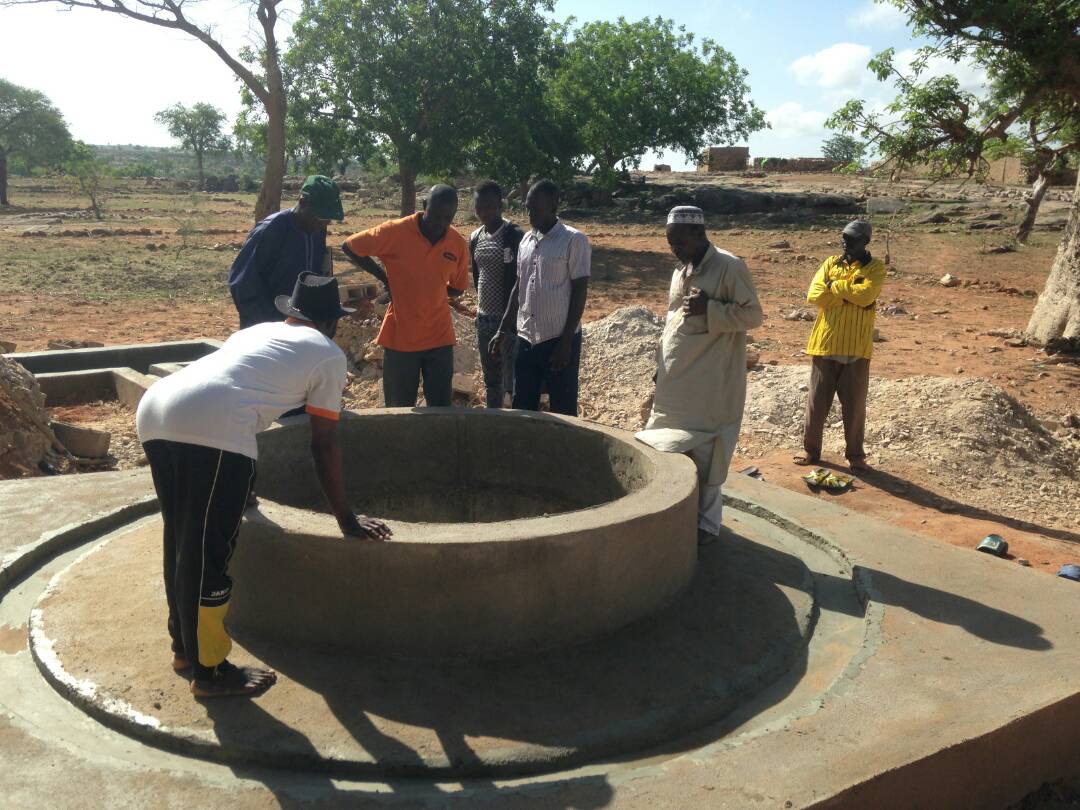
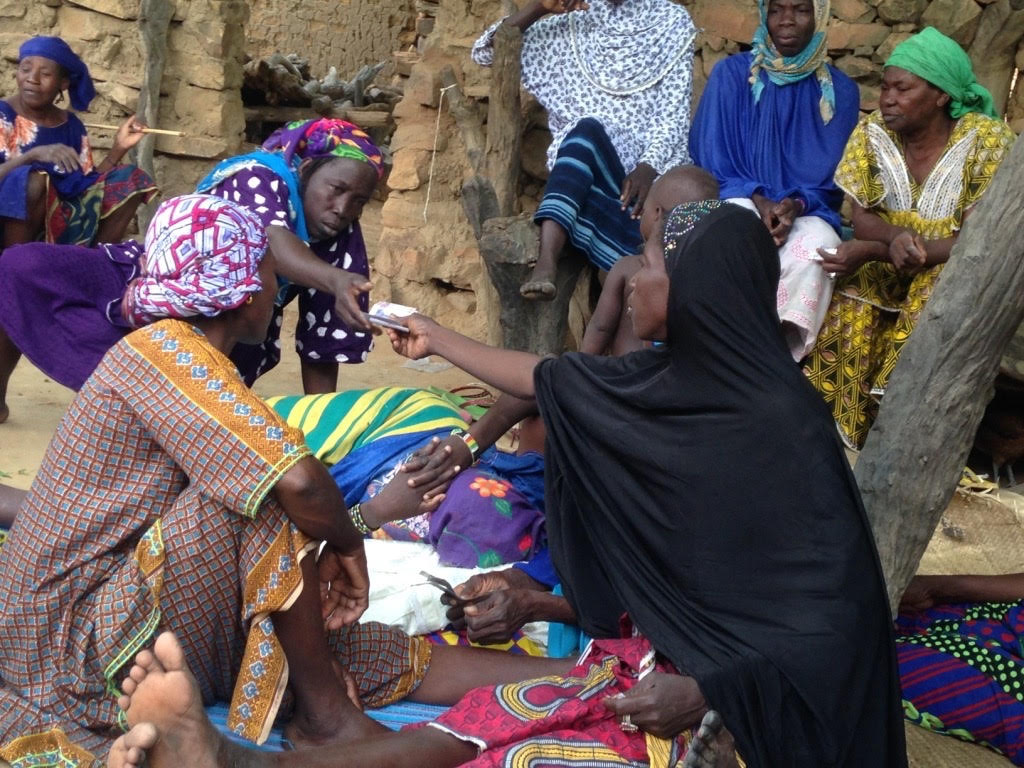
Savings for Change Program – Two savings groups in the village of Yarou Plateau held their annual fund-sharing ceremony. They divided the group fund among all the members, which will allow each member to buy her bean, sesame, and peanut seeds for this rainy season. Then they started saving again in their weekly meetings. Their combined funds were over $1600, and each member received approximately $30 as her share. Now in December women in 15 more villages have asked Tandana to bring the program to their villages.

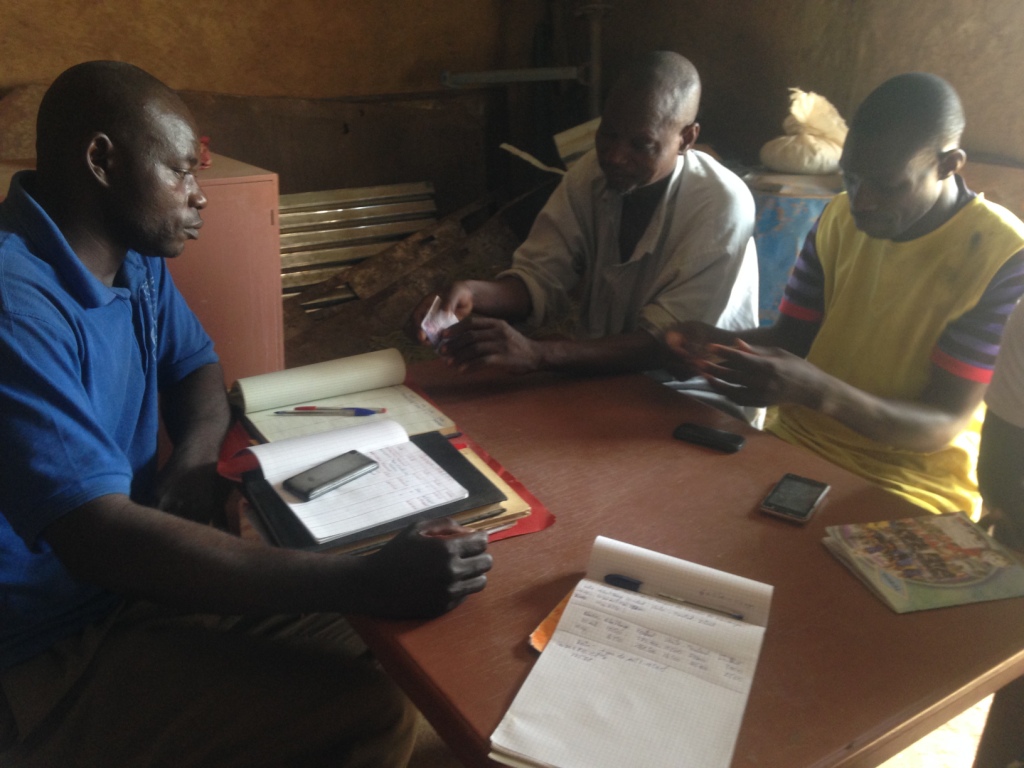
Grain bank in Kansongho, Mali – The bank is operating well and is selling millet and rice to villagers at a reasonable price. The bank currently has 11 sacks of millet and 20 sacks of rice in stock. The bank's management committee recently met.
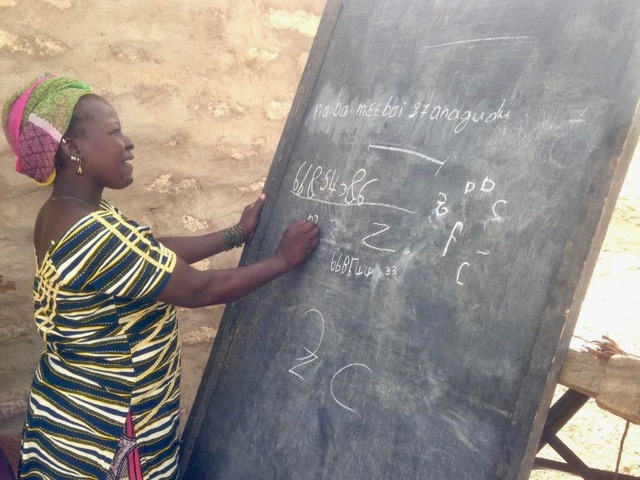
Literacy Program in Mali - All 30 villages have completed the continuation course. Out of 837 students, 687 achieved basic literacy. Our partner organization AFTCD/PD has translated literacy and governance booklets into Tommo So to be used in the workshops that will be the next phase of the literacy program.
Kansongho Cotton Bank - The Kansongho cotton bank is doing well. The sales and purchases are proceeding as intended and thanks to this project all of the women of Kansongho have access to cotton. They are also happy about the completion of the meeting room, because it has freed up their cotton bank building from being used as a meeting room for other village events.
Kansongho Orchard and Garden - The Kansongho orchard and garden are doing well. The committee made about $100 by selling pomegranates, lemons, and other fruits from the orchard.
Ondougou Township Indigo Bank - The indigo bank is doing well. The committee is managing sales and purchases very well, maintaining their fund successfully. The only challenge is that the 100% organically-dyed cloths are not selling well, and for that reason, most women continue to use mixed organic and chemical dyeing techniques.
Sal-Dimi Cotton Bank - The Sal-Dimi cotton bank is doing well. As in Kansongho, the committee is managing it well, and all of the women have access to cotton to work with.
Yarou Plateau Cotton Bank - The cotton bank in Yarou Plateau, like the others, is a success. The women of Yarou Plateau were able to use income from the cotton sales to buy materials for a collective ceremony.
School Garden in Yarou Plateau - The harvest from the garden was great this year. In addition to using some of the vegetables for the school and sharing some of the vegetables with the local authorities, the students sold potatoes, onions, lettuce, tomatoes, peppers, and jujubes from the garden for about $26. They used about $19 of this money to buy notebooks, pens, pencils, and pencil sharpeners for all of the students. They are very proud of buying their own school supplies without having to ask their parents for help. Also, Ele, the teacher Tandana is supporting at the school is doing well. Tandana pays part of Ele's salary and the village pays the other part. Since the village knows Tandana’s payment to him depends on their contribution arriving, the village now pays him their part on time. Prior to this, the village did not pay him when they were supposed to. Now, the school has 3 teachers. Teachers always try to get transferred away from Yarou Plateau to other places because it is so remote. Ele is local, so he will provide more stability. The regular teachers have been going on strike because the government does not pay them regularly. Since he is paid by the village and Tandana, Ele keeps working during the strikes and teaches all three classrooms of students in 1st through 6th grades. He also takes care of the school garden and organizes the watering groups.
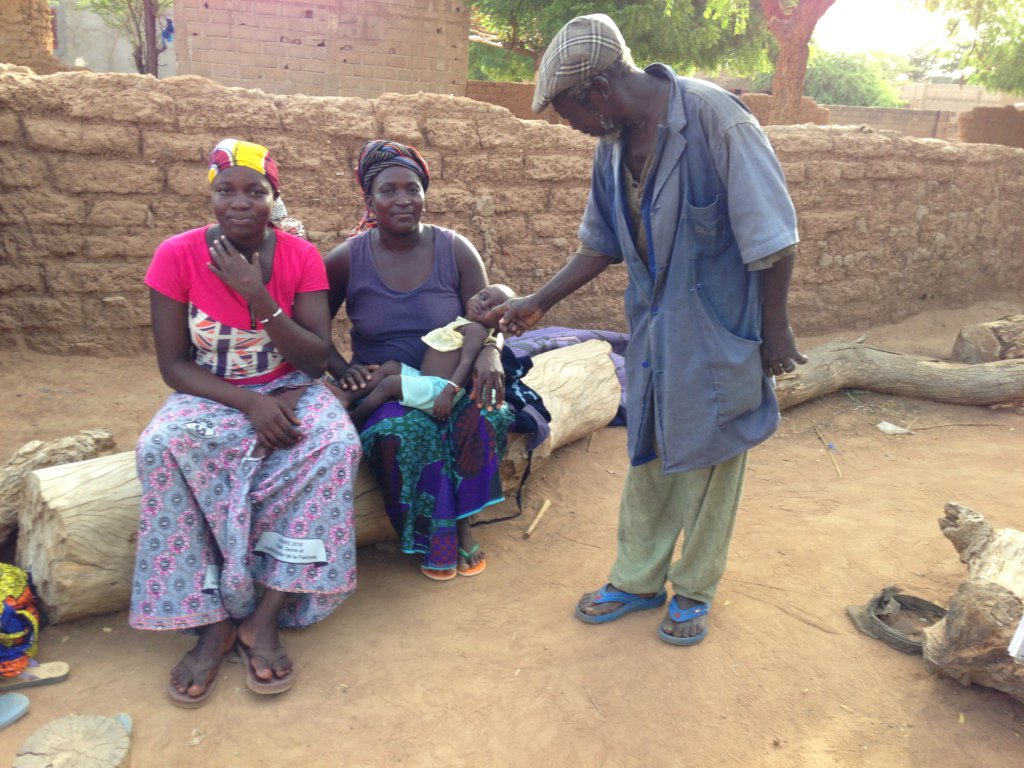 Student Mothers Program – Tandana's student mothers program provides young mothers from rural villages in Mali the opportunity to continue their middle school education. Mothers enrolled in this program receive food for themselves and their babies for the school year as well as supplies and first aid care for their babies. The students have to live with host families in Bandiagara because there are no middle schools available near their own villages. This program also provides training to the host families on how best to support the students. Our staff in Mali has received the end of year results for the students that Tandana supports. Of the two students in the seventh grade, one moved up to the eighth grade. Of the four students in the eighth grade, three went on to the ninth grade. Two of the four students in the ninth grade passed the exams and received their middle school diplomas. While these results may not seem impressive at first, it is important to keep several facts in mind when considering them. On average, only 60 percent of the students in Mali move on to the next grade, and other students have to repeat grades. These statistics are for students who do not have to deal with being a young mother on top of keeping up with their school work. Without Tandana's help, these 10 students would have dropped out of school entirely. Now they have a chance to continue their education.
Student Mothers Program – Tandana's student mothers program provides young mothers from rural villages in Mali the opportunity to continue their middle school education. Mothers enrolled in this program receive food for themselves and their babies for the school year as well as supplies and first aid care for their babies. The students have to live with host families in Bandiagara because there are no middle schools available near their own villages. This program also provides training to the host families on how best to support the students. Our staff in Mali has received the end of year results for the students that Tandana supports. Of the two students in the seventh grade, one moved up to the eighth grade. Of the four students in the eighth grade, three went on to the ninth grade. Two of the four students in the ninth grade passed the exams and received their middle school diplomas. While these results may not seem impressive at first, it is important to keep several facts in mind when considering them. On average, only 60 percent of the students in Mali move on to the next grade, and other students have to repeat grades. These statistics are for students who do not have to deal with being a young mother on top of keeping up with their school work. Without Tandana's help, these 10 students would have dropped out of school entirely. Now they have a chance to continue their education.
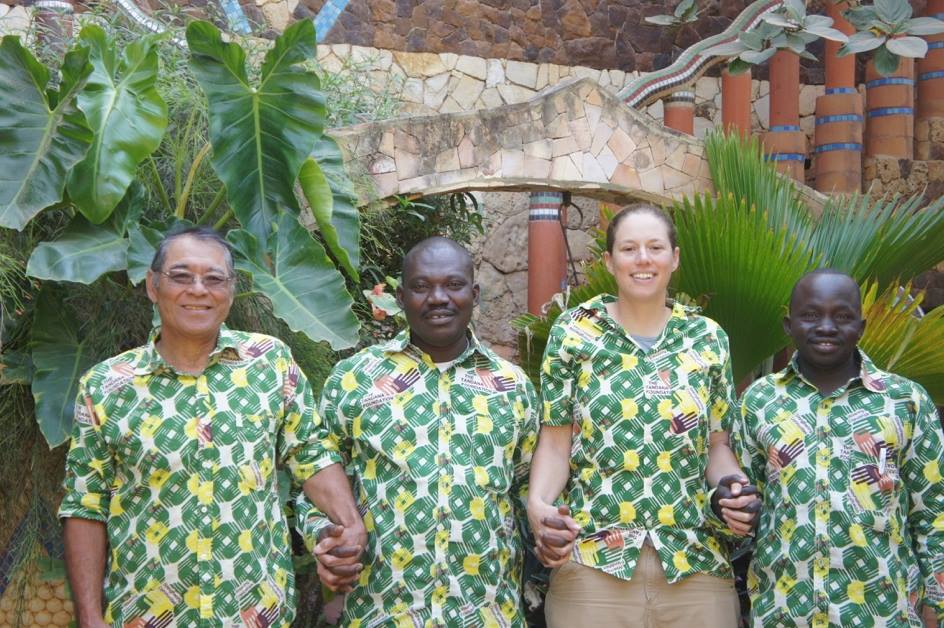
In December, Tandana's Founding Director, Anna Taft, and her husband, John, flew to Dakar, Senegal to meet with Mali Program Manager Moussa Tembiné and Mali Local Supervisor Housseyni Pamateck. Since there is still an active travel warning for U.S. Citizens in Mali from the U.S. Department of State, they chose to meet in a 3rd party location that could ensure safety. During this week-long meeting, they reviewed the projects they have completed this year as well as planned for all the 2018 projects. It was great for them to meet in person, and everyone is more energized about the projects that will start in the upcoming year.
Early 2016
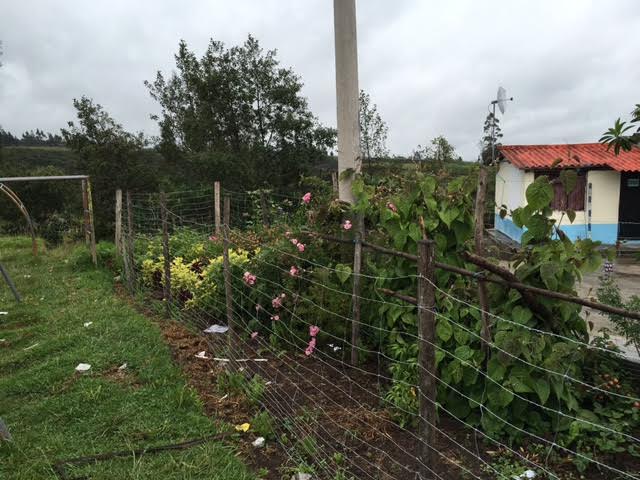
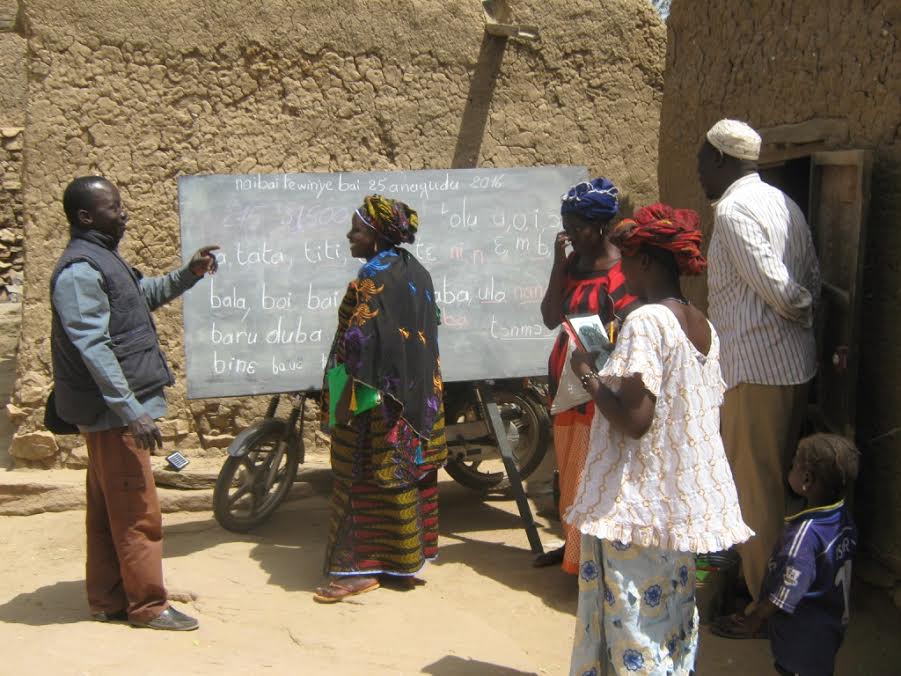
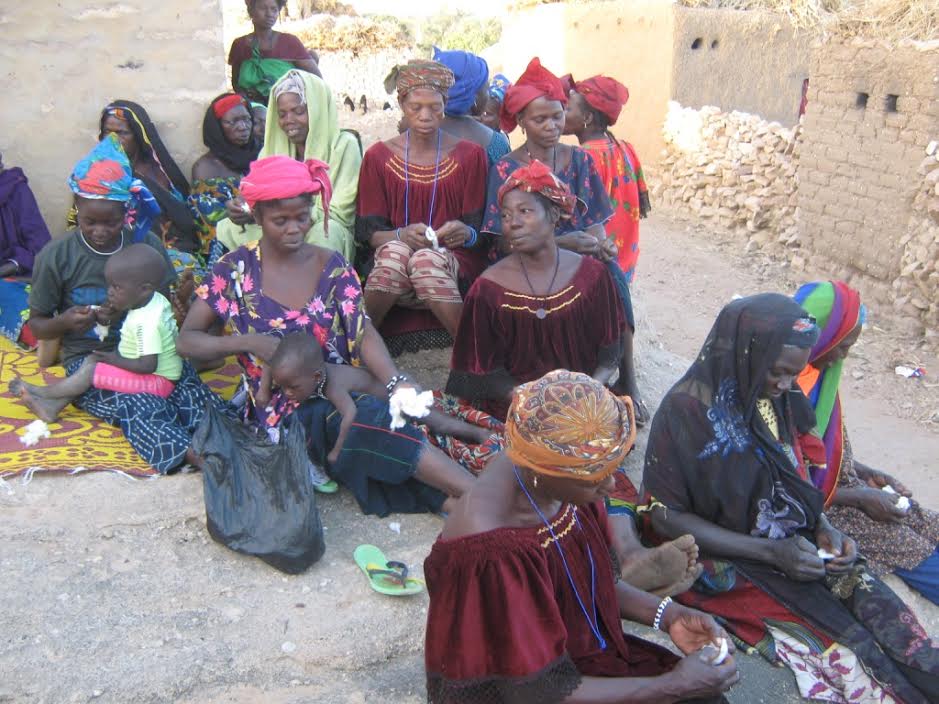
Grain & Cotton Banks in Sal-Dimi - At a general assembly meeting in Sal-Dimi (Mali), the villagers heard a report by the committee that manages the bank and evaluated their work. The villagers congratulated the committee for their good management, reelected the committee members for next year, and asked them to try and buy 2 tons of millet by the end of February. At that same meeting, the villagers also evaluated the work of the committee that manages the cotton bank, which is run the same as the grain bank, and made plans for next year.
Spring & Summer 2016
Mali
April 2016
“Dining for Women” Grant - Tandana is pleased to announce that it was awarded a grant by Dining for Women, a nonprofit organization that funds grassroots programs working in developing countries to fight gender inequality. The grant will help support Tandana's Literacy Program for women in Mali.
May 2016
Ologuine Well Project - The well has reached 21 meters in depth! They have not hit water yet, but the soil is moist and they expect to hit water soon.
June 2016
Literacy Program - To date, 1,117 women have completed the first phase of the Literacy Program. In this phase, the women have learned reading, writing and arithmetic.
July 2016
Kansongho Community Garden - The garden is thriving and villagers have even harvested fruit from the moringa trees!
Indigo Bank - The new indigo bank, which Tandana supported, is officially open. Having the bank allows women in several villages in Ondogou Township to purchase all the supplies used in the indigo dyeing trade at an affordable and stable price. The women purchase the supplies they need on credit and once they have sold their product, they repay the bank. Training in safe indigo dyeing techniques was also provided for the women. Seven women were chosen to sit on the bank's management committee. The committee members attended a four-day training session to learn how to manage the bank and keep records. The committee members learned the skills needed to keep the records by participating in Tandana's Literacy Program.
Ecuador
July 2016
Quichinche - Master Gardener Volunteers purchased a tent for the Pastavi neighborhood in Quichinche so that community members would have a place to hold their community meetings and celebrations.
Lakeside Service Program - Eleven students from Washington state assisted the school for students with special needs in La Joya where they painted furniture for a living classroom that will teach students home economics and lifestyle. The students also repainted the community center in Tangali. Throughout their trip the students participated in various cultural exchange activities such as homestays, salsa dancing, a visit to the Kichwa museum, and participation in a cooking class.
REACH Service Program - Two different groups totaling thirty-two participants from Santa Barbara county in California joined Tandana for three weeks each. These groups are part of a four year scholarship and mentorship program who visited Ecuador as a culminating experience to end their program. One group stayed in the neighborhood of Pastavi, while the second stayed in the community of Agualongo. Both worked at the Quichinche school. There they installed a cement floor and put up the structure for the school’s new gazebo project, which will be used as a reading space and for lectures. They also spent a week working at Tandana’s summer school, where the REACH students worked in small groups to teach elective classes including dance, geography, food science, arts and crafts, and painting.
August 2016
Tech Service Corps Service Trip - The group of eighteen spent one week living and working at the Ulpiano Navarro School in the community of Quichinche. Work included installation of twenty desktop computers, one document camera, and the Rachel+ software system. They also installed 29 laptops and the Rachel+ system in Tangali as well as donated laptops to the Community Center, Milk Association, and the Water Coop. The participants had the opportunity to teach English classes that applied to the recently installed software system. Throughout their trip, the participants engaged in cultural activities such as the interactive Kichwa museum, salsa lessons, and a visit to the Afro-Ecuadorian community of El Juncal.
Late 2016
September 2016
10th Anniversary - In celebration of the 10th anniversary of the Tandana Foundation, board members, staff, and friends of the foundation met in Ecuador for a week-long program in the end of September. The week was filled with presentations to help strengthen the work we do in areas such as scholarships, patient follow-up, expense reporting, storytelling, teambuilding, supporting our interns & fellows, community projects, and others. There was also time to do meaningful work in a few communities planting trees in Muenala, painting a community center in Cutambi, and cleaning out a drainage ditch along a road in Agualongo.
“Tandana is an incredible foundation that has priorities in place. It's an honor to work with such awesome people in both the communities and the Tandana staff.” – Shannon Cantor
October 2016
Health Care Volunteer Venture - From October 9-16th, the Tandana Foundation held its twentieth Health Care Volunteer Venture. Fifteen volunteers arrived from various locations in the US to Ecuador, where they teamed up to provide free basic healthcare to five different rural communities in the Quichinche Parrish. The group included 4 certified medical providers, several professionals in the medical field, and volunteers without medical background. Volunteers, Tandana staff, two local dentists, and professionals from local public health clinics all worked together to intake patients, direct them to the providers, vision center, or dental care, and finally to prescribe and give any needed medications. Over the course of the week, over 500 patients from 5 different communities were seen. For patients who necessitate continuing care, the Patient Follow Up Program will walk with the patient through the public health system to access the care they need.
"This was my fourth trip. After the first day, I said to myself: "this is going to be one of the best weeks of my life." – Chuck Birkle
Gardening Volunteer Venture - A small and dedicated group opened their hearts to Ecuador, planting 100 ornamental plants, 150 native trees and 25 medicinal plants during the last week of October. At the weather station in Inguincho, meteorologist Galo Perugachi shared observations about the impacts of climate change on Ecuador’s snowpack, species distribution, and growing seasons. Local friends joined the group on a field trip to the rumored to be 5,000-year-old Polylepis forest and to see the unique frailejon plants. Then, the group partnered with seventh graders from Quichinche school to beautify the school farm and share songs. They also planted Andean alders and other native trees along a streamside trail in Tangali, helping the community move toward its vision of a sustainable tourism venture.
“Great experience. Lovely, organized, gracious, patient, upbeat staff. Beautiful native Ecuadorians. Natural beauty can't be beat.” – Kelly McGee
November 2016
ARCC Programs - Two different group from ARCC's Latin America Gap Year program joined Tandana for a week each as a part of their travels and studies. The group is part of a three-month gap semester program which focuses on service learning and experiential education. The ARCC groups each stayed in the community center in Panecillo for a week while working at the Quichinche school. They contributed to creating the walls and ceiling for the school’s new gazebo project, which will be used as a reading space and for lectures. They also spent time learning about the traditions and practices of the region, and wrapping up their observations after their month in Ecuador.
“The work you do is work the community asks you to do, rather than work you think needs to be done. 10/10 for listening and following the needs of the people you help!!!” - Andrea Stanley
Student Mothers Project - The student mothers project supports girls from rural villages who are living in the town of Bandiagara, Mali, so they can attend middle and high school. They have to find families to host them, and, if they get pregnant, the families usually send them home and they have to drop out. This project provides training for the families to explain that they still host the students even if they are young mothers, and supplies food and basic medical supplies for the babies, so they are not an extra cost to the families. It helps girls stay in school despite the challenges of motherhood.
School Garden in De - Kaleb Poudiougou, director of the middle school in De, Mali, wanted his students to learn about gardening and also realize that they could earn money for school supplies they need. Tandana helped make this dream a reality. The students and teachers now grow vegetables, such as tomatoes, squash, lettuce, peppers, eggplants, etc., and then the students sell the produce to earn money to buy school supplies. Tandana also provided tools, seeds, and training for the teachers, students, and parents association representatives.
Ecuador 2015
Bear Lake Health Care Volunteer Program –Three medical practitioners and twelve volunteers – all from the Bear Lake region of Idaho – joined Tandana and several local medical practitioners for a week of medical work in rural communities around Otavalo, Ecuador. In five days of clinics, the group provided care for 84 dental patients, 138 vision patients, 216 medical patients, and a total of 253 individuals. They also learned to cook a traditional Kichwa meal at  Cocina Samyanuy visited the nearby town of Cotacachi, met with a local weaver and witnessed the traditional weaving process, explored Condor Park and watched a flight demonstration, and boated around the islands of the volcanic Cuicocha Lake.
Cocina Samyanuy visited the nearby town of Cotacachi, met with a local weaver and witnessed the traditional weaving process, explored Condor Park and watched a flight demonstration, and boated around the islands of the volcanic Cuicocha Lake.
Ohio Master Gardeners Volunteer Venture – Fourteen dedicated master gardeners from Ohio joined Tandana for a week. They spent time in several communities around Otavalo, Ecuador; at the vivero (tree nursery) in Achupallas, they weeded countless beds, covered over 100 feet of piping for the sewage system of the new building, and prepared bags of soil for future use. In Muenala, they planted around 500 trees and participated in an incredible minga feast with the community. In Guachingero, they planted and weeded a community garden, helped build a fence around a new garden area, and created activities for the grade school students using vegetables, leaves, and other natural (gardening) products. It was a lovely week of service, education, and joy.
Northeastern University Group Service Project – Eleven students and one faculty member from Northeastern University in Boston spent a week building a bathroom at the community center in the community of La Banda. They worked alongside community members mixing cement, digging a trench for pipes, and laying cement bricks. They also had a lot of fun building relationships with the community members by not only participating in indigenous games but also by teaching them some of their own games, and enjoying community lunches with them. The community of La Banda enjoyed sharing this experience with a great group of students.
George Washington University Group Service Project – A group of eighteen students and two faculty advisors from George Washington University in D. C. chose to spend their spring break week in and around Otavalo, Ecuador. Every morning, they worked in the community of Panecillo, learning from a local maestro the art (and science) of mixing concrete, plastering, and paving. In the process, they also built a stove that the community will use to cook large meals for mingas and celebrations, plastered the community kitchen, and paved a patio. While in Panecillo, they taught English classes to students in the local primary school. They also spent time with community members in Panecillo; they spent one afternoon with a Tandana intern's host family learning about traditional embroidery and bracelet making; another afternoon baking bread with a different intern's host family; and learning to cook a traditional Kichwa meal at a  Panecillo-based cooking school. Additionally, they hiked around the volcanic Cuicocha Lake, explored the Condor Park and watched a flight demonstration of eagles and kestrel, and adventured along the shores of Mojanda Lakes. It was a week of laughter, service, and reflection.
Panecillo-based cooking school. Additionally, they hiked around the volcanic Cuicocha Lake, explored the Condor Park and watched a flight demonstration of eagles and kestrel, and adventured along the shores of Mojanda Lakes. It was a week of laughter, service, and reflection.
Health Care Volunteer Venture in Ecuador March 2015 – Over the course of two weeks, nine medical practitioners, one dentist, and thirteen volunteers from the U.S. and Canada joined Tandana and several Ecuadorian medical professionals to provide medical care in rural communities around Otavalo, Ecuador. In ten days of clinics, the group provided care for 218 vision patients, 406 medical patients, 706 pediatric patients, and 419 dental patients. They also learned to cook a traditional Kichwa meal at a  local cooking school, visited a reed weaving cooperative, watched a master weaver practice his traditional craft, hiked to two lovely waterfalls, watched an instrument-maker create a pan-flute, played a game of soccer, hiked around Mojanda Lakes, participated in the
local cooking school, visited a reed weaving cooperative, watched a master weaver practice his traditional craft, hiked to two lovely waterfalls, watched an instrument-maker create a pan-flute, played a game of soccer, hiked around Mojanda Lakes, participated in the  Quichinche parade, explored the quaint village of Cotacachi, and boated around the sparkling San Pablo Lake.
Quichinche parade, explored the quaint village of Cotacachi, and boated around the sparkling San Pablo Lake.
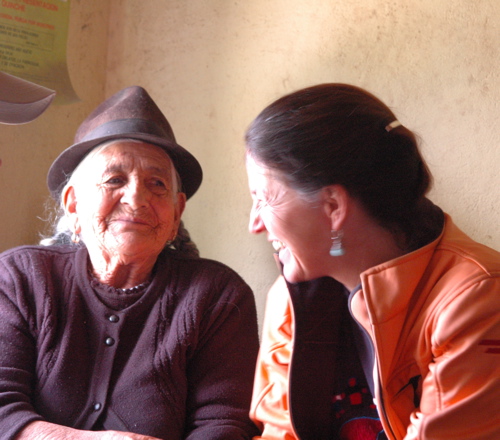
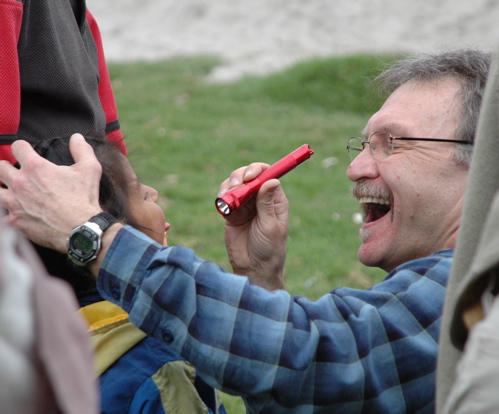
University of Cincinnati Education Program – In May 2015, 18 students and 4 chaperones from the University of Cincinnati joined Tandana to teach in four schools in different communities. The communities of Guachinguero, Cutambi, and Panecillo welcomed the students into their classrooms to teach English lessons, while the La Joya school offered the students a chance to work with 13 special needs children. The group enjoyed a wide variety of cultural activities including dancing in an Afro-Ecuadorian community, visiting a Kichwa culture museum, and learning about bilingual education after an exhilarating hike to Taxopamba waterfall. The trip was a wonderful way to end their semester after learning about Ecuador's culture and education system all semester long.
In June 2015, a group of high school students and teachers from Ohio joined The Tandana Foundation in Otavalo for environmental service week. They helped local construction workers build raised germination beds inside the greenhouse at the UCINQUI native tree nursery and worked with Matias to care for the trees. They also visited a weather station to learn about climate change, hiked to the Peguche waterfall, and enjoyed a cooking class with Tandana's Patient Follow Up Coordinator Virginia Sanchez. It was an exceptionally rewarding experience for all. Debra, one of the teachers, remarked, "I have traveled with students on 8 different trips, in the US and abroad, and this was the best trip I have ever done. From the relationships we formed and the experiences we had, every aspect of this trip was wonderful. . . I know our students are better people for having been a part of Tandana!"
Summer School – Three volunteers from the States and France took on 55 students for this year's summer school in July and August. Hosted by Ati Pillahuasu School in Panecillo, the students not only learned English but also a variety of other subjects. Each week had a different theme including movies, art, science, geography, and sports, and every Friday, the students did an activity together or went on a field trip. They made murals, played trivia games, and took trips to La Mitad del Mundo and The Living Kichwa Museum. The classes prepared the students to succeed in the new school year and offered new experiences.
In June and July, another group of high school students and leaders from Lakeside School in Washington became new members of host families in Agualongo, Ecuador. During their month together, the families and students worked in the fields, baked bread, collected firewood, worked in mingas to improve the new community center, played games and did art projects, and enjoyed a boat ride on Cuicocha Lake. The Lakeside group also spent a week improving the facility of the La Joya school for children with special needs, brightening it up and making it more magical for the students. They hiked Fuya Fuya volcano and visited El Juncal, an Afro-Ecuadorian community. When it was time to part, everyone was sad that the end of their time together had come and grateful for the new friendships formed.
In July, the community of Cutambi, Ecuador welcomed 15 students and 2 leaders from Adventures Cross-Country for a week. The students worked alongside community members constructing the first phase of the new casa communal. The students worked diligently and interacted with community members during their stay, making bracelets and playing exciting games of soccer. They enjoyed bathing in Peguche waterfall and learning about the vibrant Kichwa culture at the living museum. They were sent off with a wonderful despedida lunch of chicken soup and cuy and everyone was very excited and satisfied at the progress that was made.
In October, Tandana’s Health Care Volunteer Venture visited five communities, namely Mojandita, Panecillo, Cutambi, Minas Chupa, and Guachingero. Four volunteer medical providers and nine non-medical support volunteers from the United States were joined by several local medical and dental providers, a few of Tandana's university scholarship students, interpreters, and other local team members. We provided medical and dental attention to 447 patients. This was our first medical program to incorporate EMR (electronic medical records). That first day in clinic was the test of our new technology and everyone wondered how it would work. After ironing out a few hiccups in the morning, as a team we got all our wires connected and ran a very successful day with our updated electronic records. There are many exciting advantages to the new electronic procedure, particularly in terms of the accessibility of patient histories for tracking patients’ medical concerns. Also, the new technology will allow Tandana even more accurate record keeping for patient totals, complaints, referrals, and other important documentation. And as usual, it wasn’t all work. Our group did several afternoon excursions to explore the Ecuadorian countryside and re-connect with many of Tandana Foundation’s old friends. We held our final luncheon at Tambo Inti in Quichinche and invited all of our team members; our amazing local dentists Doctors Pablo and Anita , our interpreters, our bus driver, and several of the Tandana Foundation Scholarship students who joined us in clinic were outstanding in their dedication and assistance.
Also in October, Tandana Foundation hosted thirteen volunteers in various gardening projects in the Otavalo region north of Quito, Ecuador. We spent our first two work days in the school garden at Cutambi, planting bougainvillea, hibiscus, and begonias as well as building and painting planters out of old tires. The school children were thrilled to participate in these projects with their new North American friends. The clear skies gave us extraordinary views of Volcano Cayambe, the third highest volcano in Ecuador. Spectacular! The following day, we ventured north of Ibarra, the capitol of the Imbabura province, to visit the Afro-Ecuadorian community of El Juncal. There, we were treated to a tour at an organic fruit farm with our friend, Don Fabian, a delicious lunch at the cultural center, and a dance presentation by several girls from the community. Our next two work days were spent at the native plant nursery in Achupallas, supporting Don Matias in the important work he and UCINQUI are doing to revitalize native plants in this region. It is amazing to consider that in just four days we donated 288 hours worth of gardening work to local communities!
In November of 2015, a group of gap semester students from Adventures Cross Country came to the community of Cutambi to help with the second step of building the casa communal. 14 participants joined us for 8 days in the community where they stayed at the local school and worked in the mornings with the community members. They also enjoyed spending time with the community children and participating in cultural activities such as bread making, bracelet making, and a community hike. On the last day of the community stay, community members in Cutambi and the ARCC participants together finished the roof of the building, achieving their goal.
Mali 2015
Stove making – From January 12 to January 19, 2015, The Olouguelemo Environmental Association – in partnership with The Tandana Foundation – held a training session on making more environmentally-friendly iron stoves. These stoves are much more efficient than cooking on open fires, requiring much less firewood. Twenty-two participants, representing the ten villages that make up Olouguelemo, attended the training session. The participants learned how to make two types of stoves, then returned to their villages to continue production.
Cotton Bank in Sal-Dimi – The village and contractor have constructed a storehouse for the cotton bank, and the assembly of women chose a committee to manage the bank. Tandana provided training to the committee. The first stock of cotton has arrived, and the committee has divided it among the women in the village who want to work with it. Once they have sold the cloth made from the cotton, they will pay for the cotton they used, providing the fund for restocking the bank next year. Having the cotton bank will allow the women of Sal-Dimi to have access to cotton year-round at an affordable price.
Cotton Bank in Yarou Plateau – As of April 2015, the cotton bank is operating, using a previously-built storehouse. The assembly of women has chosen a committee to manage the bank. Tandana provided training and the first stock of cotton to the committee. The women of Yarou Plateau are dancing with joy in the confidence that they will always be able to afford cotton to transform into cloth.
Literacy Program – Our 2014-2015 session ended with a closing ceremony in each of the different villages where literacy classes were held. Students said that thanks to the classes they could count from 1 to 10,000, perform basic calculations (addition, subtraction, multiplication, and division), and read words. They also said they now could identify the numbers on a telephone and sizes on shoes. In two villages, the students performed songs and skits expressing the importance of what they had learned and its impact on their daily lives.
Second Stove-Making Session-- Tandana, in partnership with the Ologuelemo Association, held a second stove making training session for the representatives from the four new villages who recently joined Ologuelemo. Just like the first training, this training was a huge success. The two representatives from Kansongho, who were at the first training session, also participated in this session as a refresher course.
Savings for Change-- Tandana held a training session for the trainer and supervisor who will be involved in the new Savings for Change Program in Ondogou Commune. Aldiouma Tembiné, a local teacher, will be the trainer, forming groups of women and teaching them how to run the savings and credit program. Housseyni Pamateck, Tandana's Local Supevisor, supervises and supports Aldiouma. As of July 2015, there were 5 savings groups operating, with a total of 125 women. Each group had saved at least 35,000 CFA ($70) so far and loaned out the majority of that to members.
Ecuador 2014
In January 2014 the community of Gualapuro, Ecuador welcomed Miami Valley School from Dayton, Ohio into their homes for a two week immersion program. The group stayed with host families, sharing food, learning Kichwa, and lending a hand with some construction on the community’s school. Miami Valley School completed the first upstairs classroom by installing floor tiles, finishing the ceiling, and laying blocks on the cement staircase. The community of Gualapuro believes education to be extremely important and they have set a goal to provide each individual grade level its own classroom. They are grateful to the Miami Valley School students as they helped the community get one step closer to achieving its goal. Additional highlights from the program include: taking a trip to Lake Cuicocha with the students of Miami Valley and their host families, dressing up in traditional Otavaleno clothes for a soccer match, and teaching the community how to make pizzas and smores! After spending two memorable weeks in Gualapuro, the Miami Valley students returned home full of life changing memories that they will carry with them forever. The classroom is now complete and ready for use. The students have a beautiful mural painted on the staircase to remember Miami Valley School’s contribution to the community.
In February 2014, a group of 16 enthusiastic Ohio Master Gardeners came to Ecuador interested in learning about local agricultural methods and techniques. They worked several days at the tree nursery in Achupallas with the Foundation’s good friend, Matias. Many hands made light work of filling bags up with dirt to be used for little seedlings, and for weeding the acclimatization beds. The participants also participated in two mingas, one planting trees in Muenala, and the other planting potatoes in Padre Chupa. As a part of this experience, the Gardeners enjoyed almuerzos comunitarios (community lunches) – a custom typical of indigenous communities where people bring dishes to share that are dumped onto a blanket and mixed together to be enjoyed by all. The Gardeners also did an amazing job facilitating educational art projects for students at Padre Chupa and Achupallas. In the afternoons, the Gardeners participated in various activities such as meeting a traditional weaver and healer, learning how to cook traditional Ecuadorian food, and touring a rose plantation. Thanks to the Master Gardeners for all their hard work!
On Valentine’s Day 2014, Agualongo de Quichinche welcomed 18 Traveling School students and their 5 teachers into the community for a week! The Traveling School stayed with host families, learning how to peel potatoes with knives, eating around the tulpa (hearth), practicing their Spanish (and some Kichwa), and teaching their families how to make s’mores. TTS also had the amazing opportunity to participate in a minga with the community, during which they helped lay tiles in a new community center, dug trenches in preparation for the installation of soccer stadium lights, and gutted chickens to becooked for lunch. The community prepared a generous lunch for them, and all the girls had the opportunity to try cuy (guinea pig, a traditional Ecuadorian dish made for special occasions)! School looked a little different this week: learning about birds through an outing with their host families at the Condor Park; learning math from a local shopkeeper; taking a traditional cooking class; and learning about meteorology at a weather station in the middle of the clouds. Both Tandana and Agualongo are very grateful that TTS was able to spend some time with them during their three-and-a-half month South American travel adventure!
Also in February, The Tandana Foundation welcomed 16 students and 4 chaperones from Parrott Academy to Panecillo for a week of a great variety of service projects and learning in the area. The first project they participated in was a painting minga in Agualongo, a community that is quite intent on improving their infrastructure and casa comunal. The PA students greatly helped with several projects at the UCINQUI tree nursery, by deconstructing the old greenhouse and helping put together the frame and dig holes for the new structure. They also taught English and craft lessons to the students in Panecillo and Perugachi, much to the enjoyment of those kids. The group also learned how to cook a traditional meal, visited a master weaver, visited Lake Cuicocha, played a great soccer game against the community of Agualongo and hiked to 14,000 feet on Fuya Fuya. Both the Tandana Foundation and the communities that the PA students visited are grateful for their enthusiasm and hard work!
In March 2014, two groups from Northeastern University joined Tandana in Ecuador. One group stayed in the remote mountain community of Minas Chupa and worked with community members to build a fence to keep livestock out of the school yard. Together they installed a gate, put in posts, pulled barbed wire, and built friendships. While in Minas Chupa, the group also baked bread with a local family, taught computer lessons to local students, and danced to live Inti Raymi music with a chicken. Meanwhile, the other group, composed of twelve Northeastern Honors students and faculty, joined the community of Gualapuro to help build a school and join the fun of Carnaval. Alongside community members, the NE students mixed cement and laid bricks like pros, building the brick walls for two new classrooms in the community. In their rest time, the NE students led English lessons for the community’s students, made traditional meals, explored culture sights and blasted each other with foam and water during the community’s Carnaval celebrations.
Also in March, a group of Alternative Spring Break students from George Washington University came to participate in a service trip in Ecuador. They worked in the beautiful community of Guachinguero moving sand, rocks, and tying wire to help with the beginning stages of building a second story of a school building. The University students also prepared and taught thoughtful and creative English lessons for the school kids. When they weren’t working, they enjoyed hiking around Guachinguero, baking bread and making bracelets with the women of the community, taking a traditional cooking class, playing with kids, and soaking in the healing waters of some local thermal springs. Thanks to GW for bringing their willingness and ánimo to everything they did!
Next, Tandana welcomed a group of students from the University of Cincinnati to Ecuador. The students worked in a different community each day –Perugachi, Quichinche, Panecillo, Guachinguero, and La Joya – teaching English and playing games with the students. At La Joya, a school for children with special needs, the UC students helped paint a mural and even fed the kids breakfast and lunch. In the afternoons, the students learned more about Ecuadorian culture through a traditional cooking class, a musical instrument demonstration, a talk about bilingual education by Tandana’s good friend Segundo, and an outing with Tandana University scholarship students to the Condor Park and Lechero tree. What a full week!
To wrap up March of 2014, Tandana had two weeks of health care during which we visited ten communities and attended to 661 children and adults. We traveled to several far away communities including Minas Chupa and Muenala, offering care to patients who have difficulty accessing medical services. Staff from the Gualsaqui subcentro traveled with us on many days and even volunteered to work with us on Saturday. Patients were treated for hypertension, h. pylori, parasites, and many other medical conditions, in addition to receiving extractions and fillings from our dental team. When not hard at work, the volunteers enjoyed a boat ride on Lago San Pablo, swimming in the volcanic springs at Tangali, learning about traditional healing from shaman Santos Quilumbango, and visiting master weaver Miguel Andrango.
In April 2014, The Tandana Foundation and the community of Guachinguero welcomed 20 participants from Raymond High School in Alberta, Canada. The community is working on building a second floor on one of their school buildings, which will serve as a computer lab and teacher prep room. The group worked on the second phase of this project and stayed in the community center. Thanks to the many additional hands, the entire concrete floor on the second story was completed and the walls were removed from the first floor. The Raymond students also enjoyed the chance to teach in the classroom, as they had already spent lots of time getting to know the local kids. They also learned how to make bracelets and bread, hiked to the mineral springs in Tangali, and learned to cook a traditional meal. Their enthusiasm and teamwork while moving thousands of pounds of cement were impressive, and the community is excited to have shared the experience with Raymond School and to be one step closer to completing this important project.
During the summer, Lakeside School of Seattle, Washington worked with The Tandana Foundation as part of their Global Service Learning Program. Through this program and partnership, ten students and their chaperones completed three different service projects over the course of 30 days. Specifically, they helped construct part of a local school, worked in a native tree nursery, and painted a house complete with a beautiful mural. They also organized a day camp for the children of their host community, teaching English, art, and field games. This cross-cultural learning experience was made even more special by the bond formed with their host families of Gualapuro, who welcomed them with such open hearts. Alongside their new families, students enjoyed making smores at a community bonfire, practicing their Kichwa, and dressing up in traditional clothing for the annual Inty Raymi festival! The month was full of unforgettable moments for the Lakeside students, introducing them to a new culture and new friendships.
In October, Tandana spent a week with 13 incredible volunteer gardeners from across the United States. In the mountains around Otavalo, Ecuador, they worked with Matias to plant granadilla seeds, cut alder shoots, reinforce the greenhouse at the Vivero, and plant 500 acacia trees with the community of Muenala. They also created activities for the grade school at Guachingero, including an interactive lesson about compost and another on starting seeds in a hollowed out orange peel. It was a wonderful week of service, adventure, and laughter.
Next, five medical practitioners, one dentist, and eight volunteers joined Tandana for a week of medical work in rural communities around Otavalo, Ecuador. In five days of clinics, the group provided care for 102 vision patients, 213 medical patients, 274 pediatric patients, and 337 dental patients. They also learned to cook a tradition Kichwa meal at a local cooking school, visited an instrument maker and watched a pipe be assembled in less than five minutes, met with a traditional shaman, and boated around the islands of the volcanic Cuicocha Lake. The week was lovely – full of service, care, and exploration.
In early November, Tandana was joined by a Gap year group of students from Adventures Cross Country. They spent one week in the community of Guachinguero working on the fourth phase of construction of a new building for the local school. The group started off priming and plastering the building, and later painted it three different vibrant colors. They also had the opportunity to teach English at the school. The group participated in a number of local excursions and activities including: bread and bracelet making, cooking, attending a local wedding, dressing in traditional attire, visiting Cuicocha Lake and of course spending time shopping in the famous Otavalo market. The community sent them off with an amazing despedida filled with speeches, songs, dances and a grand feast of guinea pig, chicken soup, corn, cheese, favas and juice.
In December, three students and two leaders from Breakwater Expeditions participated in a volunteer program in Panecillo, Ecuador. They started off their trip by joining in a community minga, helping build a kitchen and bathroom next to the school. They then stayed in the community center and taught songs in English at the school each day they were there. On the final day, the kids put on a despedida and sang the songs they had learned. The participants also sang for the kids, and then everyone had a wonderful lunch together. The participants enjoyed the waterfall at Peguche and the always-delicious food at Cocina Samyanuy cooking school. They also enjoyed time with community members, working in Dionisia’s garden and making fajas with Rosa.
Mali 2014
Community Garden in Kansongho – Tandana supported villagers in Kansongho with a fence, water tower, solar pump, and irrigation system for a community garden. In the fall of 2014, villagers harvested their first crops from their garden. They learned how to grow new vegetables, which they had never gone before. They also learned how to prevent termite attacks, germinate seeds, and make garden beds. Along with all the training they received on gardening, they also receive training on the garden's new irrigation system. They learned how to care for, maintain, and fix the irrigation system. The villagers enjoyed the training and are now enjoying putting their new knowledge into practice.
Literacy Program – This important Tandana program keeps growing. In December 2014, a 30 day training for new literacy instructors was held. At the end of the training. The seven most qualified candidates were chosen to join Tandana's three experienced instructors. Out of the seven new instructors, three are women, which is very exciting. Most impressive is Ada Kanambaye, who was one of our literacy students a couple years ago and is now working to teach her fellow women how to read and write. Each of the ten instructors are now teaching five days a week in different villages. The different villages are Orsongho, Dianou, Oyè, Goundoli-Dogon, Ologuiné, Sol-Dogon, Sandian, Tené, Gagnaga, and Kani. All the classes are going well, and in March the updated version of the teacher's guide was finalized and distributed to the instructors.
Cotton Bank in Sal-Dimi – The construction of the storehouse for the cotton bank is going well. The committee who will manage the cotton bank have been selected and trained. The first stock of cotton has arrived and has been divided among the women in the village who want to work with it. Once they have sold the cloth made from the cotton, they will pay for the cotton they used, providing the fund for restocking the bank next year. Having the cotton bank will allow the village's women to have access to cotton year-round at an affordable price. The women are excited to have control over the cotton, which is a vital resource for them. This project is truly improving the lives of women in Sal-Dimi.
Savings for Change -- Savings for Change group members in Yarou Plateau meet weekly to save and receive loans. Each week, every member contributes a set sum to the fund, and they use the fund to make loans to members for expanding their businesses, which include micro-commerce, gardening, and cotton work. The loan repayment rate is 100%.
Ologuelemo -- Tandana provided support for the environmental protection association Ologuelemo, involving 8 villages, and training in the fabrication of efficient cookstoves.
Carpentry -- Tandana provided additional carpentry training for men in Kansongho.
Ecuador 2013
In February 2013, nineteen Master Gardeners from Ohio came for the first time to work with Tandana in Ecuador. They worked alongside Matias Perugachi in the UCINQUI tree nursery in Achupallas. Matias, our good friend and sole employee of the nursery, was blown away by their enthusiasm and how much they accomplished. In addition to improving the tree nursery, which benefits twenty-three communities, the group was also able to participate in many other cultural exchange activities, including a traditional cooking class and seeing an international chainsaw sculpture symposium in action. A highlight of the trip included planting 200 trees with 46 students at the Quinchinche school and teaching some fun lessons on the importance of plants.
At the beginning of March, a group of 12 students from Northeastern University joined Tandana to work and learn together in the community of Gualapuro. Every morning the students worked on building two playground structures for the preschool in Gualapuro and caring for the preschoolers. One structure was designed kids ages 4 and up, and one for toddlers. By the end of the week, they completed the play structures and were able to see the children enjoying their new toys. In the afternoon, the students spent more time in the community harvesting local crops, weaving bracelets and making bread by hand. The week culminated in a celebration featuring dance and song performances by both local children and the Northeastern students.
Next, nineteen staff and family from Bear Lake Memorial Hospital in Idaho flew to Otavalo to work with Tandana putting on free medical clinics. Bringing a strong sense of enthusiasm and organization, the group went straight to work, running six medical clinics in five days! The team saw 190 medical patients and performed 228 pediatric check ups. They also added to our diagnostic abilities by bringing a portable ultrasound machine. In their free time they explored Peguche Waterfall, saw a weaving demonstration from master weaver Miguel Anrango and cooked a traditional dinner with indigenous chef Claudia Fuerez. They also danced and one group member rode as queen on the Tandana float in the parade opening the Quichinche festival.
Then came our thirteenth Health Care Volunteer Venture. For two weeks, volunteers including six doctors, a dentist, and others from throughout the United States and Mexico worked together to provide health care in ten rural communities in Quichinche parish. They improved our dental capabilities with more equipment and materials for preventative treatments such as fluoride and sealants, and they performed check ups on 591 children in addition to seeing 443 medical patients. After work, they enjoyed seeing Ecuador beat Paraguay in a World Cup qualifying soccer match, hiking from the condor park to the Peguche waterfall, visiting Cuicocha and Mojanda Lakes, and dancing to live Andean music.
In the last week of April, the 8th grade class from Headwaters Academy in Bozeman, Montana joined us in the rural community of Padre Chupa for a week-long camping trip. The group of ten students and two teachers packed their sleeping bags and stayed at the elementary school located at over 10,000 feet elevation in the Andes Mountains. There the group helped the community to harvest over 400 pounds of potatoes and plant an assortment of vegetables for the upcoming harvest season. The students of Headwaters also taught an array of activities from Capture the Flag to “Twinkle, Twinkle, Little Star.” Likewise, the children of Padre Chupa shared their culture in the form of dance, food, and traditional music. They wrapped up the week with a day trip to the Interactive Science Museum in Quito where all of the kids learned about the human brain and laws of physics before saying their sad goodbyes.
During the summer, twelve students and three chaperones from Lakeside school in Seattle, Washington spent a month living in the community of Agualongo and completing service projects. Each student was paired up with a host family, allowing them to immerse themselves in the local indigenous culture and practice their Spanish. For the first two weeks they spent their mornings volunteering at the native tree nursery of UCINQUI, building a water reservoir and lending a hand to the sole caretaker Matias Perugachi. During the last two weeks of their stay they helped the Tandana Foundation run its summer school for local students. They assisted in English classes and taught their own classes on music, physics, and biology. They also had the opportunity to have fun with their host families while painting a community center, taking a boat ride on Lake Cuicocha, and teaching them how to make smores over a bonfire!
In October 2013 a small group of medical professionals and volunteers came together in Quichinche to provide quality medical care at no cost to 5 different communities. The numbers say it all: 167 medical patients, 70 dental patients, 176 pediatric check-ups, all done in 5 short days. Not only did the group work hard but they also enjoyed the sights, including the majestic Cuicocha crater lake and watched the Ecuadorian national soccer team nearly qualify for the 2014 World Cup in Brasil.
Later in the month, 6 wonderful gardeners assisted Matias in the tree nursery in Achupallas where they filled 564 bags with dirt and later transplanted 408 seedlings that they collected from the roadsides. They also participated in a tree planting community work day in the community of Muenala where, alongside members of the community, they planted 600 alder and Pumamaki trees. They also helped a 7th grade class plant a school garden and then taught them lessons about composting and insects. In the afternoons they enjoyed the Saturday market in Otavalo, the Peguche waterfall and many other local sights. Great Job everyone!
Mali 2013
Agricultural Innovations -- Short-cycle cowpeas, which Tandana introduced to ten villages, were the only ones that bore edible peas in some villages this year, because the rainy season was so short. These peas provide food during the most difficult time of year, when other crops have not matured and the previous harvest is long gone.
Well in Sal-Sombogou-- Villagers and masons put the finishing touches on the restored and improved well in Sal-Sombogou, Mali. Before restoration, the well was dangerous and pollutants easily fell into the water.
Literacy-- Tandana provided literacy classes in 10 villages this year. These classes empower women with literacy, numeracy, and calculation skills. With the abilities they gain in these classes, students say they can manage independently in the marketplace, buy and sell without fear, get the products they want, and even keep better track of their menstrual cycles for spacing their pregnancies.
Ologuelemo-- Tandana provided training in assisting the natural regeneration of trees and soil conservation for members of the environmental protection association Ologuelemo, involving 8 villages. During a meeting of the association, a governement forestry agent addressed the group, the first appearance of a public official of that level in the area. The villages are working together to protect trees in their region.
Carpentry-- Tandana provided carpentry training for men in Kansongho. They now have a carpentry workshop where they can build doors, windows, furniture, chalk boards, and other wood products. This local business empowers them with a source of income close to home.
Savings for Change-- Tandana provided training to women’s savings and credit groups in Yarou Plateau. They meet weekly to save money and then make loans from their group fund to members to expand their micro-businesses.
Ecuador 2012
In Ecuador, we had a busy spring with five different volunteer groups. In February, twenty students and six chaperones from Parrott Academy in North Carolina spent a week with us, rotating through several communities outside of Otavalo. They participated in a minga (community work party) that prepared the materials to build a retaining wall to protect Panecillo's water source from erosion and pollution. They also volunteered at two local primary schools, in Panecillo and Padre Chupa, where they taught English as well as arts and crafts. The group also helped at a plant nursery owned by the Union of Indigenous Communities of Quichinche. After visiting the Peguche waterfall and a master weaver, the group capped off its trip with a tour of Quito. Some of the student are already planning ways they can return!
Also in February, fourteen students and four teachers from The Traveling School also joined us for their sixth stay in the rural community of Agualongo. In seven short days the students and teachers cultivated deep and meaningful relationships with the members of the community. During their stay, the students took classes and also participted in a traditional Ecuadorian cooking class, bread making, a hike above the valley with a local woman, a lesson on rural farm practices, and of course many hours of soccer with local children and dancing to traditional ecuadorean music. The students helped with a two day minga to replace the roof of the community center, followed by a feast complete with guinea pig, corn, soup, and potatoes. When it was time for their departure, tears were shed by students and families alike. The community insisted that next time, they must stay longer!
In March, came a group form Northeastern University, traveling as part of their Alternative Spring Break program. This group worked with community members from Panecillo to complete the construction of a retaining wall designed to prevent erosion that pollutes and blocks one of the community's two water sources. The students also collected saplings and planted a local tree species that provides extra protection against erosion. In addition to their community service, the group enjoyed cultural activities and outings, including a cooking class, a visit to a local weaving master, and a trip to Mojanda Lakes.
Meanwhile, 11 students and 2 leaders from Carpe Diem International Education came to stay for 10 days in the community of Achupallas. For seven days the students worked on constructing a greenhouse for the UCINQUI native tree nursery. Their hands and hard work were deeply appreciated by Matias, who runs the nursery, and the other members of UCINQUI. Carpe Diem students also taught English classes to the elementary students of the community and managed to fit in bread making, cooking class, arts and crafts with community children, a visit to the Peguche waterfall, a beautiful hike around Laguna Cuicocha with community members, and a wonderful fiesta with live music and traditional food! The experience was a first for both the community, which had never hosted a foreign group before, and the students, who had never stayed in a rural community such as Achupallas. Many of the students found a deeper appreciation for living more simply with a greater focus on family. The community is anxious to host another group.
Finally, thirteen volunteers traveled to the Quichinche parish of Ecuador for our eleventh Health Care Volunteer Venture. Together, the group accomplished an amazing amount, setting up basic health clinics in five villages in five days. The doctors were able to see 134 patients, while 49 adults received dental treatment. 223 children received preventative dental treatment including fluoride and sealants to prevent cavities, as well as parasite medication. In between administering quality health care, the volunteers cooked a traditional Ecuadorian meal, hiked to the Peguche waterfall, watched a traditional weaver practice his art, and had a picnic at Mojanda Lakes. Tandana health care teams have seen over 3600 medical patients and 780 dental patients!
In late September of 2012, twelve students from Carpe Diem Education and their two Leaders joined six Tandana representatives in the community of Achupallas, Ecuador. The participants spent ten days living with local families and making friends with their hosts. In the mornings, they volunteered in the UCINQUI Tree Nursery, helping to construct a house and take care of the plants. In the afternoons the participants cooked a traditional Ecuadorian meal, toured the Condor Park, hiked to Cuicocha Lake, learned Kichwa phrases and made bread with a local family. The participants also joined in with community members to repaint the elementary school and created beautiful murals for the children to enjoy.
In October, we hosted our twelfth Health Care Volunteer Venture in Quichinche, Ecuador. Twenty volunteers, including three doctors, three P.A.s, three nurses, and other helping hands worked together, along with a local dentist and interpreters, to provide primary health care in ten different villages. Through medical consultations, dental treatments, and pediatric check-ups, they served 902 patients in two weeks. In addition to bringing their care and skills to rural villages, they also enjoyed Ecuador's food, music, crafts, and sporting events. A highlight was watching Ecuador beat Chile in a World Cup qualifying soccer match.
Mali 2012
In January 2012, eleven volunteers spent 16 days in Mali, helping with a variety of community projects. They helped build a grain bank for the village of Sal-Dimi and a latrine for the Kansongho cotton bank, as well as watering trees in the Kansongho orchard and participating in a soap-making training and a literacy class. They also found time to do lots of Dogon dancing, learn to speak some Tommo So, try drumming the traditional rhythms, visit a school and a mosque, participate in a wedding ceremony, and show villagers how to use new tools. The villagers in Sal-Dimi are thrilled to have a stock of grain in this very difficult year and a safe place to store it and escorted the volunteers out of the village with song and drumming to alleviate the sadness of the farewell. Our fourth Mali Volunteer Vacation was a meaningful experience for all: "we formed friendships and became fully immersed in the culture of Mali's Dogon region while providing aid for truly sustainable projects; And most importantly we worked right alongside WITH the community in the finishing of such projects, truly a collective effort allowing us to weave lasting friendships. The appreciation and welcome we received from these communities was like none other I've ever experienced!" said volunteer Kelly McCosh.
Meanwhile, we have begun a literacy class for the women of Kansongho and Kani, Mali. Using the first books printed in Tommo So, 150 women in 6 classes enthusiastically practice writing letters and numbers with the help of a local teacher. Thanks to a soap-making training, Kansongho women are also diversifying their sources of income. In Sal-Dimi, we have begun restoration and stabilization of the traditional well, which was in danger of collapse and needed constant repairs. We've also been assisting both villages with agricultural innovations such as the natural regeneration of trees in the fields and short-cycle cowpeas.
Later in 2012, our projects continue to move forward despite the unsettling national news. The villagers of Kansongho and Sal-Dimi are extremely grateful for our gift of millet, which allowed them to cultivate their fields and bring in a bountiful harvest this year. Our second season of literacy classes is beginning, and we are expanding the Savings for Change micro-credit program to Yarou Plateau, in addition to more villages in Wadouba Commune. The environmental association Ologuelemo, which we supported in becoming a legal organization, is busy working for the encouragement of natural regeneration of trees in an eight-village area.
We have also completed restoration of the traditional well in Sal-Dimi, and villagers are confidently using it. In Yarou Plateau, we've helped the school and village with some seeds and training for their garden. And villagers in Kansongho, Sal-Dimi, and 6 neighboring villages have held an assembly, with our support, and determined to create an association for protection of the environment, most specifically the encouragement of natural regeneration of trees and the prevention of wood cutting in a large area. In partnership with Vital Edge Aid, we are helping to expand the savings and micro-credit program that has begun in 8 villages of Wadouba commune. The literacy classes continue. The villagers we work with are as determined as ever to keep working for the improvement of their communities. We hope that the political situation will allow them to do so.
Ecuador 2011
During the first week of March 2011, a group of 12 students from Boston’s Northeastern University spent their spring break working on various community service projects in the rural communities surrounding Otavalo, Ecuador. Students were greeted by the community of La Banda with a welcome ceremony featuring traditional music and a communal lunch. During the week, they dug and hauled dirt and mixed cement to build a new bus stop. The covered bus stop will provide much-needed protection from heavy rain and intense sun for residents of La Banda, who ride the bus for their daily commute to Otavalo. Other community projects included organizing and inventorying books for a new library in the local elementary school and working in a native tree nursery. In their free time, the students enjoyed a cooking class and delicious dinner with a local family. They prepared and ate guinea pig, chicken, marinated tomato and onion salad, llapingachos (spiced and fried mashed potato pancakes), mote (steamed fresh corn), and quimbolitos (banana leaf wrapped pastries). They also challenged the local kids to a soccer game, visited both traditional and modern weavers, learned about traditional musical instruments, hiked around Cuicocha Lake, went to the Peguche Waterfall, and celebrated Carnaval with a water balloon fight. Our local friends were grateful to the students for their willingness to work hard and leave a lasting legacy in their community.
Carpe Diem International Education joined Tandana for 2 weeks in March, doing homestays in the community of Agualongo and helping with projects from trash cleanup with local kids to weeding and transplanting native tree seedlings to teaching English and computer classes, preparing books for a new school library, and even Tandana's health care work in rural communities. During their time with Tandana, the students and their leaders not only experienced the Ecuadorian minga but also cooked and ate traditional foods, played soccer, joined in water fights for Carnaval, and danced in the parade opening the Quichinche festivals alongside the students they had been teaching during the week.
Tandana's ninth Health Care Volunteer Venture, in March 2011, was a great success. We worked in a different community every day, including two nearby and three more remote communities. Volunteers worked to take patients’ histories and vitals, interpreted for the doctors, dispensed medication in the pharmacy, and were runners between each station. The doctors saw a total of 133 patients in 5 community centers, and the local dentist saw 74 patients. Afternoon activities for the volunteers included going to the Peguche waterfall, having a cooking class (followed by a delicious dinner), visiting the Condor Park, shopping at the famous Otavalo market, and visiting Cotacachi, a town known for its leather goods. They also participated in Tandana's first ever float and dance troupe in the parade opening the Quichinche festivals!
In early May, ten students and two teachers from Headwaters Academy in Bozeman, Montana spent a week in the community of Padre Chupa. They were welcomed by the students and the entire community with a procession to the school, bringing firewood to make a huge bonfire, where everyone ate hot dogs and s’mores. They worked in the school garden alongside the 24 Padre Chupa students, and the community came together to install new soccer goals and volleyball posts in the soccer field. Needless to say, much soccer was played throughout the week! The Headwaters students also planned and taught lessons and activities to the Padre Chupa kids (including line dancing and Red Rover), and took a hike down into the valley to a waterfall. They took the Padre Chupa students to the thermal springs at Chachimbiro, an excursion that was enjoyed by all. They also made time during their brief stay in Otavalo to stop by the market, visit some local friends, and see a traditional weaving demonstration. The kids were sad to say goodbye to their new friends in Padre Chupa, but proud of all they had accomplished!
Five intrepid volunteers spent five weeks volunteering in Ecuador through our Summer Volunteer Program. Four worked with the Tandana intern to teach a month-long summer vacation English course, and one worked with local nurses and doctors in a rural health center. Volunteers stayed with host families around the communities of Panecillo and Quichinche and played countless games with all the neighborhood kids. They experienced traditional music and dancing during the fiestas of Inti Raymi in June, went to the thermal springs at Nangulvi, helped plant seedlings at a native tree nursery, rafted in the Chota Valley, hiked around Mojanda and Cuicocha Lakes and even 15,000 foot Imbabura Volcano. They also had two cooking classes with Tandana friend Claudia, and ate their way through every flavor of pie at the Pie Shop in Otavalo. They took two longer excursions, one to Atacames, a beach town on the coast, and a final trip to a jungle river lodge in the Amazonian eastern part of Ecuador. Relationships they formed their host families by sharing daily life, meals, work, and play were a highlight of the experience.
In October 2011, nine health care volunteers joined four long-term volunteers, our intern, our Group Coordinator, and Tandana's director for our tenth Health Care Volunteer Vacation in Ecuador. With great camaraderie, commitment, and an everpresent sense of fun, they visited five communities to offer basic medical consultations. The providers treated 168 patients, while the dentist saw 85. Meanwhile, our team of nurses did an additional 251 pediatric check-ups and treated all of those children for parasites. The team also found time to take in the scenery at Mojanda Lakes, cook quimbolitos and other goodies with Claudia, visit a shaman and a master weaver, and celebrate two birthdays. Over the last five years, Tandana health care teams have seen over 3500 medical patients and 650 dental patients!
Also, in October, eight students and two leaders from Carpe Diem International Education joined us for a week in the community of Agualongo, Ecuador. They constructed acclimatization beds for tree seedlings at the UCINQUI native tree nursery and helped the community of Agualongo install a sink and countertop in the community center. Meanwhile, they also learned to bake bread with Agualongo women, went on a hike above the village with a host mother, played soccer with local kids, and learned about the family trees, food preparation practices, and culture of their host families. After the minga on Saturday, they sang a song in Kichwa at the farewell ceremony, ate soup, fava beans, potatoes, corn, colada morada, and tortillas de tiesto prepared by the community, and danced to the music of a local band. They left a mark on the community and carry many happy memories as they continue their journey through the Andes.
Mali 2011
In January, we hosted our third Mali Volunteer Vacation. After making mudcloths in Djenne, the group traveled to the village of Yarou Plateau, where they were welcomed with performances by horsemen, hunters, and women. Volunteers and students planted mango trees in the new school garden and visited the storehouse for the the school lunch program, both projects made possible by Tandana. In Kori-Maounde, the volunteers also helped students plant fruit trees and visited the caves where village ancestors hid from enemies before and during the French occupation. The highlight of the trip was the week spent in the village of Kansongho, reconnecting with old friends and making new ones. Villagers and volunteers danced in celebration of the group's arrival, then got to work building a storehouse for the new cotton bank, which will allow the women of the village to manage a large stock of cotton so that it is always available on credit and at a good price for them to transform and generate income. The children of the village did a mask dance and the young adults did a skit about cotton and a bendie dance performance, showcasing aspects of their culture that are in danger of being lost. Finally, the volunteers visited Sal-Dimi, where Tandana is restoring a well, then spent two days relaxing on the Niger River and reflecting on the amazing projects, celebration, and sharing they had participated in.
Ecuador 2010
In February and March, Tandana coordinated 2 service projects, hosted a benefit trip, and put on 2 health care volunteer ventures in Ecuador. The first project was for The Traveling School, who did their fifth village stay and service project in Agualongo. The girls and their teachers attended a traditional wedding ceremony on their first day in the community, then taught English classes for local children and helped to replace the roof on the community center. They went on a hike in the surrounding mountains and baked bread with local women, visited Tandana's scholarship coordinator for a math lesson, and went to a community-owned native tree nursery for science class. A highlight for many was helping to prepare guinea pig for the celebration feast on their last day in the village, and their memories of the week in Agualongo remain strong as they continue their journey through the Andes.
Next, a group of enthusiastic, energetic women from Northeastern University arrived to work with the community of La Banda. A ceremony featuring a communal lunch, traditional dances, demonstrations of traditional dress, and "ollas encantadas" a local version of piñatas, welcomed them to the community. During the week, they hauled sand and gravel up a steep hill, dug a trench, carried bricks, and helped community members build a water filtration tank to provide clean drinking water for the village. They also helped at the native tree nursery, visited both traditional and modern weavers, baked bread with community members, and visited Cuicocha Lake. The group's excitement about their experience has led them to recommend traveling with Tandana to their friends back in Boston.
We also had our second benefit trip, hosted by Nik Millhouse and Hacienda Cusin. The group enjoyed a wonderful tour, featuring world-class Pakacuna gardens, Haciendas Cusin and Pinsaqui, colonial Quito, a meeting with Tandana scholarship students, and visits to several communities where Tandana works, a master weaver, and leather and woodcarving craft towns. They are excited about seeing Tandana's work and the beautiful Andean countryside, and their support of our efforts is tremendously appreciated.
Finally, in March we had two wonderful groups of volunteers who helped provide health care to rural communities in our seventh round of Health Care Volunteer Ventures. Both groups became efficient teams, allowing local access to important health services and also enjoyed visiting local friends, cooking class and baking bread in local homes, seeing waterfalls and lakes, and singing our new Kichwa health care song. We now have our own dental equipment and were able to hire a local dentist to fill cavities and extract teeth on site with us while we work. She did a fantastic job, treating 15-20 patients during each morning of work. The groups saw 428 patients in 7 communities, treating everything from parasites and conjunctivitis to arthritis, hypertension, and pharyngitis.
In June, The Tandana Foundation hosted 14 volunteers from North Carolina and Georgia in service projects in two communities just outside of Otavalo, Ecuador. The all-women group enthusiastically dove into all aspects of their Ecuadorian experience. From mornings in Larcacunga trimming baby trees in the local native plant nursery and shoveling rocks and cement at the community center in La Banda to afternoons visiting indigenous artisans and hiking to sacred waterfalls, they embraced every opportunity to get to know this new place and all of their new friends. One of the group’s favorite afternoon activities was spent at our friend Claudia’s house for a cooking lesson. The group learned how to make llapingachos (spiced and fried mashed potato pancakes), quimbolitos (banana leaf wrapped pastries), mote (steamed fresh corn), marinated tomato and onion salad, and a delicious spiced beef. That night, they feasted wonderful foods, but Claudia’s incredible warmth and hospitality was the greatest treat of all. All of the volunteers worked hard and our local friends were pleased with their efforts. On our final night in Quito, everyone brainstormed ideas for further service projects and all of the friends and family members they wish to bring along on the next Tandana adventure.
Three volunteers spent six weeks in Ecuador through our Summer Volunteer Program. They started with a week in Otavalo where they began to learn about what life in the rural Ecuadorian highlands would be like through walks in the nearby communities, visits with local friends, and an introduction to shopping in the market. They further explored the area by attending an Inti Raymi (Incan Sun) festival in the leather town of Cotocachi and a hike around the rim of the volcanic lake Cuicocha. Next, the volunteers settled into life with their host families and began their volunteer placements at subcentros (rural health centers) or teaching summer classes for Tandana’s scholarship students. Although everyone was busy with their volunteer work and spending time with their host families, the group got together every Friday to take the summer class students on field trips to waterfalls, lakes, and swimming pools. They also met up for weekend adventures to go hiking and rafting. The program concluded with a trip to the coast to enjoy a few days of whale watching and wildlife viewing on Isla de la Plata. About 50 students benefited from the summer enrichment classes in their most difficult subjects, and two rural health centers received support in their work to take care of the patients in their areas.
In October, we completed our 8th round of health care volunteer ventures. Since we began four years ago, we've been able to greatly improve our health care work with better systems, the appropriate supplies and information, and more connections in the local health care world. This month, our volunteer groups were able to see 262 patients for medical care and 205 patients for dental care, in addition to treating 159 schoolchildren for parasites. 526 people benefited from our visits to 10 rural communities in the Otavalo canton, and some of them received follow-up care with the help of our intern and two wonderful volunteers. In addition to an emergency room physician, two Physician Assistants, a registered nurse, and an occupational therapy assistant, we also had the help of a group of 11 students and 2 leaders from Carpe Diem International Education, a gap-year semester program. The students lived with host families in the rural community of Agualongo, and each week half of them helped with our medical work while the others took Spanish classes. They formed strong bonds with their host families, attended a traditional wedding ceremony, baked bread with Agualongo's president's family, and volunteered in a native tree nursery. The volunteers also learned about traditional healing from a shaman, visited a master weaver, and saw volcanoes Cotopaxi, Altisana, Cayambe, Cotacachi, and Imbabura while driving to remote mountain villages to provide health care.
Our scholarship program is going strong with 45 secondary students and our first university scholarship student benefiting! Margarita Fuerez, who is our first university scholarship recipient is a bright and motivated young woman who has overcome many obstacles in her life. She is studying accounting and is already working on a project to create a youth council in her area to get young people involved in serving their community.
Mali 2010
In January 2010, Tandana's Mali Volunteer Vacation group enjoyed a meaningful and rewarding experience of village life and travel. After traveling from Bamako, and making mudcloths with artisans in Djenne, they visited the Kori-Maounde school garden, where students showed how they were taking advantage of Tandana's first project in Mali. Next, they hiked down the Bandiagara cliff to Tereli, where they helped students plant fruit trees in the school garden, also funded by Tandana, and were treated to a mask dance as a show of appreciation from the community. Then they went out to the village of Kansongho, where the whole group was blown away by the reception they received. Rifle shots, singing, dancing, Dogon masks, speeches, gifts, and skits celebrated their arrival. They visited the grain bank, which Tandana helped start, and soon got to work constructing a rock wall to protect a new orchard and planting 300 fruit trees. While in the village, they tried their hands at pounding millet, participated in a church service, learned to dance Dogon-style, and had their feet or hands tattooed with henna. The joy, friendships, and lessons the people of Kansongho shared with our group were deeply inspiring, and the volunteers have returned home with many ideas of ways to continue to help the village and a new perspective on life.
Ecuador 2009
Throughout the month of July 2009, Tandana offered free English and math classes for elementary and secondary students in Quichinche, Ecuador. About 80 students showed up on a daily basis for English classes, taught by Tandana intern Lauren Armstrong and Putney Student Travel volunteers. About 30 students attended math classes, taught by local teacher Alfredo Flores. In addition to classes, the students also participated in service projects and field trips, including cleaning up trash at the sacred Lechero tree, picnicking at the Peguche waterfall, and planting flowers at the Quichinche school. Many of our 45 scholarship students participated and enjoyed the opportunity. "This class helps us a lot with the English language," said Rupay, a scholarship student from Panecillo.
In September 2009, Tandana held its sixth round of Health Care Volunteer Ventures. The two groups of volunteers were able to see 359 patients in seven communities outside of Otavalo, treating them for parasites, h. pylori, respiratory infections, and many other diseases. They also enjoyed making bread with a local family, riding bikes down the mountain from Mojanda Lakes, sharing fish and soccer with local families at Yahuarcocha, practicing their Kichwa, and boating on San Pablo Lake. An Ecuadorian medical student was among the volunteers, increasing the cross-cultural sharing for everyone and having a blast discovering new parts of his country. "All the smile and strength that you have is admirable," he said.
March 2009 saw four Tandana groups visit Ecuador. Our first benefit group enjoyed a wonderful tour, featuring world-class Pakacuna gardens, Haciendas Cusin and Pinsaqui, colonial Quito, a meeting with Tandana scholarship students, and visits to a community-run native tree nursery, a master weaver, and leather and woodcarving craft towns. They are excited about seeing Tandana's work and the beautiful Andean countryside and are planning to return next year with friends and relatives.
Next came three weeks of health care, two for Tandana's Health Care Volunteer Ventures and one for a group of faculty and students from the University of Utah Medical School. They treated 566 patients in 12 communities for everything from headaches to h. pylori or infected wounds. The volunteers enjoyed working in some gorgeous locations on steep hillsides high in the mountains and also visiting waterfalls, discussing bilingual education, listening to local music, learning about traditional healing from a yachac, and picnicking with local friends at Cuicocha volcanic lake.
Mali 2009
In January 2009, The Tandana Foundation coordinated its first two volunteer programs in Mali. The first was a 3-day service project for a group organized by  Women Worldwide and Adventures in Rock. In between travels through the country and enjoying the music of the Festival in the Desert, this group took time to give back to the Kori-Maounde primary school. Volunteers helped the villagers and children dig holes and plant 54 fruit trees in the school garden. The children will care for the trees and sell their fruit to earn money for school supplies. The volunteers also helped the villagers dig a trench, lay a pipe, and create a watering basin, so that the children can water the trees more easily. They found time to play frisbee with the kids, teach them "head, shoulders, knees, and toes," and lead them with call-and-response to a water hole to bring water for the trees. They also visited a nearby historic site where the villagers' ancestors hid from their adversaries in cave dwellings and an old iron smelter. In the evenings, they gave English lessons to middle school students at a dormitory. You can read a great description of their experience at
Women Worldwide and Adventures in Rock. In between travels through the country and enjoying the music of the Festival in the Desert, this group took time to give back to the Kori-Maounde primary school. Volunteers helped the villagers and children dig holes and plant 54 fruit trees in the school garden. The children will care for the trees and sell their fruit to earn money for school supplies. The volunteers also helped the villagers dig a trench, lay a pipe, and create a watering basin, so that the children can water the trees more easily. They found time to play frisbee with the kids, teach them "head, shoulders, knees, and toes," and lead them with call-and-response to a water hole to bring water for the trees. They also visited a nearby historic site where the villagers' ancestors hid from their adversaries in cave dwellings and an old iron smelter. In the evenings, they gave English lessons to middle school students at a dormitory. You can read a great description of their experience at  Craig and Steph's Vacation Blog.
Craig and Steph's Vacation Blog.
Next, Tandana's Mali Volunteer Venture group arrived. We had a wonderful, diverse group of travelers who really appreciated every opportunity and enjoyed sharing their insights with each other. After traveling from Bamako, catching a bit of music in Segou, and making mudcloths and visiting artisans in Djenne, they hiked down the Bandiagara cliff to Tereli, where they visited the school and its garden that was funded by Tandana. Next, they went out to the village of Kansongho, where the whole group was blown away by the reception they received. Rifle shots, singing, dancing, Dogon masks, speeches, gifts, and skits marked the inauguration of the well Tandana helped to restore last year and also the celebration of our group's arrival. The village had already begun construction of the building for the new grain bank, and the volunteers pitched in, carrying rocks, drawing water and bringing it from the well, and plastering the interior with mud. They also helped to build anti-erosion dikes in the fields, hoe up the old millet stalks to prepare for next year's planting, and collect firewood for cooking. While in the village, they tried their hands at spinning and weaving, participated in a church service, learned to dance Dogon-style, helped with cooking, and, for some, had their feet tattooed with henna. The joy, friendships, and lessons the people of Kansongho shared with our group were deeply inspiring. The village is thrilled to be starting the grain bank. They have elected the committee that will manage it, and the first shipment of millet has arrived. Before the group left, the chief of Kansongho made a gift of a plot of land to The Tandana Foundation. You can read more on  the arts foundry blog.
the arts foundry blog.
2008
In February 2008, The Tandana Foundation coordinated a weeklong village stay and service project in highland Ecuador for  The Traveling School. Students and teachers lived in the homes of families and shared in daily activities in the village of Agualongo. They taught English to the local children and helped build a new bathroom for the village kindergarten. Meanwhile, they learned to bake bread in a wood-fired oven, hiked to the peak above the village, visited Cuicocha Lake with their hosts, and danced with the village in their going-away ceremony.
The Traveling School. Students and teachers lived in the homes of families and shared in daily activities in the village of Agualongo. They taught English to the local children and helped build a new bathroom for the village kindergarten. Meanwhile, they learned to bake bread in a wood-fired oven, hiked to the peak above the village, visited Cuicocha Lake with their hosts, and danced with the village in their going-away ceremony.
Then, in March, Tandana hosted its third and largest round of health care volunteer ventures. Three groups of volunteers, working different weeks, provided health care to almost 600 patients in 14 communities. The volunteers formed powerful teams working together to serve the patients and also found time to enjoy making local friends, Holy Week activities, eating fanesca soup, visiting with a local shaman and intercultural education leaders, and dancing with a local band.
In September, 2008, The Tandana Foundation hosted its fourth round of Health Care Volunteer Ventures. Volunteers from all over the United States joined with Ecuadorian professionals to offer affordable, accessible, and respectful health care to five communities in the Quichinche parish of Ecuador. This time, we added dentistry to our services, and that was a big hit. We were able to fill cavities for 55 patients. Our doctors and P.A.s, meanwhile, saw 427 patients, helping cure them of H. pylori, parasites, infections, and many other problems. It was a wonderful experience for the volunteers, also, who got to experience baptism celebrations, hikes with our scholarship students to beautiful locations, and meetings with fascinating community members.
Meanwhile, in Mali, work began on the new school garden at Tereli. This is the second school garden that Tandana has funded, and it will allow the students to grow fruits and vegetables, learn about horticulture, and also become more self-sufficient as they sell the produce to earn money for school supplies. A fruit tree nursery was also begun for the Kori-Maounde school garden, which Tandana helped to start last year. The well restoration project in Kansongho was completed, and the villagers are thrilled to have a secure, year-round water source.
2007
In February 2007, The Tandana Foundation coordinated a weeklong village stay and service project in highland Ecuador for  The Traveling School. Students and teachers lived in the homes of families and shared in daily activities in the village of Agualongo. They taught English to the local children and helped the community pave a muddy area next to the community center. Meanwhile, they also learned to peel potatoes, hiked to the peak above the village to take in the amazing Andean landscape, celebrated Carnaval by joining in a huge water fight, and gained new "parents, brothers, and sisters," whom they can't wait to visit again.
The Traveling School. Students and teachers lived in the homes of families and shared in daily activities in the village of Agualongo. They taught English to the local children and helped the community pave a muddy area next to the community center. Meanwhile, they also learned to peel potatoes, hiked to the peak above the village to take in the amazing Andean landscape, celebrated Carnaval by joining in a huge water fight, and gained new "parents, brothers, and sisters," whom they can't wait to visit again.
Then, later in March, a group of adults traveled to Ecuador to provide healthcare for underserved villagers. They saw hundreds of patients in four communities and also found time to experience the culture and area in amazing depth for a visit of just one week. They met with traditional healers, indigenous leaders, students, and a master weaver and hiked to sacred sites such as the Lechero tree and the Peguche waterfall. Throughout their stay, they reveled in the opportunity to interact as friends rather than tourists and to take in the region's natural beauty.
We have also begun work in Mali, where we have funded the creation of a school garden and the reconstruction of a well. We hope to offer volunteer vacations and service projects there in the future. Correspondence programs and sister city or school relationships are also available, and we are working on a Malian folktale book project that will benefit the village of those who shared the stories with us.
2004-2006
In 2004, The Tandana Foundation was begun with the goal of promoting cross-cultural learning opportunities and service projects. Operating under the auspices of the  Deer Hill Foundation, in July 2005 we were able to include two Ecuadorian participants in the Deer Hill Expeditions Expedicion Ecuador program, allowing them to travel around their country with North American students and then host these new friends in their village as they all worked together on community projects. It was an experience that still resonates in their hearts; Claudia, one of the local scholarship recipients, recently sent an email saying, "I wrote like a book about the trip and this year I reread it, saying last year I was there and there.... this is something unforgettable that I have experienced and I will never experience it again. Thank you so much again for everything." We were also able to provide partial scholarships to several North American students, enabling them to participate in this exciting program and experience Ecuadorian culture as few visitors are able.
Deer Hill Foundation, in July 2005 we were able to include two Ecuadorian participants in the Deer Hill Expeditions Expedicion Ecuador program, allowing them to travel around their country with North American students and then host these new friends in their village as they all worked together on community projects. It was an experience that still resonates in their hearts; Claudia, one of the local scholarship recipients, recently sent an email saying, "I wrote like a book about the trip and this year I reread it, saying last year I was there and there.... this is something unforgettable that I have experienced and I will never experience it again. Thank you so much again for everything." We were also able to provide partial scholarships to several North American students, enabling them to participate in this exciting program and experience Ecuadorian culture as few visitors are able.
In the summer of 2006, we offered two Ecuadorian students the once-in-a-lifetime opportunity to travel to the United States and participate in Deer Hill's Canyon Country program. Cristina and Elsa, who had never dreamed they would travel on an airplane, flew from Quito to Houston, Denver, and then Cortez, Colorado. Smiling in the sun in their traditional Otavelena dress, they awaited my pickup and the adventure of their lives. Joining their North American and French groupmates, they set off on a week-long raft trip on the Green River. They loved running the rapids in inflatable kayaks, cooking strange new American foods when it was their turn in the kitchen, and making friends with the young people in their group. After hiking in the La Sal Mountains and taking in an alpine beauty different from that of their Andean home, they journeyed to the village of Lower Moencopi on the Hopi Nation, where they encountered the highlight of their trip. Both they and the Hopi hosts were thrilled with the opportunity to share customs, traditions, and techniques with people of another indigenous American culture. Corn is central to the lifestyles of both, and they traded beliefs, processing techniques, and favorite dishes related to that crop. During our stay there, Lower Moencopi was also visited by Native Youth Cultural Exchange, a group of Native Hawaiian, Californian, and Hopi youth. Cristina and Elsa were able to join the young people from each of those cultures in presenting songs, dances, and traditions from their homeland at a cultural exchange potluck.
Their experience in the United States not only gave them a chance to learn about other cultures and make new friends, it also helped them value their own culture more, enlarged their perspective on the world, and gave them experience that will help in their future careers in the tourism industry in Ecuador. After the trip, Cristina wrote, "I am so happy and grateful to all of those who made possible my dream. I had many wonderful experiences, I learned to converse in English, and I also got to know the Hopi culture, in which they have conserved many of their ancestral traditions. I learned to value my culture... I know that this experience will serve me in my professional and personal life, because my dream is to become a professional tourism guide. This experience was a great practical and observation trip and I learned much more than I have in the classroom." The other members of their group also enjoyed and benefited from the opportunity their presence offered to form cross-cultural friendships and learn about a different perspective.
In addition to making possible these amazing experiences for Cristina and Elsa, we were also able to coordinate a week-long village stay and service project for The Traveling School and a month-long volunteer vacation for a family from Montana. The Traveling School students and teachers stayed with host families in the village of Agualongo, taught English to the local children, helped the village paint their community center, played soccer with the mothers, and were amazed by the appreciation feast they were offered. The week there was a highlight of their three-month journey through the Andes because of the unique opportunity it offered for real cultural experience, friendship, and the chance to make a difference. Then, in June, a family of four from Montana journeyed to Ecuador and stayed with a family in the community of Rey Loma. They joined in festival activities with their hosts, supported the community soccer team, helped a school replace a badly-damaged roof, prepared Elsa and Cristina for their trip to the United States, and experienced so much that a typical visitor would never see.
